
Wendy Tuck
Wendy Tuck is a yachtswoman and previous chief instructor and principal at the Clipper Race training base in Sydney, Australia. She was the first female skipper to win a round-the-world yacht race.
Australian Wendy Tuck becomes the first woman skipper to win the Clipper Round the World Yacht Race.

Wendy Tuck is a yachtswoman and previous chief instructor and principal at the Clipper Race training base in Sydney, Australia. She was the first female skipper to win a round-the-world yacht race.

A sea captain, ship's captain, captain, master, or shipmaster, is a high-grade licensed mariner who holds ultimate command and responsibility of a merchant vessel. The captain is responsible for the safe and efficient operation of the ship, including its seaworthiness, safety and security, cargo operations, navigation, crew management, and legal compliance, and for the persons and cargo on board.

The Clipper Round the World Yacht Race is a biennial race that takes paying amateur crews on one or more legs of a circumnavigation of the globe in 11 specially-designed identical yachts owned by Clipper Ventures. Professional skippers and additional qualified persons (AQPs) lead each teams on the 10-month journey. All participants must complete a four week training course before starting the race. The race was conceived in 1995 by Sir Robin Knox-Johnston and is run by Clipper Ventures plc. The race has been held every two years since 1996, although in 2004 there was not a race and biennial racing resumed in 2005.
Prime Minister of Pakistan, Nawaz Sharif was disqualified from office for life by Supreme Court of Pakistan after finding him guilty of corruption charges.

The prime minister of Pakistan is the head of government of the Islamic Republic of Pakistan. Executive authority is vested in the prime minister and his chosen cabinet, despite the president of Pakistan serving as the nominal head of executive. The prime minister is often the leader of the party or the coalition with a majority in the lower house of the Parliament of Pakistan, the National Assembly where he serves as Leader of the House. Prime minister holds office by virtue of their ability to command the confidence of the National Assembly. The prime minister is designated as the "Chief Executive of the Islamic Republic".

Mian Muhammad Nawaz Sharif is a Pakistani businessman and politician who has served as the Prime Minister of Pakistan for three non-consecutive terms. He is the longest-serving prime minister of Pakistan, having served a total of more than 9 years across three tenures. Each term has ended in his ousting.

The Supreme Court of Pakistan is the apex court in the judicial hierarchy of the Islamic Republic of Pakistan.

The Panama Papers case, or the Panamagate case, was a landmark decision by the Supreme Court of Pakistan that disqualified incumbent Prime Minister of Pakistan Nawaz Sharif from holding public office for life.
While flying from Seoul, South Korea to Shanghai, China, Asiana Airlines Flight 991 develops an in-flight fire in the cargo hold. The Boeing 747-400F freighter attempts to divert to Jeju International Airport, but crashes into the sea South-West of Jeju island, killing both crew members on board.

Seoul, officially known as the Seoul Special City, is the capital and largest metropolis of South Korea. According to the 2020 census, Seoul has a population of 9.9 million people, and forms the heart of the Seoul Capital Area with the surrounding Incheon metropolis and Gyeonggi province. Considered to be a global city and rated as an Alpha – City by Globalization and World Cities Research Network (GaWC), Seoul was the world's fourth largest metropolitan economy in 2014, following Tokyo, New York City and Los Angeles.

South Korea, officially the Republic of Korea (ROK), is a country in East Asia, constituting the southern part of the Korean Peninsula and sharing a land border with North Korea. Its western border is formed by the Yellow Sea, while its eastern border is defined by the Sea of Japan. South Korea claims to be the sole legitimate government of the entire peninsula and adjacent islands. It has a population of 51.75 million, of which roughly half live in the Seoul Capital Area, the fourth most populous metropolitan area in the world. Other major cities include Incheon, Busan, and Daegu.

Shanghai is one of the four direct-administered municipalities of the People's Republic of China (PRC). The city is located on the southern estuary of the Yangtze River, with the Huangpu River flowing through it. With a population of 24.89 million as of 2021, Shanghai is the most populous urban area in China with 39,300,000 inhabitants living in the Shanghai metropolitan area, the second most populous city proper in the world and the only city in East Asia with a GDP greater than its corresponding capital. Shanghai ranks second among the administrative divisions of Mainland China in human development index. As of 2018, the Greater Shanghai metropolitan area was estimated to produce a gross metropolitan product (nominal) of nearly 9.1 trillion RMB, exceeding that of Mexico with GDP of $1.22 trillion, the 15th largest in the world. Shanghai is one of the world's major centers for finance, business and economics, research, education, science and technology, manufacturing, tourism, culture, dining, art, fashion, sports, and transportation, and the Port of Shanghai is the world's busiest container port. In 2019, the Shanghai Pudong International Airport was one of the world's 10 busiest airports by passenger traffic, and one of the two international airports serving the Shanghai metropolitan area, the other one being the Shanghai Hongqiao International Airport.

China, officially the People's Republic of China (PRC), is a country in East Asia. It is the world's most populous country, with a population exceeding 1.4 billion, slightly ahead of India. China spans the equivalent of five time zones and borders fourteen countries by land, the most of any country in the world, tied with Russia. China also has a narrow maritime boundary with the disputed Taiwan. Covering an area of approximately 9.6 million square kilometers (3,700,000 sq mi), it is the world's third largest country by total land area. The country consists of 22 provinces, five autonomous regions, four municipalities, and two Special Administrative Regions. The national capital is Beijing, and the most populous city and financial center is Shanghai.
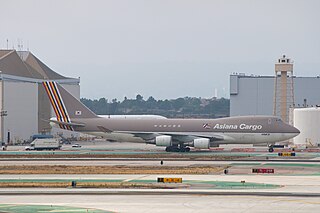
On 28 July 2011, Asiana Airlines Flight 991, a Boeing 747-400F cargo aircraft on a flight from Seoul, South Korea, to Shanghai, China, crashed into the sea off Jeju Island after suffering a main-deck fire. Both pilots, the only two people on board, were killed. The accident marked the second loss of a 747 freighter due to cargo hold fire in less than a year, following the crash of UPS Airlines Flight 6 in Dubai in September 2010.
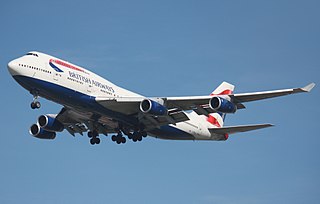
The Boeing 747-400 is a large, long-range wide-body airliner produced by Boeing Commercial Airplanes, an advanced variant of the initial Boeing 747. The "Advanced Series 300" was announced at the September 1984 Farnborough Airshow, targeting a 10% cost reduction with more efficient engines and 1,000 nautical miles (1,900 km) of additional range. Northwest Airlines (NWA) became the first customer with an order for 10 aircraft on October 22, 1985. The first 747-400 was rolled out on January 26, 1988, and made its maiden flight on April 29, 1988. Type certification was received on January 9, 1989, and it entered service with NWA on February 9, 1989.

Jeju International Airport is the second largest airport in South Korea, just behind Incheon Airport in Incheon. It is located in the city of Jeju. The airport opened in 1968.
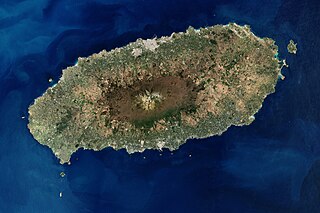
Jeju Island is South Korea's largest island, covering an area of 1,833.2 km2 (707.8 sq mi), which is 1.83 percent of the total area of the country. It is also the most populous island in South Korea; at the end of September 2020, the total resident registration population of Jeju Special Self-Governing Province is 672,948, of which 4,000 reside on outlying islands such as the Chuja Islands and Udo Island. The total area of the Jeju Special Self-Governing Province is 1,849 km.
Airblue Flight 202 crashes into the Margalla Hills north of Islamabad, Pakistan, killing all 152 people aboard. It is the deadliest aviation accident in Pakistan history and the first involving an Airbus A321.

Airblue Flight 202 was a scheduled Pakistani domestic passenger flight from Karachi to the nation's capital of Islamabad. On 28 July 2010, the Airbus A321-231 jet airliner serving the flight crashed into Margalla Hills, north of Islamabad's Benazir Bhutto International Airport, killing all 146 passengers and six crew on board. It is the deadliest air accident to occur in Pakistan to date and the first fatal crash involving an Airbus A321.

The Margalla Hills are a hill range within the Margalla Hills National Park on the northern edge of Islamabad Capital Territory, Pakistan, just south of Haripur District, Khyber Pakhtunkhwa. They are part of the Himalayan foothills. The Margalla range has an area of 12,605 hectares. It is a range with many valleys as well as high mountains.

Islamabad is the capital city of Pakistan. It is the country's ninth-most populous city, with a population of over 1.2 million people, and is federally administered by the Pakistani government as part of the Islamabad Capital Territory. Built as a planned city in the 1960s, it replaced Rawalpindi as Pakistan's national capital. The city is notable for its high standards of living, safety, cleanliness, and abundant greenery.

The Airbus A321 is a member of the Airbus A320 family of short to medium range, narrow-body, commercial passenger twin engine jet airliners; it carries 185 to 236 passengers. It has a stretched fuselage which was the first derivative of the baseline A320 and entered service in 1994, about six years after the original A320. The aircraft shares a common type rating with all other Airbus A320-family variants, allowing previous A320-family pilots to fly the aircraft without the need for further training.
The Provisional Irish Republican Army announced the formal end of its armed campaign to overthrow British rule in Northern Ireland and create a united Ireland.
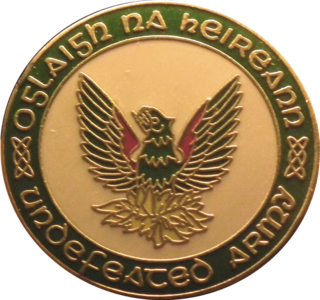
The Irish Republican Army, also known as the Provisional Irish Republican Army, and informally as the Provos, was an Irish republican paramilitary organisation that sought to end British rule in Northern Ireland, facilitate Irish reunification and bring about an independent, socialist republic encompassing all of Ireland. It was the most active republican paramilitary group during the Troubles. It saw itself as the army of the all-island Irish Republic and as the sole legitimate successor to the original IRA from the Irish War of Independence. It was designated a terrorist organisation in the United Kingdom and an unlawful organisation in the Republic of Ireland, both of whose authority it rejected.

From 1969 until 1997, the Provisional Irish Republican Army (IRA) conducted an armed paramilitary campaign primarily in Northern Ireland and England, aimed at ending British rule in Northern Ireland in order to create a united Ireland.

Northern Ireland is a part of the United Kingdom, situated in the north-east of the island of Ireland, that is variously described as a country, province or region. Northern Ireland shares a border to the south and west with the Republic of Ireland. In 2021, its population was 1,903,100, making up about 27% of Ireland's population and about 3% of the UK's population. The Northern Ireland Assembly, established by the Northern Ireland Act 1998, holds responsibility for a range of devolved policy matters, while other areas are reserved for the UK Government. Northern Ireland cooperates with the Republic of Ireland in several areas.

United Ireland, also referred to as Irish reunification, is the proposition that all of Ireland should be a single sovereign state. At present, the island is divided politically; the sovereign Republic of Ireland has jurisdiction over the majority of Ireland, while Northern Ireland, which lies entirely within the Irish province of Ulster, is part of the United Kingdom. Achieving a united Ireland is a central tenet of Irish nationalism, particularly of both mainstream and dissident Irish republican political and paramilitary organisations. Unionists support Northern Ireland remaining part of the United Kingdom, and therefore oppose Irish unification.
The Provisional Irish Republican Army calls an end to its thirty-year-long armed campaign against British rule in Northern Ireland.

The Irish Republican Army, also known as the Provisional Irish Republican Army, and informally as the Provos, was an Irish republican paramilitary organisation that sought to end British rule in Northern Ireland, facilitate Irish reunification and bring about an independent, socialist republic encompassing all of Ireland. It was the most active republican paramilitary group during the Troubles. It saw itself as the army of the all-island Irish Republic and as the sole legitimate successor to the original IRA from the Irish War of Independence. It was designated a terrorist organisation in the United Kingdom and an unlawful organisation in the Republic of Ireland, both of whose authority it rejected.

Northern Ireland is a part of the United Kingdom, situated in the north-east of the island of Ireland, that is variously described as a country, province or region. Northern Ireland shares a border to the south and west with the Republic of Ireland. In 2021, its population was 1,903,100, making up about 27% of Ireland's population and about 3% of the UK's population. The Northern Ireland Assembly, established by the Northern Ireland Act 1998, holds responsibility for a range of devolved policy matters, while other areas are reserved for the UK Government. Northern Ireland cooperates with the Republic of Ireland in several areas.
Nine coal miners trapped in the flooded Quecreek Mine in Somerset County, Pennsylvania, are rescued after 77 hours underground.

Coal mining is the process of extracting coal from the ground. Coal is valued for its energy content and since the 1880s has been widely used to generate electricity. Steel and cement industries use coal as a fuel for extraction of iron from iron ore and for cement production. In the United Kingdom and South Africa, a coal mine and its structures are a colliery, a coal mine is called a 'pit', and the above-ground structures are a 'pit head'. In Australia, "colliery" generally refers to an underground coal mine.

The Quecreek Mine rescue took place in Somerset County, Pennsylvania, when nine miners were trapped underground for over 77 hours, from July 24 to 28, 2002. All nine miners were rescued.
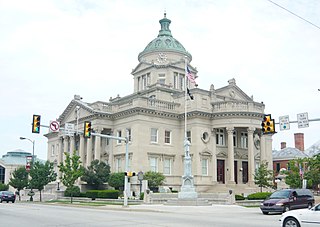
Somerset County is a county in the Commonwealth of Pennsylvania. As of the 2010 census, the population was 77,742. Its county seat is Somerset. The county was created from part of Bedford County on April 17, 1795, and named after the county of Somerset in England.
Pulkovo Aviation Enterprise Flight 9560 crashes after takeoff from Sheremetyevo International Airport in Moscow, Russia, killing 14 of the 16 people on board.

Pulkovo Aviation Enterprise Flight 9560 was a repositioning flight from Sheremetyevo International Airport in Moscow to Pulkovo Airport in St. Petersburg. On 28 July 2002, the Ilyushin Il-86 aircraft operating the flight crashed after take-off from Sheremetyevo. 14 of the 16 crew members on board were killed, making the crash the deadliest aviation accident involving the Ilyushin Il-86.

Sheremetyevo Alexander S. Pushkin International Airport is one of four international airports that serve the city of Moscow. It is the busiest airport in Russia, as well as the second-busiest airport in Europe. Originally built as a military airbase, Sheremetyevo was converted into a civilian airport in 1959. The airport was originally named after a nearby village, and a 2019 contest extended the name to include the name of the Russian poet Alexander Pushkin.

Moscow is the capital and largest city of Russia. The city stands on the Moskva River in Central Russia, with a population estimated at 13.0 million residents within the city limits, over 17 million residents in the urban area, and over 20 million residents in the metropolitan area. The city covers an area of 2,511 square kilometers (970 sq mi), while the urban area covers 5,891 square kilometers (2,275 sq mi), and the metropolitan area covers over 26,000 square kilometers (10,000 sq mi). Moscow is among the world's largest cities; being the most populous city entirely in Europe, the largest urban and metropolitan area in Europe, and the largest city by land area on the European continent.

Russia, or the Russian Federation, is a transcontinental country spanning Eastern Europe and Northern Asia. It is the largest country in the world, covering over 17,098,246 square kilometres (6,601,670 sq mi), and encompassing one-eighth of Earth's inhabitable landmass. Russia extends across eleven time zones and shares land boundaries with fourteen countries, more than any other country but China. It is the world's ninth-most populous country and Europe's most populous country, with a population of 146 million people. The country's capital and largest city is Moscow, the largest city entirely within Europe. Saint Petersburg is Russia's cultural centre and second-largest city. Other major urban areas include Novosibirsk, Yekaterinburg, Nizhny Novgorod, and Kazan.
At the World Aquatics Championships in Fukuoka, Japan, Australian Ian Thorpe (pictured) became the first swimmer to win six gold medals at a single FINA world championship.
The 2001 World Aquatics Championships or the 9th FINA World Swimming Championships were held in Fukuoka, Japan between 16 July and 29 July 2001.

Fukuoka is the sixth-largest city in Japan, the second-largest port city after Yokohama, and the capital city of Fukuoka Prefecture, Japan. The city is built along the shores of Hakata Bay, and has been a center of international commerce since ancient times. The area has long been considered the gateway to the country, as it is the nearest point among Japan's main islands to the Asian mainland. Although humans occupied the area since the Jomon period, some of the earliest settlers of the Yayoi period arrived in the Fukuoka area. The city rose to prominence during the Yamato period. Because of the cross-cultural exposure, and the relatively great distance from the social and political centers of Kyoto, Osaka, and later, Edo (Tokyo), Fukuoka gained a distinctive local culture and dialect that has persisted to the present.

Ian James Thorpe, is an Australian retired swimmer who specialised in freestyle, but also competed in backstroke and the individual medley. He has won five Olympic gold medals, the most won by any Australian along with fellow swimmer Emma McKeon. With three gold and two silver medals, Thorpe was the most successful athlete at the 2000 Summer Olympics, held in his hometown of Sydney.

The FINA World Championships or World Aquatics Championships are the World Championships for aquatics sports: swimming, diving, high diving, open water swimming, artistic swimming, and water polo. They are run by FINA, and all swimming events are contested in a long course (50-metre) pool.
Australian Ian Thorpe becomes the first swimmer to win six gold medals at a single World Championship meeting.

Ian James Thorpe, is an Australian retired swimmer who specialised in freestyle, but also competed in backstroke and the individual medley. He has won five Olympic gold medals, the most won by any Australian along with fellow swimmer Emma McKeon. With three gold and two silver medals, Thorpe was the most successful athlete at the 2000 Summer Olympics, held in his hometown of Sydney.
The remains of a prehistoric man are discovered near Kennewick, Washington. Such remains will be known as the Kennewick Man.

Prehistory, also known as pre-literary history, is the period of human history between the use of the first stone tools by hominins c. 3.3 million years ago and the beginning of recorded history with the invention of writing systems. The use of symbols, marks, and images appears very early among humans, but the earliest known writing systems appeared c. 5000 years ago. It took thousands of years for writing systems to be widely adopted, with writing spreading to almost all cultures by the 19th century. The end of prehistory therefore came at very different times in different places, and the term is less often used in discussing societies where prehistory ended relatively recently.

Kennewick is a city in Benton County in the U.S. state of Washington. It is located along the southwest bank of the Columbia River, just southeast of the confluence of the Columbia and Yakima rivers and across from the confluence of the Columbia and Snake rivers. It is the most populous of the three cities collectively referred to as the Tri-Cities. The population was 83,921 at the 2020 census.
Kennewick Man and Ancient One are the names generally given to the skeletal remains of a prehistoric Paleoamerican man found on a bank of the Columbia River in Kennewick, Washington, on July 28, 1996. It is one of the most complete ancient skeletons ever found. Radiocarbon tests on bone have shown it to date from 8,900 to 9,000 calibrated years before present, but it was not until 2013 that ancient DNA analysis techniques had improved enough to shed light on the remains.
Two followers of the Indian mystic Rajneesh were convicted of a 1985 plot to assassinate Charles Turner, the U.S. attorney for the District of Oregon.

The Rajneesh movement are people inspired by the Indian mystic Bhagwan Shree Rajneesh (1931–1990), also known as Osho, particularly initiated disciples who are referred to as "neo-sannyasins". They used to be known as Rajneeshees or "Orange People" because of the orange and later red, maroon and pink clothes they used from 1970 until 1985. Members of the movement are sometimes called Oshoites in the Indian press.

Rajneesh, also known as Acharya Rajneesh, Bhagwan Shree Rajneesh, and later as Osho, was an Indian godman, mystic, and founder of the Rajneesh movement. He was viewed as a controversial new religious movement leader during his life. He rejected institutional religions, insisting that spiritual experience could not be organized into any one system of religious dogma. As a guru, he taught a form of meditation called dynamic meditation and advocated that his followers live fully but without attachment, a rejection of traditional ascetic practices. In advocating a more progressive attitude to human sexuality he caused controversy in India during the late 1960s and became known as "the sex guru".
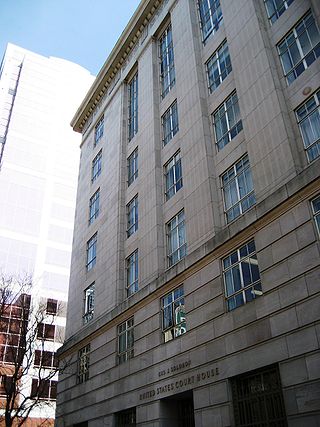
In 1985, a group of high-ranking Rajneeshees, followers of the Indian mystic Bhagwan Shree Rajneesh, conspired to assassinate Charles Turner, the then-United States Attorney for the District of Oregon. Rajneesh's personal secretary and second-in-command, Ma Anand Sheela, assembled the group after Turner was appointed to investigate illegal activity at the followers' community, Rajneeshpuram. Turner investigated charges of immigration fraud and sham marriages, and later headed the federal prosecution of the 1984 Rajneeshee bioterror attack in The Dalles, Oregon.
Charles H. Turner was an American lawyer who served as the United States Attorney for the District of Oregon. Prior to his presidential appointment as U.S. Attorney, Turner worked under his predecessor, Sidney I. Lezak, for 14 years. He was appointed as Lezak's replacement by President Ronald Reagan.

United States attorneys are officials of the U.S. Department of Justice who serve as the chief federal law enforcement officers in each of the 94 U.S. federal judicial districts. Each U.S. attorney serves as the United States' chief federal criminal prosecutor in their judicial district and represents the U.S. federal government in civil litigation in federal and state court within their geographic jurisdiction. U.S. attorneys must be nominated by the President and confirmed by the Senate, after which they serve four-year terms.

The United States District Court for the District of Oregon is the federal district court whose jurisdiction comprises the state of Oregon. It was created in 1859 when the state was admitted to the Union. Appellate jurisdiction belongs to the United States Court of Appeals for the Ninth Circuit. Matthew P. Deady served as its first judge. Marco A. Hernandez is the current chief judge.
Olympic Games: Games of the XXIII Olympiad: The summer Olympics were opened in Los Angeles.

The modern Olympic Games or Olympics are the leading international sporting events featuring summer and winter sports competitions in which thousands of athletes from around the world participate in a variety of competitions. The Olympic Games are considered the world's foremost sports competition with more than 200 teams, representing sovereign states and territories, participating. The Olympic Games are normally held every four years, and since 1994, have alternated between the Summer and Winter Olympics every two years during the four-year period.

The 1984 Summer Olympics were an international multi-sport event held from July 28 to August 12, 1984, in Los Angeles, California, United States. It marked the second time that Los Angeles had hosted the Games, the first being in 1932. California was the home state of the incumbent U.S. President Ronald Reagan, who officially opened the Games. These were the first Summer Olympic Games under the IOC presidency of Juan Antonio Samaranch.

Los Angeles, often referred to by its initials L.A., is the largest city in the state of California and the second most populous city in the United States after New York City, as well as one of the world's most populous megacities. Los Angeles is the commercial, financial, and cultural center of Southern California. With a population of roughly 3.9 million as of 2020, Los Angeles is known for its Mediterranean climate, ethnic and cultural diversity, Hollywood film industry, and sprawling metropolitan area. The city of Los Angeles lies in a basin in Southern California adjacent to the Pacific Ocean extending through the Santa Monica Mountains and into the San Fernando Valley. It covers about 469 square miles (1,210 km2), and is the seat of Los Angeles County, which is the most populous county in the United States with an estimated 9.86 million as of 2022.
An earthquake registering 7.6 Mw, one of the deadliest in history, devastated Tangshan, China, and killed at least 240,000 people.

The 1976 Tangshan earthquake was a Mw 7.6 earthquake that hit the region around Tangshan, Hebei, China, at 3:42 a.m. on 28 July 1976. The maximum intensity of the earthquake was XI (Extreme) on the Mercalli scale. In minutes, 85 percent of the buildings in Tangshan collapsed or were rendered unusable, all services failed, and most of the highway and railway bridges collapsed or were seriously damaged. The official report claimed 242,769 deaths and 164,851 serious injuries in Tangshan, but when taken into account the missing, the injured who later died and the deaths in nearby Beijing and Tianjin, scholars accepted at least 300,000 died, making it the deadliest earthquake in China and among the top disasters in China by death toll.
The moment magnitude scale is a measure of an earthquake's magnitude based on its seismic moment. It was defined in a 1979 paper by Thomas C. Hanks and Hiroo Kanamori. Similar to the local magnitude scale (ML ) defined by Charles Francis Richter in 1935, it uses a logarithmic scale; small earthquakes have approximately the same magnitudes on both scales.

Tangshan is a coastal, industrial prefecture-level city in the northeast of Hebei province. It is located in the eastern part of Hebei Province and the northeastern part of the North China Plain. It is located in the central area of the Bohai Rim and serves as the main traffic corridor to the Northeast. The city faces the Bohai Sea in the south, the Yan Mountains in the north, Qinhuangdao across the Luan River to the east, and Tianjin to the west.
The Tangshan earthquake measuring between 7.8 and 8.2 moment magnitude flattens Tangshan in the People's Republic of China, killing 242,769 and injuring 164,851.

The 1976 Tangshan earthquake was a Mw 7.6 earthquake that hit the region around Tangshan, Hebei, China, at 3:42 a.m. on 28 July 1976. The maximum intensity of the earthquake was XI (Extreme) on the Mercalli scale. In minutes, 85 percent of the buildings in Tangshan collapsed or were rendered unusable, all services failed, and most of the highway and railway bridges collapsed or were seriously damaged. The official report claimed 242,769 deaths and 164,851 serious injuries in Tangshan, but when taken into account the missing, the injured who later died and the deaths in nearby Beijing and Tianjin, scholars accepted at least 300,000 died, making it the deadliest earthquake in China and among the top disasters in China by death toll.
The moment magnitude scale is a measure of an earthquake's magnitude based on its seismic moment. It was defined in a 1979 paper by Thomas C. Hanks and Hiroo Kanamori. Similar to the local magnitude scale (ML ) defined by Charles Francis Richter in 1935, it uses a logarithmic scale; small earthquakes have approximately the same magnitudes on both scales.

Tangshan is a coastal, industrial prefecture-level city in the northeast of Hebei province. It is located in the eastern part of Hebei Province and the northeastern part of the North China Plain. It is located in the central area of the Bohai Rim and serves as the main traffic corridor to the Northeast. The city faces the Bohai Sea in the south, the Yan Mountains in the north, Qinhuangdao across the Luan River to the east, and Tianjin to the west.
Spetsgruppa A, Russia's elite special force, was formed.

Spetsgruppa "A", also known as Alpha Group, or Alfa, whose official name is Directorate "A" of the FSB Special Purpose Center, is an elite stand-alone sub-unit of Russia's special forces within the Russian Federal Security Service (FSB). It was created by the Soviet KGB in 1974. Although little is known about the exact nature of its primary directives, it is speculated that the unit is authorised to act under the direct control and sanction of Russia's top political leadership, similar to its sister unit, the Directorate "V" (Vympel), which is officially tasked with protecting Russia's strategic installations, as well as conducting black operations inside and outside Russia. It is also available for extended police duties, for paramilitary operations, and for covert operations, both domestically and internationally.
Summer Jam at Watkins Glen: Nearly 600,000 people attend a rock festival at the Watkins Glen International Raceway.
The Summer Jam at Watkins Glen was a July 1973 rock festival outside Watkins Glen, New York, that featured the Allman Brothers Band, Grateful Dead and the Band. The July 28, 1973 event long held the Guinness Book of World Records entry for "largest audience at a pop festival," with an estimated 600,000 fans in attendance at the Watkins Glen Grand Prix Raceway. Approximately 150,000 tickets were purchased in advance, the rest being admitted in what became a "free concert".

A rock festival is an open-air rock concert featuring many different performers, typically spread over two or three days and having a campsite and other amenities and forms of entertainment provided at the venue. Some festivals are singular events, while others recur annually in the same location. Occasionally, a festival will focus on a particular genre, but many attempt to bring together a diverse lineup to showcase a broad array of popular music trends.
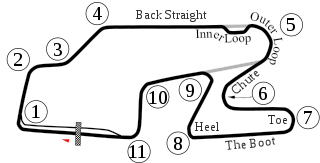
Watkins Glen International, nicknamed "The Glen", is an automobile race track located in the town of Dix just southwest of the village of Watkins Glen, New York, at the southern tip of Seneca Lake. It was long known around the world as the home of the Formula One United States Grand Prix, which it hosted for twenty consecutive years (1961–1980). In addition, the site has also been home to road racing of nearly every class, including the World Sportscar Championship, Trans-Am, Can-Am, NASCAR Cup Series, the International Motor Sports Association and the IndyCar Series. The facility is currently owned by NASCAR.
Vietnam War: U.S. President Lyndon B. Johnson announces his order to increase the number of United States troops in South Vietnam from 75,000 to 125,000.

The Vietnam War was a conflict in Vietnam, Laos, and Cambodia from 1 November 1955 to the fall of Saigon on 30 April 1975. It was the second of the Indochina Wars and was officially fought between North Vietnam and South Vietnam. The north was supported by the Soviet Union, China, and other communist states, while the south was supported by the United States and other anti-communist allies. The war is widely considered to be a Cold War-era proxy war. It lasted almost 20 years, with direct U.S. involvement ending in 1973. The conflict also spilled over into neighboring states, exacerbating the Laotian Civil War and the Cambodian Civil War, which ended with all three countries becoming communist states by 1975.

Lyndon Baines Johnson, often referred to by his initials LBJ, was an American politician who served as the 36th president of the United States from 1963 to 1969. He had previously served as the 37th vice president from 1961 to 1963 under President John F. Kennedy, and was sworn in shortly after Kennedy's assassination. A Democrat from Texas, Johnson also served as a U.S. representative, U.S. senator and the Senate's majority leader. He holds the distinction of being one of the few presidents who served in all elected offices at the federal level.
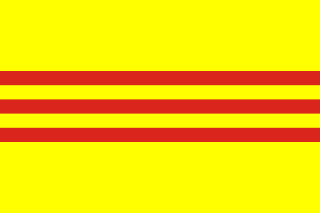
South Vietnam, officially the Republic of Vietnam, was a country in Southeast Asia that existed from 1955 to 1975, the period when the southern portion of Vietnam was a member of the Western Bloc during part of the Cold War after the 1954 division of Vietnam. It first received international recognition in 1949 as the State of Vietnam within the French Union, with its capital at Saigon, before becoming a republic in 1955. South Vietnam was bordered by North Vietnam to the north, Laos to the northwest, Cambodia to the southwest, and Thailand across the Gulf of Thailand to the southwest. Its sovereignty was recognized by the United States and 87 other nations, though it failed to gain admission into the United Nations as a result of a Soviet veto in 1957. It was succeeded by the Republic of South Vietnam in 1975.
Beginning of the 8th World Festival of Youth and Students
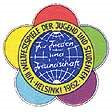
The 8th World Festival of Youth and Students (WFYS) was held in 1962 in Helsinki, capital city of Finland.
The German Volkswagen Act comes into force.
The Volkswagen Act is a set of German federal laws enacted in 1960, regulating the privatization of Volkswagenwerk GmbH into the Volkswagen Group. In order to maintain government control in the privately owned company, it stipulated that the votes in major shareholder meeting resolutions require 4/5th (80%) agreement. This part of the law was deemed to violate the "free movement of capital" principle of European Union corporate law. After a series of challenges from 2007 to 2013, the German parliament finally amended the part in 2013 to EU Court of Justice satisfaction.
Heavy rain and a mudslide in Isahaya, western Kyushu, Japan, kills 992.
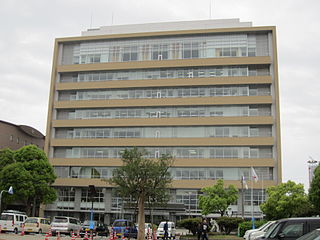
Isahaya is a city located in Nagasaki Prefecture, Japan. The city was founded on September 1, 1940. As of November 1, 2022, the city has an estimated population of 132,385 and a population density of 389 persons per km². The total area is 341.79 km2 (131.97 sq mi).

Kyushu is the third-largest island of Japan's five main islands and the most southerly of the four largest islands. In the past, it has been known as Kyūkoku , Chinzei and Tsukushi-no-shima . The historical regional name Saikaidō referred to Kyushu and its surrounding islands. Kyushu has a land area of 36,782 square kilometres (14,202 sq mi) and a population of 14,311,224 in 2018.
A B-25 bomber crashed into the Empire State Building in New York City, killing 14 people and causing an estimated $1 million in damage.

The North American B-25 Mitchell is an American medium bomber that was introduced in 1941 and named in honor of Major General William "Billy" Mitchell, a pioneer of U.S. military aviation. Used by many Allied air forces, the B-25 served in every theater of World War II, and after the war ended, many remained in service, operating across four decades. Produced in numerous variants, nearly 10,000 B-25s were built. These included several limited models such as the F-10 reconnaissance aircraft, the AT-24 crew trainers, and the United States Marine Corps' PBJ-1 patrol bomber.
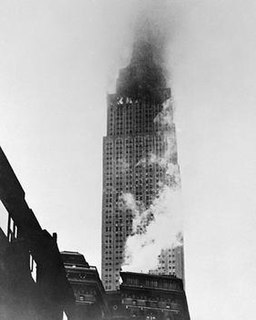
On July 28, 1945, a B-25 Mitchell bomber of the United States Army Air Forces crashed into the Empire State Building in New York City, while flying in thick fog. The accident caused the deaths of fourteen people and damage estimated at US$1 million, although the building's structural integrity was not compromised.

The Empire State Building is a 102-story Art Deco skyscraper in Midtown Manhattan, New York City. The building was designed by Shreve, Lamb & Harmon and built from 1930 to 1931. Its name is derived from "Empire State", the nickname of the state of New York. The building has a roof height of 1,250 feet (380 m) and stands a total of 1,454 feet (443.2 m) tall, including its antenna. The Empire State Building was the world's tallest building until the World Trade Center was constructed in 1970; following the collapse of the World Trade Center in 2001, the Empire State Building was New York City's tallest building until it was surpassed in 2012. As of 2022, the building is the seventh-tallest building in New York City, the ninth-tallest completed skyscraper in the United States, the 54th-tallest in the world, and the sixth-tallest freestanding structure in the Americas.
A U.S. Army B-25 bomber crashes into the 79th floor of the Empire State Building killing 14 and injuring 26.

The North American B-25 Mitchell is an American medium bomber that was introduced in 1941 and named in honor of Major General William "Billy" Mitchell, a pioneer of U.S. military aviation. Used by many Allied air forces, the B-25 served in every theater of World War II, and after the war ended, many remained in service, operating across four decades. Produced in numerous variants, nearly 10,000 B-25s were built. These included several limited models such as the F-10 reconnaissance aircraft, the AT-24 crew trainers, and the United States Marine Corps' PBJ-1 patrol bomber.

On July 28, 1945, a B-25 Mitchell bomber of the United States Army Air Forces crashed into the Empire State Building in New York City, while flying in thick fog. The accident caused the deaths of fourteen people and damage estimated at US$1 million, although the building's structural integrity was not compromised.

The Empire State Building is a 102-story Art Deco skyscraper in Midtown Manhattan, New York City. The building was designed by Shreve, Lamb & Harmon and built from 1930 to 1931. Its name is derived from "Empire State", the nickname of the state of New York. The building has a roof height of 1,250 feet (380 m) and stands a total of 1,454 feet (443.2 m) tall, including its antenna. The Empire State Building was the world's tallest building until the World Trade Center was constructed in 1970; following the collapse of the World Trade Center in 2001, the Empire State Building was New York City's tallest building until it was surpassed in 2012. As of 2022, the building is the seventh-tallest building in New York City, the ninth-tallest completed skyscraper in the United States, the 54th-tallest in the world, and the sixth-tallest freestanding structure in the Americas.
World War II: Operation Gomorrah: The Royal Air Force bombs Hamburg, Germany causing a firestorm that kills 42,000 German civilians.

The Allied bombing of Hamburg during World War II included numerous attacks on civilians and civic infrastructure. As a large city and industrial centre, Hamburg's shipyards, U-boat pens, and the Hamburg-Harburg area oil refineries were attacked throughout the war.

Hamburg, officially the Free and Hanseatic City of Hamburg, is the second-largest city in Germany after Berlin, as well as the overall 7th largest city and largest non-capital city in the European Union with a population of over 1.85 million. Hamburg's urban area has a population of around 2.5 million and is part of the Hamburg Metropolitan Region, which has a population of over 5.1 million people in total. The city lies on the River Elbe and two of its tributaries, the River Alster and the River Bille. One of Germany's 16 federated states, Hamburg is surrounded by Schleswig-Holstein to the north and Lower Saxony to the south.

A firestorm is a conflagration which attains such intensity that it creates and sustains its own wind system. It is most commonly a natural phenomenon, created during some of the largest bushfires and wildfires. Although the term has been used to describe certain large fires, the phenomenon's determining characteristic is a fire with its own storm-force winds from every point of the compass towards the storm's center, where the air is heated and then ascends.
World War II: Soviet leader Joseph Stalin issues Order No. 227. In response to alarming German advances, all those who retreat or otherwise leave their positions without orders to do so are to be tried in a military court, with punishment ranging from duty in a shtrafbat battalion, imprisonment in a Gulag, or execution.

World War II or the Second World War, often abbreviated as WWII or WW2, was a world war that lasted from 1939 to 1945. It involved the vast majority of the world's countries—including all of the great powers—forming two opposing military alliances: the Allies and the Axis powers. World War II was a total war that directly involved more than 100 million personnel from more than 30 countries.

Joseph Vissarionovich Stalin was a Georgian revolutionary and Soviet political leader who led the Soviet Union from 1924 until his death in 1953. He held power as General Secretary of the Communist Party of the Soviet Union (1922–1952) and Chairman of the Council of Ministers of the Soviet Union (1941–1953). Initially governing the country as part of a collective leadership, he consolidated power to become a dictator by the 1930s. Ideologically adhering to the Leninist interpretation of Marxism, he formalised these ideas as Marxism–Leninism, while his own policies are called Stalinism.

Order No. 227 was an order issued on 28 July 1942 by Joseph Stalin, who was acting as the People's Commissar of Defence. It is known for its line "Not a step back!", which became the primary slogan of the Soviet press in summer 1942.

Nazi Germany was the German state between 1933 and 1945, when Adolf Hitler and the Nazi Party controlled the country, transforming it into a dictatorship. Under Hitler's rule, Germany quickly became a totalitarian state where nearly all aspects of life were controlled by the government. The Third Reich, meaning "Third Realm" or "Third Empire", alluded to the Nazi claim that Nazi Germany was the successor to the earlier Holy Roman Empire (800–1806) and German Empire (1871–1918). The Third Reich, which Hitler and the Nazis referred to as the Thousand-Year Reich, ended in May 1945 after just 12 years when the Allies defeated Germany, ending World War II in Europe.
Shtrafbats were Soviet penal battalions that fought on the Eastern Front in World War II.

The Gulag was the government agency in charge of the Soviet network of forced labour camps which were set up by order of Vladimir Lenin, reaching its peak during Joseph Stalin's rule from the 1930s to the early 1950s. English-language speakers also use the word gulag in reference to all of the forced-labor camps that existed in the Soviet Union, including the camps that existed in the post-Lenin era.
At the Salzburg Conference, German dictator Adolf Hitler demanded the replacement of much of Slovakia's cabinet.

The Salzburg Conference was a conference between Nazi Germany and the Slovak State, held on 28 July 1940, in Salzburg, Reichsgau Ostmark. The Germans demanded the expulsion of the Nástup faction of the Slovak People's Party from the Slovak government because of its independent foreign policy, threatening to unilaterally revoke the protection guarantees that Slovakia had obtained in the 1939 German–Slovak treaty.

Adolf Hitler was an Austrian-born German politician who was dictator of Germany from 1933 until his death in 1945. He rose to power as the leader of the Nazi Party, becoming the chancellor in 1933 and then taking the title of Führer und Reichskanzler in 1934. During his dictatorship, he initiated World War II in Europe by invading Poland on 1 September 1939. He was closely involved in military operations throughout the war and was central to the perpetration of the Holocaust: the genocide of about six million Jews and millions of other victims.
During the excavation of a 7th-century ship burial at Sutton Hoo in Suffolk, England, archaeologists discovered a helmet that is widely associated with King Rædwald of East Anglia.

A ship burial or boat grave is a burial in which a ship or boat is used either as the tomb for the dead and the grave goods, or as a part of the grave goods itself. If the ship is very small, it is called a boat grave. This style of burial was practiced by various seafaring cultures in Asia and Europe. Notable ship burial practices include those by the Germanic peoples, particularly by Viking Age Norsemen, as well as the pre-colonial ship burials described in the Boxer Codex in the Philippines.

Sutton Hoo is the site of two early medieval cemeteries dating from the 6th to 7th centuries near the English town of Woodbridge. Archaeologists have been excavating the area since 1938, when a previously undisturbed ship burial containing a wealth of Anglo-Saxon artefacts was discovered. The site is important in establishing the history of the Anglo-Saxon kingdom of East Anglia as well as illuminating the Anglo-Saxons during a period which lacks historical documentation.

Suffolk is a ceremonial county of England in East Anglia. It borders Norfolk to the north, Cambridgeshire to the west and Essex to the south; the North Sea lies to the east. The county town is Ipswich; other important towns include Lowestoft, Bury St Edmunds, Newmarket, and Felixstowe which has one of the largest container ports in Europe.

The Sutton Hoo helmet is a decorated Anglo-Saxon helmet found during a 1939 excavation of the Sutton Hoo ship-burial. It was buried around 625 and is widely associated with King Rædwald of East Anglia; its elaborate decoration may have given it a secondary function akin to a crown. The helmet was both a functional piece of armour that would have offered considerable protection if ever used in warfare, and a decorative, prestigious piece of extravagant metalwork. It is described as "the most iconic object" from "one of the most spectacular archaeological discoveries ever made", and perhaps the most important known Anglo-Saxon artefact.

Rædwald, also written as Raedwald or Redwald, was a king of East Anglia, an Anglo-Saxon kingdom which included the present-day English counties of Norfolk and Suffolk. He was the son of Tytila of East Anglia and a member of the Wuffingas dynasty, who were the first kings of the East Angles. Details about Rædwald's reign are scarce, primarily because the Viking invasions of the 9th century destroyed the monasteries in East Anglia where many documents would have been kept. Rædwald reigned from about 599 until his death around 624, initially under the overlordship of Æthelberht of Kent. In 616, as a result of fighting the Battle of the River Idle and defeating Æthelfrith of Northumbria, he was able to install Edwin, who was acquiescent to his authority, as the new king of Northumbria. During the battle, both Æthelfrith and Rædwald's son, Rægenhere, were killed.
The Sutton Hoo helmet is discovered.

The Sutton Hoo helmet is a decorated Anglo-Saxon helmet found during a 1939 excavation of the Sutton Hoo ship-burial. It was buried around 625 and is widely associated with King Rædwald of East Anglia; its elaborate decoration may have given it a secondary function akin to a crown. The helmet was both a functional piece of armour that would have offered considerable protection if ever used in warfare, and a decorative, prestigious piece of extravagant metalwork. It is described as "the most iconic object" from "one of the most spectacular archaeological discoveries ever made", and perhaps the most important known Anglo-Saxon artefact.
Hawaii Clipper disappears between Guam and Manila as the first loss of an airliner in trans-Pacific China Clipper service.

Hawaii Clipper was one of three Pan American Airways Martin M-130 flying boats. It disappeared with six passengers and nine crew en route from Guam to Manila, on July 28, 1938.

Guam is an organized, unincorporated territory of the United States in the Micronesia subregion of the western Pacific Ocean. It is the westernmost point and territory of the United States ; its capital Hagåtña (144°45'00"E) lies further west than Melbourne, Australia (144°57'47"E). In Oceania, Guam is the largest and southernmost of the Mariana Islands and the largest island in Micronesia. Guam's capital is Hagåtña, and the most populous village is Dededo.

Manila, known officially as the City of Manila, is the capital of the Philippines, and its second-most populous city. It is highly urbanized and as of 2019 was the world's most densely populated city proper. Manila is considered to be a global city and rated as an Alpha – City by Globalization and World Cities Research Network (GaWC). It was the first chartered city in the country, designated as such by the Philippine Commission Act 183 of July 31, 1901. It became autonomous with the passage of Republic Act No. 409, "The Revised Charter of the City of Manila", on June 18, 1949. Manila is considered to be part of the world's original set of global cities because its commercial networks were the first to extend across the Pacific Ocean and connect Asia with the Spanish Americas through the galleon trade; when this was accomplished, it marked the first time in world history that an uninterrupted chain of trade routes circling the planet had been established. It is among the most populous and fastest growing cities in Southeast Asia.

China Clipper (NC14716) was the first of three Martin M-130 four-engine flying boats built for Pan American Airways and was used to inaugurate the first commercial transpacific airmail service from San Francisco to Manila on November 22, 1935. Built at a cost of $417,000 by the Glenn L. Martin Company in Baltimore, Maryland, it was delivered to Pan Am on October 9, 1935. It was one of the largest airplanes of its time.
The Boeing B-17 Flying Fortress heavy bomber, which dropped more bombs than any other U.S. aircraft in World War II, made its first flight.
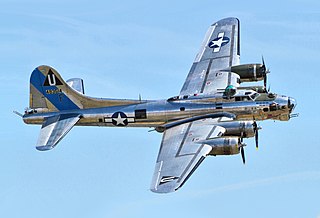
The Boeing B-17 Flying Fortress is a four-engined heavy bomber developed in the 1930s for the United States Army Air Corps (USAAC). Relatively fast and high-flying for a bomber of its era, the B-17 was used primarily in the European Theater of Operations and dropped more bombs than any other aircraft during World War II. It is the third-most produced bomber of all time, behind the four-engined Consolidated B-24 Liberator and the multirole, twin-engined Junkers Ju 88. It was also employed as a transport, antisubmarine aircraft, drone controller, and search-and-rescue aircraft.

Heavy bombers are bomber aircraft capable of delivering the largest payload of air-to-ground weaponry and longest range of their era. Archetypal heavy bombers have therefore usually been among the largest and most powerful military aircraft at any point in time. In the second half of the 20th century, heavy bombers were largely superseded by strategic bombers, which were often smaller in size, but had much longer ranges and were capable of delivering nuclear bombs.

World War II or the Second World War, often abbreviated as WWII or WW2, was a world war that lasted from 1939 to 1945. It involved the vast majority of the world's countries—including all of the great powers—forming two opposing military alliances: the Allies and the Axis powers. World War II was a total war that directly involved more than 100 million personnel from more than 30 countries.
First flight of the Boeing B-17 Flying Fortress.

The Boeing B-17 Flying Fortress is a four-engined heavy bomber developed in the 1930s for the United States Army Air Corps (USAAC). Relatively fast and high-flying for a bomber of its era, the B-17 was used primarily in the European Theater of Operations and dropped more bombs than any other aircraft during World War II. It is the third-most produced bomber of all time, behind the four-engined Consolidated B-24 Liberator and the multirole, twin-engined Junkers Ju 88. It was also employed as a transport, antisubmarine aircraft, drone controller, and search-and-rescue aircraft.
U.S. President Herbert Hoover orders the United States Army to forcibly evict the "Bonus Army" of World War I veterans gathered in Washington, D.C.
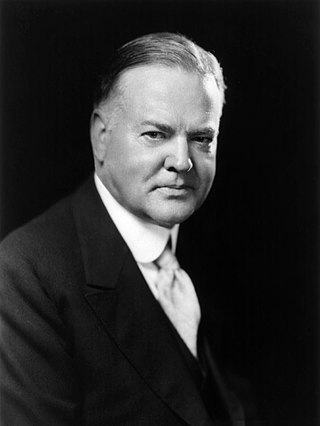
Herbert Clark Hoover was an American politician who served as the 31st president of the United States from 1929 to 1933 and a member of the Republican Party, holding office during the onset of the Great Depression in the United States. A self-made man who became rich as a mining engineer, Hoover led the Commission for Relief in Belgium, served as the director of the U.S. Food Administration, and served as the U.S. Secretary of Commerce.

The Bonus Army was a group of 43,000 demonstrators – 17,000 veterans of U.S. involvement in World War I, their families, and affiliated groups – who gathered in Washington, D.C., in mid-1932 to demand early cash redemption of their service bonus certificates. Organizers called the demonstrators the Bonus Expeditionary Force (B.E.F.), to echo the name of World War I's American Expeditionary Forces, while the media referred to them as the "Bonus Army" or "Bonus Marchers". The demonstrators were led by Walter W. Waters, a former sergeant.
In New York City, the NAACP and church and community leaders organized a silent march of at least 8,000 people to protest violence directed towards African Americans.

The National Association for the Advancement of Colored People (NAACP) is a civil rights organization in the United States, formed in 1909 as an interracial endeavor to advance justice for African Americans by a group including W. E. B. Du Bois, Mary White Ovington, Moorfield Storey and Ida B. Wells. Leaders of the organization included Thurgood Marshall and Roy Wilkins.
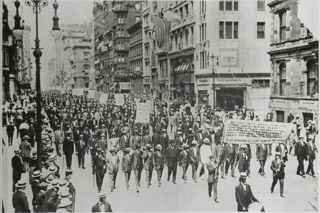
The Negro Silent Protest Parade, commonly known as the Silent Parade, was a silent march of about 10,000 African Americans along Fifth Avenue starting at 57th Street in New York City on July 28, 1917. The event was organized by the NAACP, church, and community leaders to protest violence directed towards African Americans, such as recent lynchings in Waco and Memphis. The parade was precipitated by the East St. Louis riots in May and July 1917 where at least 40 black people were killed by white mobs, in part touched off by a labor dispute where blacks were used for strike breaking.

African Americans are an ethnic group consisting of Americans with partial or total ancestry from sub-Saharan Africa. The term "African American" generally denotes descendants of enslaved Africans who are from the United States. While some Black immigrants or their children may also come to identify as African-American, the majority of first generation immigrants do not, preferring to identify with their nation of origin.
The Silent Parade takes place in New York City, in protest against murders, lynchings, and other violence directed towards African Americans.

The Negro Silent Protest Parade, commonly known as the Silent Parade, was a silent march of about 10,000 African Americans along Fifth Avenue starting at 57th Street in New York City on July 28, 1917. The event was organized by the NAACP, church, and community leaders to protest violence directed towards African Americans, such as recent lynchings in Waco and Memphis. The parade was precipitated by the East St. Louis riots in May and July 1917 where at least 40 black people were killed by white mobs, in part touched off by a labor dispute where blacks were used for strike breaking.

New York, often called New York City or NYC for short, is the most populous city in the United States. With a 2020 population of 8,804,190 distributed over 300.46 square miles (778.2 km2), New York City is also the most densely populated major city in the United States, and is more than twice as populous as second-place Los Angeles. New York City lies at the southern tip of New York State, and constitutes the geographical and demographic center of both the Northeast megalopolis and the New York metropolitan area, the largest metropolitan area in the world by urban landmass. With over 20.1 million people in its metropolitan statistical area and 23.5 million in its combined statistical area as of 2020, New York is one of the world's most populous megacities, and over 58 million people live within 250 mi (400 km) of the city. New York City is a global cultural, financial, and media center with a significant influence on commerce, health care and life sciences, entertainment, research, technology, education, politics, tourism, dining, art, fashion, and sports. New York is the most photographed city in the world. Home to the headquarters of the United Nations, New York is an important center for international diplomacy, an established safe haven for global investors, and is sometimes described as the capital of the world.

African Americans are an ethnic group consisting of Americans with partial or total ancestry from sub-Saharan Africa. The term "African American" generally denotes descendants of enslaved Africans who are from the United States. While some Black immigrants or their children may also come to identify as African-American, the majority of first generation immigrants do not, preferring to identify with their nation of origin.
U.S. Marines landed at Port-au-Prince to begin a twenty-year occupation of Haiti.

The United States Marine Corps (USMC), also referred to as the United States Marines, is the maritime land force service branch of the United States Armed Forces responsible for conducting expeditionary and amphibious operations through combined arms, implementing its own infantry, artillery, aerial, and special operations forces. The U.S. Marine Corps is one of the eight uniformed services of the United States.

Port-au-Prince is the capital and most populous city of Haiti. The city's population was estimated at 987,311 in 2015 with the metropolitan area estimated at a population of 2,618,894. The metropolitan area is defined by the IHSI as including the communes of Port-au-Prince, Delmas, Cite Soleil, Tabarre, Carrefour and Pétion-Ville.

The United States of America occupation of Haiti began on July 28, 1915, when 330 United States Marines landed at Port-au-Prince, Haiti, after the National City Bank of New York convinced the President of the United States, Woodrow Wilson, to seize control of Haiti's political and financial interests. The invasion and subsequent occupation was promoted by growing American business interests in Haiti, especially the National City Bank of New York, which withheld funds from Haiti and paid rebels to destabilize the nation through the Bank of the Republic of Haiti in actions planned to promote American intervention. The July 1915 invasion took place following years of socioeconomic instability within Haiti that culminated with the assassination of President of Haiti Vilbrun Guillaume Sam by insurgents angered by his ordered executions of elite opposition. The occupation ended on August 1, 1934, after President Franklin D. Roosevelt reaffirmed an August 1933 disengagement agreement. The last contingent of marines departed on August 15, 1934, after a formal transfer of authority to the American-created Gendarmerie of Haiti.
The United States begins a 19-year occupation of Haiti.

The United States of America occupation of Haiti began on July 28, 1915, when 330 United States Marines landed at Port-au-Prince, Haiti, after the National City Bank of New York convinced the President of the United States, Woodrow Wilson, to seize control of Haiti's political and financial interests. The invasion and subsequent occupation was promoted by growing American business interests in Haiti, especially the National City Bank of New York, which withheld funds from Haiti and paid rebels to destabilize the nation through the Bank of the Republic of Haiti in actions planned to promote American intervention. The July 1915 invasion took place following years of socioeconomic instability within Haiti that culminated with the assassination of President of Haiti Vilbrun Guillaume Sam by insurgents angered by his ordered executions of elite opposition. The occupation ended on August 1, 1934, after President Franklin D. Roosevelt reaffirmed an August 1933 disengagement agreement. The last contingent of marines departed on August 15, 1934, after a formal transfer of authority to the American-created Gendarmerie of Haiti.
In the culmination of the July Crisis, Austria-Hungary declares war on Serbia, igniting World War I.

The July Crisis was a series of interrelated diplomatic and military escalations among the major powers of Europe in the summer of 1914, which led to the outbreak of World War I (1914–1918). The crisis began on 28 June 1914, when Gavrilo Princip, a Bosnian Serb, assassinated Archduke Franz Ferdinand, heir presumptive to the Austro-Hungarian throne, and his wife Sophie, Duchess of Hohenberg. The assassin team was armed, trained, smuggled across the border and instructed by the head of the Serbian military intelligence service and his staff. A complex web of alliances, coupled with miscalculations when many leaders regarded war as in their best interests or felt that a general war would not occur, resulted in a general outbreak of hostilities among most major European nations in early August 1914.

Austria-Hungary, often referred to as the Austro-Hungarian Empire, the Dual Monarchy, or Austria, was a constitutional monarchy and great power in Central Europe between 1867 and 1918. It was formed with the Austro-Hungarian Compromise of 1867 in the aftermath of the Austro-Prussian War and was dissolved shortly after its defeat in the First World War.

Serbia, officially the Republic of Serbia, is a landlocked country in Southeastern and Central Europe, situated at the crossroads of the Pannonian Plain and the Balkans. It shares land borders with Hungary to the north, Romania to the northeast, Bulgaria to the southeast, North Macedonia to the south, Croatia and Bosnia and Herzegovina to the west, and Montenegro to the southwest, and claims a border with Albania through the disputed territory of Kosovo. Serbia with Kosovo has about 8.6 million inhabitants. Its capital Belgrade is also the largest city.
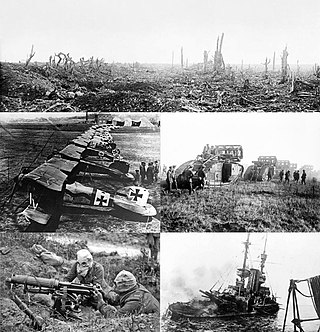
World War I or the First World War, often abbreviated as WWI or WW1, and referred to by some Anglophone authors as the "Great War" or the "War to End All Wars", was a global conflict which lasted from 1914 to 1918, and is considered one of the deadliest conflicts in history. Belligerents included much of Europe, the Russian Empire, the United States, and the Ottoman Empire, with fighting occurring throughout Europe, the Middle East, Africa, the Pacific, and parts of Asia. An estimated 9 million soldiers were killed in combat, plus another 23 million wounded, while 5 million civilians died as a result of military action, hunger, and disease. Millions more died in genocides within the Ottoman Empire and in the 1918 influenza pandemic, which was exacerbated by the movement of combatants during the war.
The Australasian Antarctic Expedition began with the departure of SY Aurora (pictured) from London.

The Australasian Antarctic Expedition was a 1911–1914 expedition headed by Douglas Mawson that explored the largely uncharted Antarctic coast due south of Australia. Mawson had been inspired to lead his own venture by his experiences on Ernest Shackleton's Nimrod expedition in 1907–1909. During its time in Antarctica, the expedition's sledging parties covered around 4,180 kilometres (2,600 mi) of unexplored territory, while its ship, SY Aurora, navigated 2,900 kilometres (1,800 mi) of unmapped coastline. Scientific activities included meteorological measurements, magnetic observations, an expansive oceanographic program, and the collection of many biological and geological samples, including the discovery of the first meteorite found in Antarctica. The expedition was the first to establish and maintain wireless contact between Antarctica and Australia. Another planned innovation – the use of an aircraft – was thwarted by an accident before the expedition sailed. The plane's fuselage was adapted to form a motorised sledge or "air-tractor", but it proved to be of very limited usefulness.

SY Aurora was a 580-ton barque-rigged steam yacht built by Alexander Stephen and Sons Ltd. in Dundee, Scotland, in 1876, for the Dundee Seal and Whale Fishing Company. It was 165 feet (50 m) long with a 30-foot (9.1 m) beam. The hull was made of oak, sheathed with greenheart and lined with fir. The bow was a mass of solid wood reinforced with steel-plate armour. The heavy side frames were braced by two levels of horizontal oak beams. Her primary use was whaling in the northern seas, and she was built sturdily enough to withstand the heavy weather and ice that would be encountered there. That strength proved useful for Antarctic exploration as well and between 1911 and 1917 she made five trips to the continent, both for exploration and rescue missions.
The Australasian Antarctic Expedition began as the SY Aurora departed London.

The Australasian Antarctic Expedition was a 1911–1914 expedition headed by Douglas Mawson that explored the largely uncharted Antarctic coast due south of Australia. Mawson had been inspired to lead his own venture by his experiences on Ernest Shackleton's Nimrod expedition in 1907–1909. During its time in Antarctica, the expedition's sledging parties covered around 4,180 kilometres (2,600 mi) of unexplored territory, while its ship, SY Aurora, navigated 2,900 kilometres (1,800 mi) of unmapped coastline. Scientific activities included meteorological measurements, magnetic observations, an expansive oceanographic program, and the collection of many biological and geological samples, including the discovery of the first meteorite found in Antarctica. The expedition was the first to establish and maintain wireless contact between Antarctica and Australia. Another planned innovation – the use of an aircraft – was thwarted by an accident before the expedition sailed. The plane's fuselage was adapted to form a motorised sledge or "air-tractor", but it proved to be of very limited usefulness.

SY Aurora was a 580-ton barque-rigged steam yacht built by Alexander Stephen and Sons Ltd. in Dundee, Scotland, in 1876, for the Dundee Seal and Whale Fishing Company. It was 165 feet (50 m) long with a 30-foot (9.1 m) beam. The hull was made of oak, sheathed with greenheart and lined with fir. The bow was a mass of solid wood reinforced with steel-plate armour. The heavy side frames were braced by two levels of horizontal oak beams. Her primary use was whaling in the northern seas, and she was built sturdily enough to withstand the heavy weather and ice that would be encountered there. That strength proved useful for Antarctic exploration as well and between 1911 and 1917 she made five trips to the continent, both for exploration and rescue missions.

London is the capital and largest city of England and the United Kingdom, with a population of just under 9 million. It stands on the River Thames in south-east England at the head of a 50-mile (80 km) estuary down to the North Sea, and has been a major settlement for two millennia. The City of London, its ancient core and financial centre, was founded by the Romans as Londinium and retains its medieval boundaries. The City of Westminster, to the west of the City of London, has for centuries hosted the national government and parliament. Since the 19th century, the name "London" has also referred to the metropolis around this core, historically split between the counties of Middlesex, Essex, Surrey, Kent, and Hertfordshire, which largely comprises Greater London, governed by the Greater London Authority.
The city of Miami, Florida is incorporated.

Miami, officially the City of Miami, known as "the 305", "The Magic City", and "Gateway to the Americas", is a coastal metropolis and the county seat of Miami-Dade County in South Florida, United States. With a population of 442,241 as of the 2020 census, it is the second-most populous city in Florida and the eleventh-most populous city in the Southeastern United States. The Miami metropolitan area is the ninth largest in the U.S. with a population of 6.138 million people as of 2020. The city has the third-largest skyline in the U.S. with over 300 high-rises, 58 of which exceed 491 ft (150 m).
A moderate earthquake measuring magnitude 4.3–5.2 strikes the Italian island of Ischia, killing over 2,300 people.

The 1883 Casamicciola earthquake, also known as the Ischia earthquake occurred on 28 July at 20:25 local time on the island of Ischia in the Gulf of Naples in Italy. Although the earthquake had an estimated moment magnitude of 4.2 to 5.5, considered moderate in size, it caused intense ground shaking that was assigned XI (Extreme) on the Modified Mercalli intensity scale. Between 2,313 and 3,100 people lost their lives. The city also suffered great property losses, with 80 percent of all homes destroyed. This earthquake was exceptionally destructive for its magnitude mainly due to its shallow focal depth.

Ischia is a volcanic island in the Tyrrhenian Sea. It lies at the northern end of the Gulf of Naples, about 30 km (19 mi) from Naples. It is the largest of the Phlegrean Islands. Roughly trapezoidal in shape, it measures approximately 10 km (6 mi) east to west and 7 km (4 mi) north to south and has about 34 km (21 mi) of coastline and a surface area of 46.3 km2 (17.9 sq mi). It is almost entirely mountainous; the highest peak is Mount Epomeo, at 788 m (2,585 ft). The island is very densely populated, with 62,000 residents.
The 14th Amendment to the United States Constitution is certified, establishing African American citizenship and guaranteeing due process of law.

The Fourteenth Amendment to the United States Constitution was adopted on July 9, 1868, as one of the Reconstruction Amendments. Often considered as one of the most consequential amendments, it addresses citizenship rights and equal protection under the law and was proposed in response to issues related to former slaves following the American Civil War. The amendment was bitterly contested, particularly by the states of the defeated Confederacy, which were forced to ratify it in order to regain representation in Congress. The amendment, particularly its first section, is one of the most litigated parts of the Constitution, forming the basis for landmark Supreme Court decisions such as Brown v. Board of Education (1954) regarding racial segregation, Roe v. Wade (1973) regarding abortion, Bush v. Gore (2000) regarding the 2000 presidential election, and Obergefell v. Hodges (2015) regarding same-sex marriage. The amendment limits the actions of all state and local officials, and also those acting on behalf of such officials.
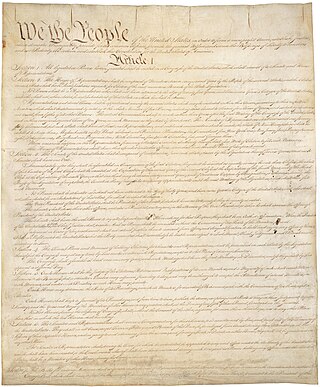
The Constitution of the United States is the supreme law of the United States of America. It superseded the Articles of Confederation, the nation's first constitution, in 1789. Originally comprising seven articles, it delineates the national frame of government. Its first three articles embody the doctrine of the separation of powers, whereby the federal government is divided into three branches: the legislative, consisting of the bicameral Congress ; the executive, consisting of the president and subordinate officers ; and the judicial, consisting of the Supreme Court and other federal courts. Article IV, Article V, and Article VI embody concepts of federalism, describing the rights and responsibilities of state governments, the states in relationship to the federal government, and the shared process of constitutional amendment. Article VII establishes the procedure subsequently used by the 13 States to ratify it. It is regarded as the oldest written and codified national constitution in force.

African Americans are an ethnic group consisting of Americans with partial or total ancestry from sub-Saharan Africa. The term "African American" generally denotes descendants of enslaved Africans who are from the United States. While some Black immigrants or their children may also come to identify as African-American, the majority of first generation immigrants do not, preferring to identify with their nation of origin.
Due process of law is application by state of all legal rules and principles pertaining to the case so all legal rights that are owed to the person are respected. Due process balances the power of law of the land and protects the individual person from it. When a government harms a person without following the exact course of the law, this constitutes a due process violation, which offends the rule of law.
At the age of 18, Vinnie Ream became the youngest artist and first woman to receive a commission from the United States government for a statue—that of Abraham Lincoln currently in the U.S. Capitol rotunda.

Lavinia Ellen "Vinnie" Ream Hoxie was an American sculptor. Her most famous work is the statue of U.S. President Abraham Lincoln in the United States Capitol rotunda. Ream's Statue of Sequoyah and Statue of Samuel J. Kirkwood, both part of the National Statuary Hall collection. Other notable works by Ream include the Statue of David Farragut and the Bust of Edwin B. Hay, which are also both located in Washington, D.C.. Additionally, Ream created works which were displayed at The Woman's Building at the 1893 World's Columbian Exposition in Chicago.

Abraham Lincoln was an American lawyer, politician, and statesman who served as the 16th president of the United States from 1861 until his assassination in 1865. Lincoln led the nation through the American Civil War and succeeded in preserving the Union, abolishing slavery, bolstering the federal government, and modernizing the U.S. economy.

The United States Capitol rotunda is the tall central rotunda of the United States Capitol in Washington, D.C. It has been described as the Capitol's "symbolic and physical heart". Built between 1818 and 1824, the rotunda is located below the Capitol dome, which was built between 1857 and 1866.
At the age of 18, Vinnie Ream becomes the first and youngest female artist to receive a commission from the United States government for a statue (of Abraham Lincoln).

Lavinia Ellen "Vinnie" Ream Hoxie was an American sculptor. Her most famous work is the statue of U.S. President Abraham Lincoln in the United States Capitol rotunda. Ream's Statue of Sequoyah and Statue of Samuel J. Kirkwood, both part of the National Statuary Hall collection. Other notable works by Ream include the Statue of David Farragut and the Bust of Edwin B. Hay, which are also both located in Washington, D.C.. Additionally, Ream created works which were displayed at The Woman's Building at the 1893 World's Columbian Exposition in Chicago.

Abraham Lincoln was an American lawyer, politician, and statesman who served as the 16th president of the United States from 1861 until his assassination in 1865. Lincoln led the nation through the American Civil War and succeeded in preserving the Union, abolishing slavery, bolstering the federal government, and modernizing the U.S. economy.
American Civil War: Battle of Ezra Church: Confederate troops make a third unsuccessful attempt to drive Union forces from Atlanta, Georgia.

The American Civil War was a civil war in the United States. It was fought between the Union and the Confederacy, the latter formed by states that had seceded. The central cause of the war was the dispute over whether slavery would be permitted to expand into the western territories, leading to more slave states, or be prevented from doing so, which was widely believed would place slavery on a course of ultimate extinction.

The Battle of Ezra Church, also known as the Battle of Ezra Chapel and the Battle of the Poor House saw Union Army forces under Major General William T. Sherman fight Confederate States Army troops led by Lieutenant General John B. Hood in Fulton County, Georgia during the Atlanta campaign in the American Civil War. Sherman sent Oliver Otis Howard's Union Army of the Tennessee circling around the west side of Atlanta with the purpose of cutting the Macon and Western Railroad. Hood countered the move by sending two corps commanded by Stephen D. Lee and Alexander P. Stewart to block the move. Before Howard's troops reached the railroad, the Confederates launched several attacks on them that were repulsed with heavy losses. Despite the tactical defeat, the Confederates prevented their foes from blocking the railroad.

The Confederate States of America (CSA), commonly referred to as the Confederate States, the Confederacy, or "the South", was an unrecognized breakaway republic in North America that existed from February 8, 1861, to May 9, 1865. The Confederacy comprised U.S. states that declared secession and warred against the United States during the American Civil War. Eleven U.S. states, nicknamed Dixie, declared secession and formed the main part of the CSA. They were South Carolina, Mississippi, Florida, Alabama, Georgia, Louisiana, Texas, Virginia, Arkansas, Tennessee, and North Carolina. Kentucky, and Missouri also had declarations of secession and full representation in the Confederate Congress during their Union army occupation.

During the American Civil War, the Union, also known as the North, referred to the United States led by President Abraham Lincoln. It was opposed by the secessionist Confederate States of America (CSA), informally called "the Confederacy" or "the South". The Union is named after its declared goal of preserving the United States as a constitutional union. "Union" is used in the U.S. Constitution to refer to the founding formation of the people, and to the states in union. In the context of the Civil War, it has also often been used as a synonym for "the northern states loyal to the United States government;" in this meaning, the Union consisted of 20 free states and five border states.

Atlanta is the capital and most populous city of the U.S. state of Georgia. It is the seat of Fulton County, the most populous county in Georgia, but its territory falls in both Fulton and DeKalb counties. With a population of 498,715 living within the city limits, it is the eighth most populous city in the Southeast and 38th most populous city in the United States according to the 2020 U.S. census. It is the core of the much larger Atlanta metropolitan area, which is home to more than 6.1 million people, making it the eighth-largest metropolitan area in the United States. Situated among the foothills of the Appalachian Mountains at an elevation of just over 1,000 feet (300 m) above sea level, it features unique topography that includes rolling hills, lush greenery, and the most dense urban tree coverage of any major city in the United States.
USS Constellation (1854), the last all-sail warship built by the United States Navy and now a museum ship in Baltimore Harbor, is commissioned.
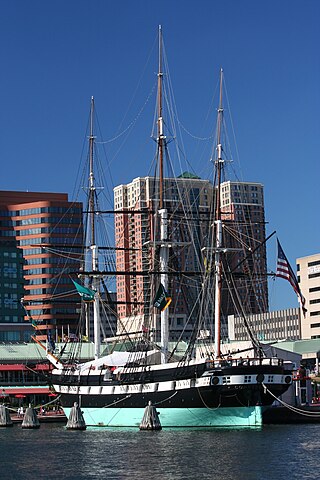
USS Constellation is a sloop-of-war, the last sail-only warship designed and built by the United States Navy. She was built at the Gosport Shipyard between 1853 and 1855 and was named for the earlier frigate of the same name that had been broken up in 1853. The sloop's primary armament was 8-inch (203 mm) shell-firing guns and four 32-pounder long guns, though she carried other guns as well, including two Parrott rifle chase guns. Constellation's career as a front-line unit was relatively short; after entering service in 1855, she served with the Mediterranean Squadron until 1858, and in 1859, she was assigned as the flagship of the Africa Squadron, where she served with the African Slave Trade Patrol. During the American Civil War (1861–1865), the ship returned to the Mediterranean to patrol for Confederate vessels. In late 1864, she returned to the United States to be decommissioned, as most of her crews' enlistments had expired. She spent the rest of the war out of service.

The United States Navy (USN) is the maritime service branch of the United States Armed Forces and one of the eight uniformed services of the United States. It is the largest and most powerful navy in the world, with the estimated tonnage of its active battle fleet alone exceeding the next 13 navies combined, including 11 allies or partner nations of the United States as of 2015. It has the highest combined battle fleet tonnage and the world's largest aircraft carrier fleet, with eleven in service, two new carriers under construction, and five other carriers planned. With 336,978 personnel on active duty and 101,583 in the Ready Reserve, the United States Navy is the third largest of the United States military service branches in terms of personnel. It has 290 deployable combat vessels and more than 2,623 operational aircraft as of June 2019.

Helen Delich Bentley Port of Baltimore is a shipping port along the tidal basins of the three branches of the Patapsco River in Baltimore, Maryland on the upper northwest shore of the Chesapeake Bay. It is the nation's largest port facilities for specialized cargo and passenger facilities. It is operated by the Maryland Port Administration (MPA), a unit of the Maryland Department of Transportation.
Peruvian War of Independence: Argentine general José de San Martín declared the independence of Peru from the Spanish Empire.

The Peruvian War of Independence consisted in a series of military conflicts in Peru beginning with viceroy Abascal military victories in the south frontier in 1809, in La Paz revolution and 1811 in the Battle of Guaqui, continuing with the definitive defeat of the Spanish Army in 1824 in the Battle of Ayacucho, and culminating in 1826 with the Siege of Callao. The wars of independence took place with the background of the 1780–1781 uprising by indigenous leader Túpac Amaru II and the earlier removal of Upper Peru and the Río de la Plata regions from the Viceroyalty of Peru. Because of this the viceroy often had the support of the "Lima Oligarchy", who saw their elite interests threatened by popular rebellion and were opposed to the new commercial class in Buenos Aires. During the first decade of the 1800s Peru had been a stronghold for royalists, who fought those in favor of independence in Peru, Bolivia, Quito and Chile. Among the most important events during the war was the proclamation of independence of Peru by José de San Martín on 28 July 1821.

José Francisco de San Martín y Matorras, known simply as José de San Martín or the Liberator of Argentina, Chile and Peru, was an Argentine general and the primary leader of the southern and central parts of South America's successful struggle for independence from the Spanish Empire who served as the Protector of Peru. Born in Yapeyú, Corrientes, in modern-day Argentina, he left the Viceroyalty of the Río de la Plata at the early age of seven to study in Málaga, Spain.

The Spanish Empire, also known as the Hispanic Monarchy or the Catholic Monarchy was a colonial empire governed by Spain and its predecessor states between 1492 and 1976. One of the largest empires in history, it was, in conjunction with the Portuguese Empire, the first to usher the European Age of Discovery and achieve a global scale, controlling vast portions of the Americas, territories in Western Europe, Africa, and various islands in Oceania and Asia. It was one of the most powerful empires of the early modern period, becoming the first empire known as "the empire on which the sun never sets", and reached its maximum extent in the 18th century.
José de San Martín declares the independence of Peru from Spain.

José Francisco de San Martín y Matorras, known simply as José de San Martín or the Liberator of Argentina, Chile and Peru, was an Argentine general and the primary leader of the southern and central parts of South America's successful struggle for independence from the Spanish Empire who served as the Protector of Peru. Born in Yapeyú, Corrientes, in modern-day Argentina, he left the Viceroyalty of the Río de la Plata at the early age of seven to study in Málaga, Spain.

Peru, officially the Republic of Peru, is a country in western South America. It is bordered in the north by Ecuador and Colombia, in the east by Brazil, in the southeast by Bolivia, in the south by Chile, and in the south and west by the Pacific Ocean. Peru is a megadiverse country with habitats ranging from the arid plains of the Pacific coastal region in the west to the peaks of the Andes mountains extending from the north to the southeast of the country to the tropical Amazon basin rainforest in the east with the Amazon River. Peru has a population of 32 million, and its capital and largest city is Lima. At 1.28 million km2, Peru is the 19th largest country in the world, and the third largest in South America.
Peninsular War: Battle of Talavera: Sir Arthur Wellesley's British, Portuguese and Spanish army defeats a French force led by Joseph Bonaparte.

The Peninsular War (1807–1814) was the military conflict fought in the Iberian Peninsula by Spain, Portugal, and the United Kingdom against the invading and occupying forces of the First French Empire during the Napoleonic Wars. In Spain, it is considered to overlap with the Spanish War of Independence. The war started when the French and Spanish armies invaded and occupied Portugal in 1807 by transiting through Spain, and it escalated in 1808 after Napoleonic France occupied Spain, which had been its ally. Napoleon Bonaparte forced the abdications of Ferdinand VII and his father Charles IV and then installed his brother Joseph Bonaparte on the Spanish throne and promulgated the Bayonne Constitution. Most Spaniards rejected French rule and fought a bloody war to oust them. The war on the peninsula lasted until the Sixth Coalition defeated Napoleon in 1814, and is regarded as one of the first wars of national liberation. It is also significant for the emergence of large-scale guerrilla warfare.

The Battle of Talavera was fought just outside the town of Talavera de la Reina, Spain some 120 kilometres (75 mi) southwest of Madrid, during the Peninsular War. At Talavera, a British army under Sir Arthur Wellesley combined with a Spanish army under General Cuesta in operations against French-occupied Madrid. The French army withdrew at night after several of its attacks had been repulsed.
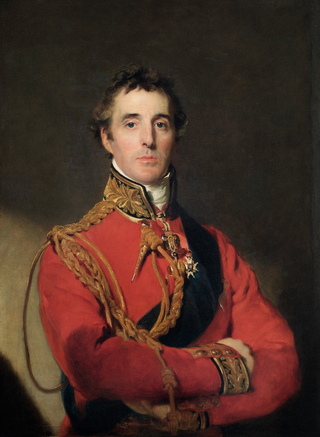
Arthur Wellesley, 1st Duke of Wellington, was an Anglo-Irish soldier and Tory statesman who was one of the leading military and political figures of 19th-century Britain, serving twice as prime minister of the United Kingdom. He is among the commanders who won and ended the Napoleonic Wars when the coalition defeated Napoleon at the Battle of Waterloo in 1815.

Joseph-Napoléon Bonaparte was a French statesman, lawyer, diplomat and older brother of Napoleon Bonaparte. During the Napoleonic Wars, the latter made him King of Naples (1806–1808), and then King of Spain (1808–1813). After the fall of Napoleon, Joseph styled himself Comte de Survilliers and emigrated to the United States, where he settled near Bordentown, New Jersey, on an estate overlooking the Delaware River not far from Philadelphia.
Mahmud II became Sultan of the Ottoman Empire and Caliph of Islam.

Mahmud II was the 30th Sultan of the Ottoman Empire from 1808 until his death in 1839.
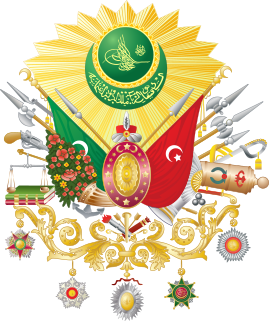
The sultans of the Ottoman Empire, who were all members of the Ottoman dynasty, ruled over the transcontinental empire from its perceived inception in 1299 to its dissolution in 1922. At its height, the Ottoman Empire spanned an area from Hungary in the north to rebel in the south and from Algeria in the west to Iraq in the east. Administered at first from the city of Söğüt since before 1280 and then from the city of Bursa since 1323 or 1324, the empire's capital was moved to Adrianople in 1363 following its conquest by Murad I and then to Constantinople in 1453 following its conquest by Mehmed II.

A caliphate or khilāfah is an institution or public office under the leadership of an Islamic steward with the title of caliph, a person considered a political-religious successor to the Islamic prophet Muhammad and a leader of the entire Muslim world (ummah). Historically, the caliphates were polities based on Islam which developed into multi-ethnic trans-national empires. During the medieval period, three major caliphates succeeded each other: the Rashidun Caliphate (632–661), the Umayyad Caliphate (661–750), and the Abbasid Caliphate (750–1258). In the fourth major caliphate, the Ottoman Caliphate, the rulers of the Ottoman Empire claimed caliphal authority from 1517. Throughout the history of Islam, a few other Muslim states, almost all hereditary monarchies such as the Mamluk Sultanate (Cairo) and Ayyubid Caliphate, have claimed to be caliphates.
French Revolution: Maximilien Robespierre and Louis Antoine de Saint-Just, architects of the Reign of Terror, were executed after their arrest on the previous day.

The French Revolution was a period of radical political and societal change in France that began with the Estates General of 1789 and ended with the formation of the French Consulate in November 1799. Many of its ideas are considered fundamental principles of liberal democracy, while phrases like liberté, égalité, fraternité reappeared in other revolts, such as the 1917 Russian Revolution, and inspired campaigns for the abolition of slavery and universal suffrage. The values and institutions it created dominate French politics to this day.

Maximilien François Marie Isidore de Robespierre was a French lawyer and statesman who became one of the best-known, influential and controversial figures of the French Revolution. As a member of the Estates-General, the Constituent Assembly and the Jacobin Club, he campaigned for universal manhood suffrage, the right to vote for people of color, Jews, actors, domestic staff and the abolition of both clerical celibacy and French involvement in the Atlantic slave trade. In 1791, Robespierre was elected as "public accuser" and became an outspoken advocate for male citizens without a political voice, for their unrestricted admission to the National Guard, to public offices, and to the commissioned ranks of the army, for the right to petition and the right to bear arms in self defence. Robespierre played an important part in the agitation which brought about the fall of the French monarchy on 10 August 1792 and the summoning of a National Convention. His goal was to create a one and indivisible France, equality before the law, to abolish prerogatives and to defend the principles of direct democracy. He earned the nickname "the incorruptible" for his adherence to strict moral values.
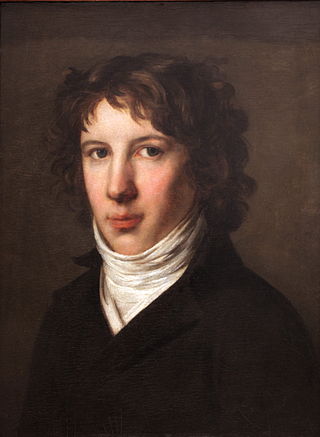
Louis Antoine Léon de Saint-Just, was a French revolutionary, political philosopher, member and president of the French National Convention, a Jacobin club leader, and a major figure of the French Revolution. He was a close friend of Maximilien Robespierre and served as his most trusted ally during the period of Jacobin rule (1793–94) in the French First Republic. Saint-Just worked as a legislator and a military commissar, but he achieved a lasting reputation as the face of the Reign of Terror where he was named the Archangel of the Terror. He publicly delivered the condemnatory reports that emanated from Robespierre and the Committee of Public Safety and defended the use of violence against opponents of the government. He supervised the arrests of some of the most famous figures of the Revolution, many of whom ended up at the guillotine.

The Reign of Terror was a period of the French Revolution when, following the creation of the First Republic, a series of massacres and numerous public executions took place in response to revolutionary fervour, anticlerical sentiment, and accusations of treason by the Committee of Public Safety.
The Thermidorian Reaction is the common term, in the historiography of the French Revolution, for the period between the ousting of Maximilien Robespierre on 9 Thermidor II, or 27 July 1794, and the inauguration of the French Directory on 2 November 1795.
French Revolution: Maximilien Robespierre and Louis Antoine de Saint-Just are executed by guillotine in Paris, France.

The French Revolution was a period of radical political and societal change in France that began with the Estates General of 1789 and ended with the formation of the French Consulate in November 1799. Many of its ideas are considered fundamental principles of liberal democracy, while phrases like liberté, égalité, fraternité reappeared in other revolts, such as the 1917 Russian Revolution, and inspired campaigns for the abolition of slavery and universal suffrage. The values and institutions it created dominate French politics to this day.

Maximilien François Marie Isidore de Robespierre was a French lawyer and statesman who became one of the best-known, influential and controversial figures of the French Revolution. As a member of the Estates-General, the Constituent Assembly and the Jacobin Club, he campaigned for universal manhood suffrage, the right to vote for people of color, Jews, actors, domestic staff and the abolition of both clerical celibacy and French involvement in the Atlantic slave trade. In 1791, Robespierre was elected as "public accuser" and became an outspoken advocate for male citizens without a political voice, for their unrestricted admission to the National Guard, to public offices, and to the commissioned ranks of the army, for the right to petition and the right to bear arms in self defence. Robespierre played an important part in the agitation which brought about the fall of the French monarchy on 10 August 1792 and the summoning of a National Convention. His goal was to create a one and indivisible France, equality before the law, to abolish prerogatives and to defend the principles of direct democracy. He earned the nickname "the incorruptible" for his adherence to strict moral values.

Louis Antoine Léon de Saint-Just, was a French revolutionary, political philosopher, member and president of the French National Convention, a Jacobin club leader, and a major figure of the French Revolution. He was a close friend of Maximilien Robespierre and served as his most trusted ally during the period of Jacobin rule (1793–94) in the French First Republic. Saint-Just worked as a legislator and a military commissar, but he achieved a lasting reputation as the face of the Reign of Terror where he was named the Archangel of the Terror. He publicly delivered the condemnatory reports that emanated from Robespierre and the Committee of Public Safety and defended the use of violence against opponents of the government. He supervised the arrests of some of the most famous figures of the Revolution, many of whom ended up at the guillotine.
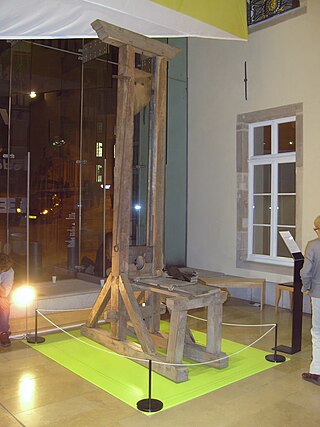
A guillotine is an apparatus designed for efficiently carrying out executions by beheading. The device consists of a tall, upright frame with a weighted and angled blade suspended at the top. The condemned person is secured with stocks at the bottom of the frame, positioning the neck directly below the blade. The blade is then released, swiftly and forcefully decapitating the victim with a single, clean pass so that the head falls into a basket or other receptacle below.

Paris is the capital and most populous city of France, with an estimated population of 2,165,423 residents in 2019 in an area of more than 105 km², making it the 30th most densely populated city in the world in 2020. Since the 17th century, Paris has been one of the world's major centres of finance, diplomacy, commerce, fashion, gastronomy, and science. For its leading role in the arts and sciences, as well as its very early system of street lighting, in the 19th century it became known as "the City of Light". Like London, prior to the Second World War, it was also sometimes called the capital of the world.
Constitution of the province of Cantabria ratified at the Assembly Hall in Bárcena la Puente, Reocín, Spain.

Cantabria is an autonomous community in northern Spain with Santander as its capital city. It is called a comunidad histórica, a historic community, in its current Statute of Autonomy. It is bordered on the east by the Basque autonomous community, on the south by Castile and León, on the west by the Principality of Asturias, and on the north by the Cantabrian Sea.
Second Northern War: Battle of Warsaw begins.

The Second Northern War (1655–60), was fought between Sweden and its adversaries the Polish–Lithuanian Commonwealth (1655–60), the Tsardom of Russia (1656–58), Brandenburg-Prussia (1657–60), the Habsburg monarchy (1657–60) and Denmark–Norway. The Dutch Republic waged an informal trade war against Sweden and seized the colony of New Sweden in 1655, but was not a recognized part of the Polish–Danish alliance.

The Battle of Warsaw took place near Warsaw on July 28–July 30 [O.S. July 18–20] 1656, between the armies of the Polish–Lithuanian Commonwealth and Sweden and Brandenburg. It was a major battle in the Second Northern War between Poland and Sweden in the period 1655–1660, also known as The Deluge. According to Hajo Holborn, it marked "the beginning of Prussian military history".
In the Eighty Years' War, the Spanish capture the strategic Dutch fortress of Schenkenschans.

The Eighty Years' War or Dutch Revolt (c.1566/1568–1648) was an armed conflict in the Habsburg Netherlands between disparate groups of rebels and the Spanish government. The causes of the war included the Reformation, centralisation, taxation, and the rights and privileges of the nobility and cities. After the initial stages, Philip II of Spain, the sovereign of the Netherlands, deployed his armies and regained control over most of the rebel-held territories. However, widespread mutinies in the Spanish army caused a general uprising. Under the leadership of the exiled William the Silent, the Catholic- and Protestant-dominated provinces sought to establish religious peace while jointly opposing the king's regime with the Pacification of Ghent, but the general rebellion failed to sustain itself. Despite Governor of Spanish Netherlands and General for Spain, the Duke of Parma's steady military and diplomatic successes, the Union of Utrecht continued their resistance, proclaiming their independence through the 1581 Act of Abjuration, and establishing the Protestant-dominated Dutch Republic in 1588. In the Ten Years thereafter, the Republic made remarkable conquests in the north and east against a struggling Spanish Empire, and received diplomatic recognition from France and England in 1596. The Dutch colonial empire emerged, which began with Dutch attacks on Portugal's overseas territories.

The siege of Schenkenschans was a major siege of the Eighty Years' War. In a successful campaign the Army of Flanders, commanded by Spanish general Cardinal-Infante Ferdinand of Austria, captured Schenkenschans along with a number of important towns, reversing recent Dutch gains and opening the Dutch Republic to a possible invasion. The Dutch Stadtholder, Fredrick Henry, pushed the republic's military efforts to their limit to recapture the fortress of Schenkenschans to counter the threat to the exposed Dutch heartland. He succeeded in doing so after a costly nine month siege.
La Laguna encomienda, known today as the Laguna province in the Philippines, is founded by the Spaniards as one of the oldest encomiendas (provinces) in the country.

The encomienda was a Spanish labour system that rewarded conquerors with the labour of conquered non-Christian peoples. The labourers, in theory, were provided with benefits by the conquerors for whom they laboured, including military protection and education. The encomienda was first established in Spain following the Christian conquest of Moorish territories, and it was applied on a much larger scale during the Spanish colonization of the Americas and the Spanish Philippines. Conquered peoples were considered vassals of the Spanish monarch. The Crown awarded an encomienda as a grant to a particular individual. In the conquest era of the early sixteenth century, the grants were considered to be a monopoly on the labour of particular groups of indigenous peoples, held in perpetuity by the grant holder, called the encomendero; following the New Laws of 1542, upon the death of the encomendero, the encomienda ended and was replaced by the repartimiento.

Laguna, officially the Province of Laguna, is a province in the Philippines located in the Calabarzon region in Luzon. Its capital is Santa Cruz while its largest city is the City of Calamba and the province is situated southeast of Metro Manila, south of the province of Rizal, west of Quezon, north of Batangas and east of Cavite. Laguna hugs the southern shores of Laguna de Bay, the largest lake in the country. As of the 2020 census, the province's total population is 3,382,193 . It is the seventh richest province in the country.

The Philippines, officially the Republic of the Philippines, is an archipelagic country in Southeast Asia. It is situated in the western Pacific Ocean and consists of around 7,641 islands that are broadly categorized under three main geographical divisions from north to south: Luzon, Visayas, and Mindanao. The Philippines is bounded by the South China Sea to the west, the Philippine Sea to the east, and the Celebes Sea to the southwest. It shares maritime borders with Taiwan to the north, Japan to the northeast, Palau to the east and southeast, Indonesia to the south, Malaysia to the southwest, Vietnam to the west, and China to the northwest. The Philippines covers an area of 300,000 km2 (120,000 sq mi) and, as of 2021, it had a population of around 109 million people, making it the world's thirteenth-most populous country. The Philippines has diverse ethnicities and cultures throughout its islands. Manila is the country's capital, while the largest city is Quezon City; both lie within the urban area of Metro Manila.
Henry VIII of England marries his fifth wife, Catherine Howard, on the same day his former Chancellor, Thomas Cromwell, is executed on charges of treason.

Henry VIII was King of England from 22 April 1509 until his death in 1547. Henry is best known for his six marriages, and for his efforts to have his first marriage annulled. His disagreement with Pope Clement VII about such an annulment led Henry to initiate the English Reformation, separating the Church of England from papal authority. He appointed himself Supreme Head of the Church of England and dissolved convents and monasteries, for which he was excommunicated by the pope. Henry is also known as "the father of the Royal Navy" as he invested heavily in the navy and increased its size from a few to more than 50 ships, and established the Navy Board.

Catherine Howard, also spelled Katheryn Howard, was Queen of England from 1540 until 1542 as the fifth wife of Henry VIII. She was the daughter of Lord Edmund Howard and Joyce Culpeper, a cousin to Anne Boleyn, and the niece of Thomas Howard, 3rd Duke of Norfolk. Thomas Howard was a prominent politician at Henry's court, and he secured her a place in the household of Henry's fourth wife, Anne of Cleves, where she caught the King's interest. She married him on 28 July 1540 at Oatlands Palace in Surrey, just 19 days after the annulment of his marriage to Anne. He was 49, and she was between 15 and 21 years old.
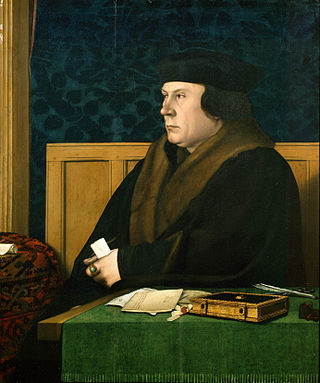
Thomas Cromwell, briefly Earl of Essex, was an English lawyer and statesman who served as chief minister to King Henry VIII from 1534 to 1540, when he was beheaded on orders of the king, who later blamed false charges for the execution.

Treason is the crime of attacking a state authority to which one owes allegiance. This typically includes acts such as participating in a war against one's native country, attempting to overthrow its government, spying on its military, its diplomats, or its secret services for a hostile and foreign power, or attempting to kill its head of state. A person who commits treason is known in law as a traitor.
Troops of the Republic of Pisa and the Republic of Florence clash in the Battle of Cascina.

The Republic of Pisa was an independent state centered on the Tuscan city of Pisa, which existed from the 11th to the 15th century. It rose to become an economic powerhouse, a commercial center whose merchants dominated Mediterranean and Italian trade for a century, before being surpassed and superseded by the Republic of Genoa.

The Republic of Florence, officially the Florentine Republic, was a medieval and early modern state that was centered on the Italian city of Florence in Tuscany. The republic originated in 1115, when the Florentine people rebelled against the Margraviate of Tuscany upon the death of Matilda of Tuscany, who controlled vast territories that included Florence. The Florentines formed a commune in her successors' place. The republic was ruled by a council known as the Signoria of Florence. The signoria was chosen by the gonfaloniere, who was elected every two months by Florentine guild members.

The Battle of Cascina was an engagement between Pisan and Florentine troops on 28 July 1364 near Cascina, modern-day Italy. Florence's victory followed a recent defeat to Pisan forces that had enabled mercenary John Hawkwood, who was in command of the Pisan army, to occupy the Valdinievole, Prato en route to Florence. Hawkwood and his army looted the lucrative Mugello region and Pistoia before proceeding towards Florence. Hawkwood fought alongside Hanneken von Baumgarten and had 3,000 men-at-arms at his disposal.
Crusades: The siege of Damascus ended in a decisive victory for the Muslims, leading to the disintegration of the Second Crusade.
The Crusades were a series of religious wars initiated, supported, and sometimes directed by the Latin Church in the medieval period. The best known of these Crusades are those to the Holy Land in the period between 1095 and 1291 that were intended to recover Jerusalem and its surrounding area from Islamic rule. Beginning with the First Crusade, which resulted in the recovery of Jerusalem in 1099, dozens of Crusades were fought, providing a focal point of European history for centuries.

The siege of Damascus took place between 24 and 28 July 1148, during the Second Crusade. It ended in a crusader defeat and led to the disintegration of the crusade. The two main Christian forces that marched to the Holy Land in response to Pope Eugene III and Bernard of Clairvaux's call for the Second Crusade were led by Louis VII of France and Conrad III of Germany. Both faced disastrous marches across Anatolia in the months that followed, with most of their armies being destroyed. The original focus of the crusade was Edessa (Urfa), but in Jerusalem, the preferred target of King Baldwin III and the Knights Templar was Damascus. At the Council of Acre, magnates from France, Germany, and the Kingdom of Jerusalem decided to divert the crusade to Damascus.
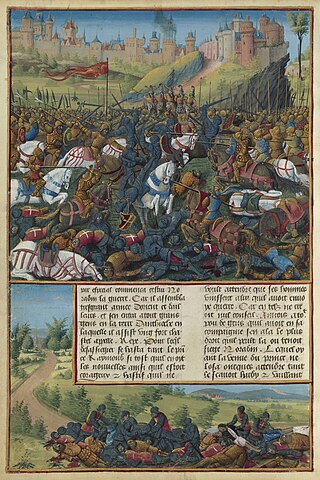
The Second Crusade (1145–1149) was the second major crusade launched from Europe. The Second Crusade was started in response to the fall of the County of Edessa in 1144 to the forces of Zengi. The county had been founded during the First Crusade (1096–1099) by King Baldwin I of Jerusalem in 1098. While it was the first Crusader state to be founded, it was also the first to fall.
Bernard Cribbins, British actor (b. 1928) deaths
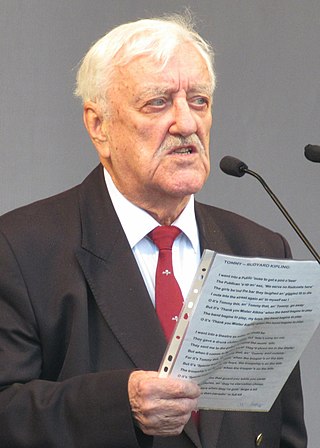
Bernard Joseph Cribbins was an English actor and singer whose career spanned over seven decades.
Dusty Hill, American musician (b. 1949) deaths
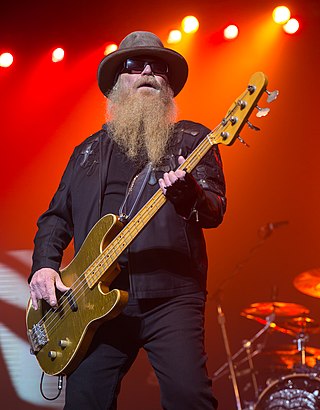
Joe Michael "Dusty" Hill was an American musician who was the bassist of the rock band ZZ Top for more than 50 years. He also sang lead and backing vocals and played keyboards.
Junrey Balawing, Filipino record holder (b. 1993) deaths
Junrey Balawing was a Filipino record holder at the Guinness World Records for the world's shortest man alive measuring at 60.00 centimetres (23.62 in) tall. The declaration came during Balawing's 18th birthday celebration. Guinness World Records official said Balawing broke the record of Khagendra Thapa Magar of Nepal, who was 0.67 m tall.
Wanny van Gils, Dutch footballer (b. 1959) deaths
Wanny van Gils was a Dutch football player and coach.
Émile Derlin Zinsou, Beninese politician (b. 1918) deaths

Émile Derlin Zinsou was a Beninese politician and physician who was the President of Dahomey from 17 July 1968 until 10 December 1969, supported by the military regime that took power in 1967. Zinsou was present at the signing of the treaty that formed the African Union on 12 July 2000 in Togo.
Mahasweta Devi, Indian Bengali fiction writer and socio-political activist (b. 1926) deaths

Mahasweta Devi was an Indian writer in Bengali and an activist. Her notable literary works include Hajar Churashir Maa, Rudali, and Aranyer Adhikar. She was a leftist who worked for the rights and empowerment of the tribal people of West Bengal, Bihar, Madhya Pradesh and Chhattisgarh states of India. She was honoured with various literary awards such as the Sahitya Akademi Award, Jnanpith Award and Ramon Magsaysay Award along with India's civilian awards Padma Shri and Padma Vibhushan.
Jan Kulczyk, Polish businessman (b. 1950) deaths
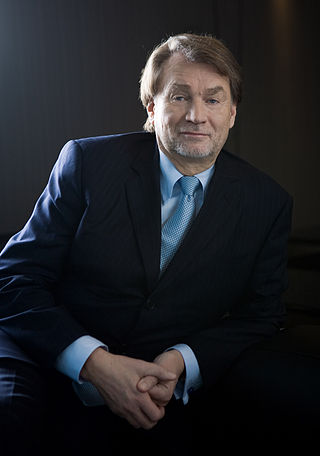
Jan Jerzy Kulczyk was a Polish billionaire businessman. He was the founder and owner of Kulczyk Holding and an international investment house Kulczyk Investments with headquarters in Luxembourg and offices in London and Kyiv. According to Forbes, Kulczyk was the richest Pole at the time of his death.
Edward Natapei, Vanuatuan politician, 6th Prime Minister of Vanuatu (b. 1954) deaths
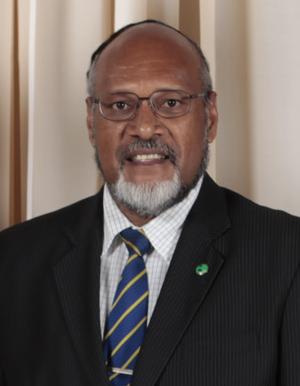
Edward Nipake Natapei Tuta Fanua`araki was a Vanuatuan politician. He was the prime minister of Vanuatu on two occasions, and was previously the minister of Foreign Affairs briefly in 1991, the acting president of Vanuatu from 2 March 1999 to 24 March 1999 and the deputy prime minister. He was the president of the Vanua'aku Pati, a socialist, Anglophone political party.
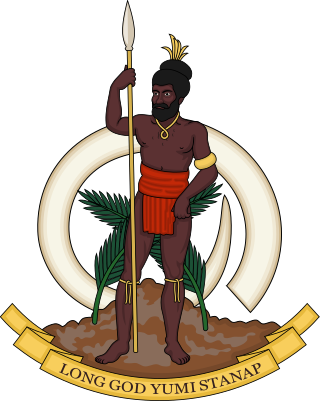
The prime minister of Vanuatu is the head of government of the Republic of Vanuatu.
Clive Rice, South African cricketer and coach (b. 1949) deaths

Clive Edward Butler Rice was a South African international cricketer. An all-rounder, Rice ended his First Class cricket career with a batting average of 40.95 and a bowling average of 22.49. He captained Nottinghamshire County Cricket Club from 1979 to 1987.
Alex Forbes, Scottish footballer and manager (b. 1925) deaths
Alexander Rooney Forbes was a Scottish football player and manager.
Alakbar Mammadov, Azerbaijani footballer and manager (b. 1930) deaths

Alakbar Mammadov was a Soviet and Azerbaijani footballer best known as a striker for FC Dynamo Moscow in the 1950s and later as the first manager of the independent Azerbaijan national football team.
Mustafa Adrisi, Ugandan general and politician, 3rd Vice President of Uganda (b. 1922) deaths
Mustafa Adrisi Abataki was a Ugandan military officer who served as the third vice president of Uganda from 1977 to 1979 and was one of President Idi Amin's closest associates. In 1978, after Adrisi was injured in a suspicious auto accident, troops loyal to him mutinied. Amin sent troops against the mutineers, some of whom had fled across the Tanzanian border, possibly contributing to the Uganda–Tanzania War. As the Ugandan war effort collapsed, Adrisi fled to Sudan where he claimed to retain the post of Vice President. He became briefly involved in the rebel activities of the Uganda National Rescue Front before returning from exile in 1987. He struggled with health problems in his later life and died in 2013.

The vice president of Uganda is the second-highest executive official in the Ugandan government. The vice president is appointed by the president.
Eileen Brennan, American actress and singer (b. 1932) deaths

Eileen Brennan was an American actress. She made her film debut in the satire Divorce American Style (1967), followed by a supporting role in Peter Bogdanovich's The Last Picture Show (1971), which earned her a BAFTA Award nomination for Best Supporting Actress.
Rita Reys, Dutch jazz singer (b. 1924) deaths

Rita Reys was a jazz singer from the Netherlands. She was promoted as "Europe's First Lady of Jazz".
William Scranton, American captain and politician, 13th United States Ambassador to the United Nations (b. 1917) deaths

William Warren Scranton was an American Republican Party politician and diplomat. Scranton served as the 38th Governor of Pennsylvania from 1963 to 1967, and as United States Ambassador to the United Nations from 1976 to 1977. "Many who serve as governor today are still measured against Bill Scranton's leadership - some 50 years later," said former state Republican National Committeewoman Elsie Hillman when she learned of Scranton's death in 2013.

The United States ambassador to the United Nations is the leader of the U.S. delegation, the U.S. Mission to the United Nations. The position is formally known as the permanent representative of the United States of America to the United Nations, with the rank and status of ambassador extraordinary and plenipotentiary, and representative of the United States of America in the United Nations Security Council.
Ersilio Tonini, Italian cardinal (b. 1914) deaths

Ersilio Tonini was an Italian cardinal of the Catholic Church. He served as Archbishop of Ravenna-Cervia from 1975 to 1990, and was elevated to the cardinalate in 1994. When Cardinal Paul Augustin Mayer died on 30 April 2010, Cardinal Tonini became the oldest living cardinal. He died on 28 July 2013, a week after his 99th birthday.
Colin Horsley, New Zealand-English pianist and educator (b. 1920) deaths
Colin Robert Horsley was a New Zealand classical pianist and teacher who was based in the United Kingdom all his working life. He had a significant artistic association with the composer Sir Lennox Berkeley.
Sepp Mayerl, Austrian mountaineer (b. 1937) deaths
Sepp Mayerl, also known as Blasl-Sepp was an Austrian mountaineer.
William F. Milliken Jr., American race car driver and engineer (b. 1911) deaths
William F. Milliken, Jr. was an aerospace engineer, automotive engineer and racecar driver. He was born in Old Town, Maine.
Abdul Fatah Younis, Libyan general (b. 1944) deaths

Abdul Fatah Younis Al-Obeidi was a senior military officer in Libya. He held the rank of major general and the post of minister of interior, but resigned on 22 February 2011 to defect to the rebel side in what was to become the First Libyan Civil War. He was considered a key supporter of Muammar Gaddafi or even No. 2 in the Libyan government.
Jim Johnson, American football player and coach (b. 1941) deaths
Jim Johnson was an American football coach, formerly serving as defensive coordinator with the Philadelphia Eagles. Widely regarded as one of the best defensive coordinators in the National Football League (NFL), he was especially known for being a master architect of blitzes, disguising them skillfully and keeping offenses off balance.
Karl Gotch, Belgian-American wrestler and trainer (b. 1924) deaths

Charles Istaz was a Belgian-born German-American professional wrestler and trainer, best known by his ring name Karl Gotch. In Japan, Gotch was known as the "God of Wrestling" due to his influence in shaping the Japanese professional wrestling style. He was no relation to earlier wrestler Frank Gotch.
Jim LeRoy, American soldier and pilot (b. 1961) deaths

Jim LeRoy was an American aerobatics pilot. He died upon impact in a crash at the Dayton Air Show in Ohio.
David Gemmell, English author (b. 1948) deaths
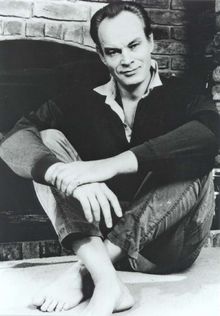
David Andrew Gemmell was a British author of heroic fantasy, best known for his debut novel, Legend. A former journalist and newspaper editor, Gemmell had his first work of fiction published in 1984. He went on to write over thirty novels. Gemmell's works display violence, yet also explore themes of honour, loyalty and redemption. There is always a strong heroic theme but nearly always the heroes are flawed in some way. With over one million copies sold, his work continues to sell worldwide.
Francis Crick, English biologist and biophysicist, Nobel Prize laureate (b. 1916) deaths

Francis Harry Compton Crick was an English molecular biologist, biophysicist, and neuroscientist. He, James Watson, Rosalind Franklin, and Maurice Wilkins played crucial roles in deciphering the helical structure of the DNA molecule. Crick and Watson's paper in Nature in 1953 laid the groundwork for understanding DNA structure and functions. Together with Maurice Wilkins, they were jointly awarded the 1962 Nobel Prize in Physiology or Medicine "for their discoveries concerning the molecular structure of nucleic acids and its significance for information transfer in living material".

The Nobel Prize in Physiology or Medicine is awarded yearly by the Nobel Assembly at the Karolinska Institute for outstanding discoveries in physiology or medicine. The Nobel Prize is not a single prize, but five separate prizes that, according to Alfred Nobel's 1895 will, are awarded "to those who, during the preceding year, have conferred the greatest benefit to humankind". Nobel Prizes are awarded in the fields of Physics, Chemistry, Physiology or Medicine, Literature, and Peace.
Tiziano Terzani, Italian journalist and author (b. 1938) deaths
Tiziano Terzani was an Italian journalist and writer, best known for his extensive knowledge of 20th century East Asia and for being one of the very few western reporters to witness both the fall of Saigon to the hands of the Viet Cong and the fall of Phnom Penh at the hands of the Khmer Rouge in the mid-1970s.
Valerie Goulding, Irish activist and politician (b. 1918) deaths
Valerie Hamilton, Hon. Lady Goulding was an Irish campaigner for disabled people, and senator who set up the Central Remedial Clinic in 1951 alongside Kathleen O'Rourke which is now the largest organisation in Ireland looking after people with physical disabilities. She served as a member of Seanad Éireann from 1977 to 1981.
Archer John Porter Martin, English chemist and academic, Nobel Prize laureate (b. 1910) deaths
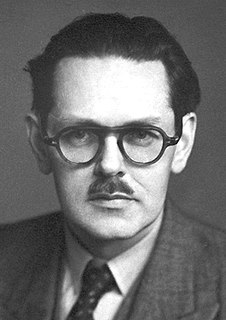
Archer John Porter Martin was a British chemist who shared the 1952 Nobel Prize in Chemistry for the invention of partition chromatography with Richard Synge.

The Nobel Prize in Chemistry is awarded annually by the Royal Swedish Academy of Sciences to scientists in the various fields of chemistry. It is one of the five Nobel Prizes established by the will of Alfred Nobel in 1895, awarded for outstanding contributions in chemistry, physics, literature, peace, and physiology or medicine. This award is administered by the Nobel Foundation, and awarded by the Royal Swedish Academy of Sciences on proposal of the Nobel Committee for Chemistry which consists of five members elected by the Academy. The award is presented in Stockholm at an annual ceremony on 10 December, the anniversary of Nobel's death.
Ahmed Sofa, Bangladeshi poet, author, and critic (b. 1943) deaths

Ahmed Sofa was a Bangladeshi writer, thinker, novelist, poet, philosopher and public intellectual. Sofa is considered by many, including National Professor Abdur Razzaq and Salimullah Khan, to be the most important Bengali writer after Mir Mosharraf Hossain and Kazi Nazrul Islam. A writer by occupation, Sofa wrote 18 non-fiction books, 8 novels, 4 collections of poems, 2 collections of short stories, and several books in other genres.
Emile Smith Rowe, English footballer births
Emile Smith Rowe is an English professional footballer who plays as an attacking midfielder or winger for Premier League club Arsenal and the England national team.
Abraham Pais, Dutch-American physicist and historian (b. 1918) deaths

Abraham Pais was a Dutch-American physicist and science historian. Pais earned his Ph.D. from University of Utrecht just prior to a Nazi ban on Jewish participation in Dutch universities during World War II. When the Nazis began the forced relocation of Dutch Jews, he went into hiding, but was later arrested and saved only by the end of the war. He then served as an assistant to Niels Bohr in Denmark and was later a colleague of Albert Einstein at the Institute for Advanced Study in Princeton, New Jersey. Pais wrote books documenting the lives of these two great physicists and the contributions they and others made to modern physics. He was a physics professor at Rockefeller University until his retirement.
Trygve Haavelmo, Norwegian economist and mathematician, Nobel Prize laureate (b. 1911) deaths
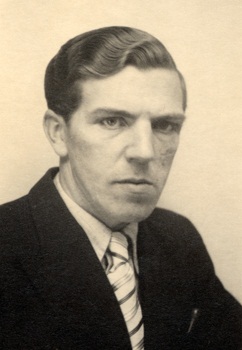
Trygve Magnus Haavelmo, born in Skedsmo, Norway, was an economist whose research interests centered on econometrics. He received the Nobel Memorial Prize in Economic Sciences in 1989.

The Nobel Memorial Prize in Economic Sciences, officially the Sveriges Riksbank Prize in Economic Sciences in Memory of Alfred Nobel, is an economics award administered by the Nobel Foundation.
Zbigniew Herbert, Polish poet and author (b. 1924) deaths

Zbigniew Herbert was a Polish poet, essayist, drama writer and moralist. He is one of the best known and the most translated post-war Polish writers. While he was first published in the 1950s, soon after he voluntarily ceased submitting most of his works to official Polish government publications. He resumed publication in the 1980s, initially in the underground press. Since the 1960s, he was nominated several times for the Nobel Prize in literature. His books have been translated into 38 languages.
Lenny McLean, English boxer, actor, and author (b. 1949) deaths
Leonard John McLean was an English unlicensed boxer, bouncer, bodyguard, businessman and actor. He was known as "The Guv'nor", "the King of the Cobbles" and "the hardest man in Britain".
Consalvo Sanesi, Italian race car driver (b. 1911) deaths

Consalvo Sanesi was best known as the Alfa Romeo works' test driver in the period following World War II, but he also competed in races with the Alfa Romeo Tipo 158/159 cars in the period before the Formula One World Championship came into being. He competed in five Formula One World Championship Grands Prix, debuting on 3 September 1950. Although, on his day, his experience with the cars meant that he was often one of the fastest men on the racetrack, somehow this rarely translated into good results. He scored only 3 championship points. He found some success driving in sports car racing, continuing into the mid-1960s.
Rosalie Crutchley, English actress (b. 1920) deaths

Rosalie Sylvia Crutchley was a British actress. Trained at the Royal Academy of Music, Crutchley was perhaps best known for her television performances, but had a long and successful career in theatre and films, making her stage debut as early as 1932, and her screen debut in 1947.
Seni Pramoj, Thai lawyer and politician, 6th Prime Minister of Thailand (b. 1905) deaths

Mom Rajawongse Seni Pramoj was three times the Prime Minister of Thailand, a politician in the Democrat Party, lawyer, diplomat and professor. A descendant of the Thai royal family, he was the great-grandson of King Rama II. His final two terms as PM sandwiched the only term of his brother, Kukrit Pramoj.
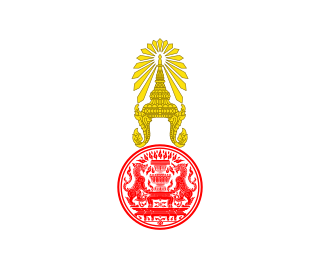
The prime minister of Thailand is the head of government of Thailand. The prime minister is also the chair of the Cabinet of Thailand. The post has existed since the Revolution of 1932, when the country became a constitutional monarchy. Prior to the coup d'état, the prime minister was nominated by a vote in the Thai House of Representatives by a simple majority, and is then appointed and sworn-in by the king of Thailand. The house's selection is usually based on the fact that either the prime minister is the leader of the largest political party in the lower house or the leader of the largest coalition of parties. In accordance with the 2017 Constitution, the Prime Minister can hold the office for no longer than eight years, consecutively or not. The post of Prime Minister is currently held by retired general Prayut Chan-o-cha, since the 2014 coup d'état.
Harriet Dart, British tennis player births

Harriet Dart is a British professional tennis player.
Roger Tory Peterson, American ornithologist and academic (b. 1908) deaths
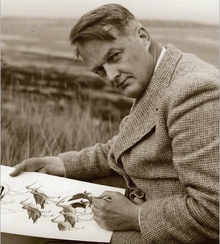
Roger Tory Peterson was an American naturalist, ornithologist, illustrator and educator, and one of the founding inspirations for the 20th-century environmental movement.
Harry Kane, English footballer births

Harry Edward Kane is an English professional footballer who plays as a striker for Premier League club Tottenham Hotspur and captains the England national team. A prolific goalscorer with strong link play, Kane is regarded as one of the best strikers in the world and is Tottenham's second-highest all-time top goalscorer, England's second-highest all-time top goalscorer, and the third-highest Premier League all-time top goalscorer.
Cher Lloyd, English singer births

Cher Lloyd is an English singer. She finished fourth place in the seventh series of The X Factor in 2010. Following the seventh series finale, Lloyd was signed to Syco Music. Her debut single, "Swagger Jagger", was released in July 2011 and entered at number one on the UK Singles Chart. Lloyd's second single, "With Ur Love", was released in October 2011, and peaked at number four on the UK Singles Chart. Her debut studio album, Sticks and Stones, had two releases: its standard edition and a US version. The album peaked at number four on the UK Albums Chart, while the latter version debuted at number nine in the US Billboard 200.
Stanley Woods, Irish motorcycle racer (b. 1903) deaths
Stanley Woods was an Irish motorcycle racer famous for 29 motorcycle Grand Prix wins in the 1920s and 1930s, winning the Isle of Man TT races ten times in his career, plus wins at Assen and elsewhere. He was also a skilled trials rider, competing in the 1940s.
Spencer Boldman, American actor births

Spencer Boldman is an American actor. He is known for his role as Adam Davenport on Disney XD's Lab Rats, and for playing Gio in the film Cruise.
Sulev Nõmmik, Estonian actor and director (b. 1931) deaths
Sulev Nõmmik was an Estonian theatre and movie director, actor, humorist and comedian. He's mostly associated with the comical character of Kärna Ärni and the related fictional village of Uduvere, but he was also influential in writing scripts for several well-known movies, including Mehed ei nuta, Siin me oleme! and Noor pensionär.
Soulja Boy, American rapper, producer, and actor births

DeAndre Cortez Way, known professionally as Soulja Boy, is an American rapper and record producer. He rose to prominence, after his self published debut single "Crank That " peaked at number 1 on the U.S. Billboard Hot 100, for seven non-consecutive weeks in 2007. He then released his debut album Souljaboytellem.com (2007), which also included the single "Soulja Girl".
Simone Pizzuti, Italian footballer births
Simone Pizzuti is an Italian footballer who plays for Lega Pro Seconda Divisione club Lecco.
Jill Esmond, English actress (b. 1908) deaths

Jill Esmond was an English stage and screen actress. She was the first wife of Laurence Olivier.
Yevhen Khacheridi, Ukrainian-Greek footballer births

Yevhen Hryhorovych Khacheridi is a Ukrainian footballer.
Pedro, Spanish footballer births

Pedro Eliezer Rodríguez Ledesma, known as Pedro, is a Spanish professional footballer who plays as a forward or winger for Serie A club Lazio. He is known for his pace, dribbling and ability to convert from counter chances.
Jack Renshaw, Australian politician, 31st Premier of New South Wales (b. 1909) deaths

John Brophy Renshaw AC was an Australian politician. He was Labor Premier of New South Wales from 30 April 1964 to 13 May 1965. He was the first New South Wales Premier born in the 20th century.

The premier of New South Wales is the head of government in the state of New South Wales, Australia. The Government of New South Wales follows the Westminster Parliamentary System, with a Parliament of New South Wales acting as the legislature. The premier is appointed by the governor of New South Wales, and by modern convention holds office by his or her ability to command the support of a majority of members of the lower house of Parliament, the Legislative Assembly.
Alexandra Chando, American actress births
Alexandra Chando is an American actress. She is known for her role as Maddie Coleman in the CBS soap opera, As the World Turns and for her dual role as identical twins, Emma Becker and Sutton Mercer in the ABC Family drama series, The Lying Game.
Lauri Korpikoski, Finnish ice hockey player births

Lauri Korpikoski is a Finnish professional ice hockey left winger who is currently playing for HC TPS of the Liiga. Korpikoski has previously played in the NHL for the Arizona Coyotes, Edmonton Oilers, Dallas Stars, Columbus Blue Jackets and the New York Rangers, the organization that drafted him in the first round, 19th overall, at the 2004 NHL Entry Draft.
Mathieu Debuchy, French footballer births

Mathieu Debuchy is a French professional footballer who plays as a right-back for Ligue 2 club Valenciennes.
Dustin Milligan, Canadian actor, producer, and screenwriter births

Dustin Wallace Milligan is a Canadian actor, known for his role as Ethan Ward on the teen drama television series 90210 from 2008 until 2009, Tom Cummings in the Canadian spy thriller television series X Company from 2015 until 2016, Ted Mullens on the Canadian television comedy series Schitt's Creek from 2015 until 2020, and Josh Carter on American television comedy series Rutherford Falls from 2021 until 2022. He has also appeared in a number of films.
Zach Parise, American ice hockey player births

Zachary Justin Parise is an American professional ice hockey left winger for the New York Islanders of the National Hockey League (NHL). He has previously played for the New Jersey Devils and Minnesota Wild. Parise captained the Devils to the 2012 Stanley Cup Finals, where they lost to the Los Angeles Kings in six games.
Sam Dastyari, Iranian-Australian politician births

Sam Dastyari is a former Australian politician, who from 2013 to 2018 represented New South Wales in the Australian Senate as a member of the Australian Labor Party. Dastyari was previously General Secretary of the New South Wales branch of the Labor Party. He was the first person of Iranian origin to sit in the Australian Parliament. As a Senator, Dastyari was the subject of a Chinese-related donations scandal, which eventually led to his resignation from the Senate on 25 January 2018.
Ilir Latifi, Swedish-Kosovar mixed martial artist births

Ilir Latifi is a Swedish mixed martial artist who previously fought in the Heavyweight division of the UFC. A two-time national wrestling champion and a professional MMA competitor since 2008, Latifi has also competed in Shark Fights, Rumble of The Kings, and GLORY.
Cody Hay, Canadian figure skater births
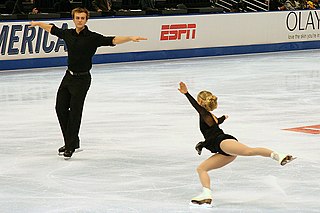
Cody Hay is a Canadian retired pair skater. With Anabelle Langlois, he is the 2008 Canadian national champion. He is now a coach with Langlois.
Keith Green, American singer-songwriter and pianist (b. 1953) deaths
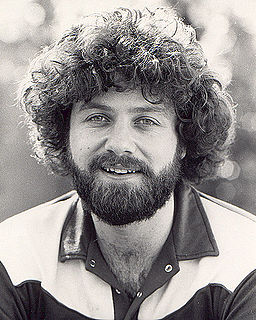
Keith Gordon Green was an American pianist, singer, and songwriter in the contemporary Christian music genre, who was originally from Sheepshead Bay, Brooklyn, New York. His most notable songs are "There Is a Redeemer", which was written by his wife Melody, and "(Until) Your Love Broke Through".
Michael Carrick, English footballer births

Michael Carrick is an English professional football manager and former player who is currently head coach of Middlesbrough. He is one of the most decorated English footballers of all time and is best known for his 12-year playing career with Manchester United, whom he also captained. Carrick was a central midfielder, but he was used as an emergency centre-back under Alex Ferguson, David Moyes, Louis van Gaal and José Mourinho. His playing style was grounded in his passing ability.
Stanley Rother, American priest and missionary (b. 1935) deaths

Stanley Francis Rother was an American Roman Catholic priest from Oklahoma who was murdered in Guatemala. Ordained a priest for the Archdiocese of Oklahoma City in 1963, he held several parish assignments there until 1968 when he was assigned as a missionary priest to Guatemala, where he was murdered in 1981 inside his mission rectory.
Rose Rand, Austrian-born American logician and philosopher (b. 1903) deaths

Rose Rand was an Austrian-American logician and philosopher. She was a member of the Vienna Circle.
Henrik Hansen, Danish footballer births
Henrik Hallenberg Hansen is a Danish former professional football midfielder. He was most recently the manager of Danish Superliga club SønderjyskE.
Birgitta Haukdal, Icelandic singer-songwriter and producer births

Birgitta Haukdal Brynjarsdóttir, also known by her mononym Birgitta, is an Icelandic singer. She rose to domestic media prominence as the lead singer of pop band Írafár. She represented Iceland in the Eurovision Song Contest 2003 with the song "Open Your Heart", tying in eighth place with the Spanish contestant Beth with 81 points.
Lee Min-woo, South Korean singer-songwriter and dancer births

Lee Min-woo, also known mononymously credited as M as a solo artist, is a South Korean entertainer, known as a member of the South Korean boy band Shinhwa. Lee was the first Shinhwa member to debut as a solo artist in 2003, and has since released three studio albums.
Alena Popchanka, Belarusian-French swimmer and coach births
Alena Popchanka is a 4-time Olympic freestyle and butterfly swimmer originally from Belarus. She swam for Belarus at the 1996, 2000 and 2004 Olympics. At the 2008 Olympics she swam for France; after her marriage to Frenchman Frédéric Vergnoux in early 2005.
Don Miller, American football player and coach (b. 1902) deaths

Don "Midnight" Miller was an American football player and coach. He was one of the famous "Four Horsemen" of the University of Notre Dame's backfield in 1924, when the Fighting Irish won the 1924 National Title. Miller was inducted into the College Football Hall of Fame as a player in 1970.
Charles Shadwell, English conductor and bandleader (b. 1898) deaths

Charles Murray Winstanley Shadwell was a British conductor and bandleader.
Kārlis Vērdiņš, Latvian poet births

Kārlis Vērdiņš is a Latvian poet.
Hitomi Yaida, Japanese singer-songwriter and guitarist births
Hitomi Yaida 矢井田瞳 is a Japanese pop/folk rock singer-songwriter and guitarist. She often goes by the nickname Yaiko. Her musical style is often called "heart rock" by her fans. Yaida is an established musical artist in Japan and has also had minor club hits in the United Kingdom.
Aki Berg, Finnish-Canadian ice hockey player births

Aki-Petteri Arvid Berg is a Finnish former professional ice hockey defenceman. He was drafted third overall by the Los Angeles Kings in the 1995 NHL Entry Draft. He played both for the Kings and the Toronto Maple Leafs over nine seasons and has represented Team Finland twice at the Winter Olympics, winning a bronze medal at the 1998 Nagano Olympics, a silver medal at the 2004 World Cup of Hockey in which Finland lost in the finals to host Canada, and a silver medal at the 2006 Torino Olympics.
Manu Ginóbili, Argentinian basketball player births

Emanuel David Ginóbili Maccari is an Argentine former professional basketball player. Over a 23-year professional career, he became one of only two players to have won a EuroLeague title, an NBA championship, and an Olympic gold medal. A four-time NBA champion, Ginóbili was a member of the San Antonio Spurs for his entire 16-year NBA career. Along with Spurs teammates Tim Duncan and Tony Parker, he was known as one of the "Big Three". He is often credited for popularizing the Euro step in the NBA. Since September 2021, Ginóbili had been appointed as special advisor to Basketball Operations for the San Antonio Spurs.
Miyabiyama Tetsushi, Japanese sumo wrestler births

Miyabiyama Tetsushi is a former sumo wrestler from Mito, Ibaraki, Japan. A former amateur champion, he turned professional in 1998. With the exception of two tournaments, he was ranked in the top division of professional sumo from 1999 until the end of his career in 2013, holding the second highest rank of ōzeki from 2000 to 2001. He won eight special prizes and was runner-up in four top division tournaments. He wrestled for Fujishima stable, where he worked as a coach until opening his own Futagoyama stable.
Jacoby Shaddix, American singer-songwriter births

Jacoby Dakota Shaddix is an American singer, songwriter, rapper, TV presenter and actor. He is best known as the founding member and the continuous lead singer of the California-based rock band Papa Roach since the band's formation in 1993.
Maggie Gripenberg, Finnish dancer and choreographer (b. 1881) deaths

Margarita Maria “Maggie” Gripenberg was a pioneer of modern dance in Finland. She was the first to introduce Dalcroze Eurhythmics to Finland and modeled her early works on the improvisational style of Isadora Duncan. As a dancer, choreographer and teacher, she laid the educational foundations for the study of movement and dance. She was recognized by numerous awards for her choreographic work as well as being honored with the Pro Finlandia Medal and as a knight of the Order of the White Rose of Finland.
Leonor Watling, Spanish actress births

Leonor Elizabeth Ceballos Watling is a Spanish film actress and singer.
Alexis Tsipras, Greek engineer and politician, 186th Prime Minister of Greece births

Alexis Tsipras is a Greek politician serving as Leader of the Official Opposition since 2019. He served as Prime Minister of Greece from 2015 to 2019.
This is a list of the heads of government of the modern Greek state, from its establishment during the Greek Revolution to the present day. Although various official and semi-official appellations were used during the early decades of independent statehood, the title of prime minister has been the formal designation of the office at least since 1843. On dates, Greece officially adopted the Gregorian calendar on 16 February 1923. All dates prior to that, unless specifically denoted, are Old Style.
Elizabeth Berkley, American actress births

Elizabeth Berkley is an American actress. She played Jessie Spano in the television series Saved by the Bell and Nomi Malone/Polly Ann Costello in the 1995 Paul Verhoeven film Showgirls. She voiced the title role of the anime film Armitage III: Poly-Matrix and had supporting roles in the films The First Wives Club and Roger Dodger. In theater, she received critical acclaim for her performance in Hurlyburly.
Marc Dupré, Canadian singer-songwriter and guitarist births

Marc Dupré is a Canadian singer, songwriter and musician from Quebec.
Steve Staios, Canadian ice hockey player births

Steve Staios is a Canadian former professional ice hockey player who has played both right wing and defence in the National Hockey League (NHL). Staios played with the Boston Bruins, Vancouver Canucks, Atlanta Thrashers, Edmonton Oilers, Calgary Flames, and New York Islanders during his career. He currently serves as president for the Hamilton Bulldogs.
Robert Chapman, English cricketer births
Robert James Chapman is an English cricketer who played first-class cricket for Nottinghamshire and Worcestershire between 1992 and 1998, and List A cricket for Lincolnshire in the early 21st century. He is the son of footballer Bob Chapman, who was often known as 'Sammy'.
Helen Traubel, American soprano and actress (b. 1903) deaths

Helen Francesca Traubel was an American opera and concert singer. A dramatic soprano, she was best known for her Wagnerian roles, especially those of Brünnhilde and Isolde.
Abu Bakr al-Baghdadi, Iraqi leader of the Islamic State of Iraq and the Levant (d. 2019) births
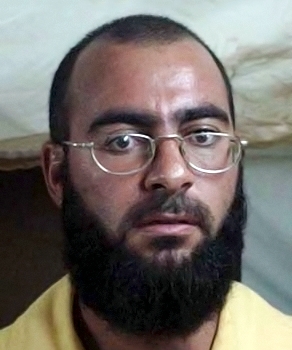
Abu Bakr al-Baghdadi, was an Iraqi militant and the first caliph of the Islamic State from 2014 until his death in 2019.

The Islamic State (IS), also known as the Islamic State of Iraq and the Levant, Islamic State of Iraq and Syria, and by its Arabic acronym Daesh, is a militant Islamist group and former unrecognized quasi-state that follows the Salafi jihadist branch of Sunni Islam. It was founded by Abu Musab al-Zarqawi in 1999 and gained global prominence in 2014, when it drove Iraqi security forces out of key cities during the Anbar campaign, which was followed by its capture of Mosul and the Sinjar massacre.
Ludmilla Lacueva Canut, Andorran writer births

Ludmilla Lacueva Canut is an Andorran writer of both fiction and non-fiction works, as well as an opinion columnist for the newspaper Bondia.
Stephen Lynch, American singer-songwriter and actor births

Stephen Andrew Lynch is an American comedian, musician and actor who is known for his songs mocking daily life and popular culture. Lynch has released four studio albums and four live albums along with a live DVD. He has appeared in two Comedy Central Presents specials and starred in the Broadway adaptation of The Wedding Singer. Lynch released a double-disc album, Lion, on November 13, 2012. In 2016, he released a live concert video, Hello Kalamazoo. He released his studio/live album My Old Heart in 2019.
Annie Perreault, Canadian speed skater births
Annie Perreault is a Canadian short track speed skater, who won medals in the 500 m and 3000 m relay at the 1998 Winter Olympics. She had already won a relay gold medal at the 1992 Winter Olympics.
Lawrence Moore Cosgrave, Canadian colonel and diplomat (b. 1890) deaths

Colonel Lawrence Vincent Moore Cosgrave, was a Canadian soldier and diplomat. He was the Canadian signatory to the Japanese Instrument of Surrender at the end of World War II.
Myril Hoag, American baseball player (b. 1908) deaths

Myril Oliver Hoag was an American professional baseball player. An outfielder, Hoag played in Major League Baseball (MLB) for the New York Yankees, St. Louis Browns, Chicago White Sox, and Cleveland Indians between 1931 and 1945 and was on the winning team in three World Series. He appeared in the 1939 MLB All-Star Game.
Charles E. Pont, French-American minister and painter (b. 1898) deaths
Charles Ernest Pont was a French-born Swiss-American artist and Baptist minister. Although his ministerial career was not particularly noteworthy, he was a prolific artist in many media including watercolor, printmaking, oil, pen and ink, and pencil. His framed art not only hangs in hundreds of private and public collections, but can also be found in many realms of graphic design, including book and magazine illustration, greeting cards, sign painting and calligraphy, murals, typographic design, and decorative papers. While his style evolved with the times in which he lived, and was particularly influenced by modernism in the 1930s, he is best known for the fine precision of his prints and the realism of his watercolors.
Michael Amott, Swedish guitarist and songwriter births

Michael Amott is a Swedish guitarist, founding member of the metal bands Arch Enemy, Spiritual Beggars and Carnage, as well as a former member of Carcass. He is the older brother of Christopher Amott.
Isabelle Brasseur, Canadian figure skater births
Isabelle Brasseur, is a Canadian former competitive pair skater. With her partner, Lloyd Eisler, she won two Olympic medals and the 1993 World Championships.
Paul Strang, Zimbabwean cricketer and coach births
Paul Andrew Strang is a Zimbabwean cricket coach and former international player. A leg-spinning all-rounder, he played in 24 Test matches and 95 One Day Internationals for Zimbabwe between 1994 and 2001. He played Test cricket alongside his brother, Bryan Strang; their father, Ronald Strang, was a first-class umpire and was TV umpire for two of Zimbabwe's Test matches in 1994/5.
Garth Snow, American ice hockey player and manager births
Garth E. Snow is an American former professional ice hockey goaltender and former general manager, president and alternate governor of the New York Islanders of the National Hockey League (NHL).
Alexis Arquette, American actress (d. 2016) births

Alexis Arquette was an American actress.
Ramón Grau, Cuban physician and politician, 6th President of Cuba (b. 1882) deaths

Ramón Grau San Martín was a Cuban physician who served as President of Cuba from 1933 to 1934 and from 1944 to 1948. He was the last president other than an interim president, Carlos Manuel Piedra, born during Spanish rule. He is sometimes called Raymond Grau San Martin in English.
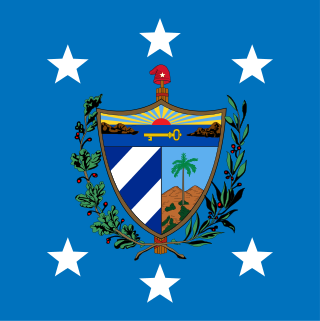
The president of Cuba, officially the president of the Republic of Cuba, is the head of state of Cuba. The office in its current form was established under the Constitution of 2019. The President is the second-highest office in Cuba and the highest state office. Miguel Díaz-Canel became President of the Council of State on 19 April 2018, taking over from Raúl Castro, and has been President of Cuba since 10 October 2019.
Frank Loesser, American composer (b. 1910) deaths

Frank Henry Loesser was an American songwriter who wrote the music and lyrics for the Broadway musicals Guys and Dolls and How to Succeed in Business Without Really Trying, among others. He won a Tony Award for Guys and Dolls and shared the Pulitzer Prize for Drama for How to Succeed. He also wrote songs for over 60 Hollywood films and Tin Pan Alley, many of which have become standards, and was nominated for five Academy Awards for best song, winning once for Baby, It's Cold Outside.
Otto Hahn, German chemist and academic, Nobel Prize laureate (b. 1879) deaths

Otto Hahn was a German chemist who was a pioneer in the fields of radioactivity and radiochemistry. He is referred to as the father of nuclear chemistry and father of nuclear fission. Hahn and Lise Meitner discovered radioactive isotopes of radium, thorium, protactinium and uranium. He also discovered the phenomena of atomic recoil and nuclear isomerism, and pioneered rubidium–strontium dating. In 1938, Hahn, Lise Meitner and Fritz Strassmann discovered nuclear fission, for which Hahn received the 1944 Nobel Prize for Chemistry. Nuclear fission was the basis for nuclear reactors and nuclear weapons.

The Nobel Prize in Chemistry is awarded annually by the Royal Swedish Academy of Sciences to scientists in the various fields of chemistry. It is one of the five Nobel Prizes established by the will of Alfred Nobel in 1895, awarded for outstanding contributions in chemistry, physics, literature, peace, and physiology or medicine. This award is administered by the Nobel Foundation, and awarded by the Royal Swedish Academy of Sciences on proposal of the Nobel Committee for Chemistry which consists of five members elected by the Academy. The award is presented in Stockholm at an annual ceremony on 10 December, the anniversary of Nobel's death.
Taka Hirose, Japanese bass player births

Takashi "Taka" Hirose is a Japanese musician and chef who is the current bass guitarist for the rock band Feeder.
Karl W. Richter, American lieutenant and pilot (b. 1942) deaths
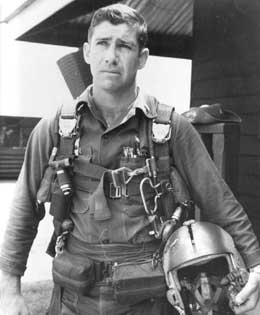
Karl Wendell Richter was an officer in the United States Air Force and an accomplished fighter pilot during the Vietnam War. At the age of 23 he was the youngest pilot in that conflict to shoot down a MiG in air-to-air combat.
Sossina M. Haile, Ethiopian American chemist births
Sossina M. Haile is an American chemist, known for developing the first solid acid fuel cells. She is a professor of Materials Science and Engineering at Northwestern University, Illinois, USA.
Miguel Ángel Nadal, Spanish footballer births

Miguel Ángel Nadal Homar is a Spanish retired footballer who played as a versatile defender and midfielder.
Jimmy Pardo, American stand-up comedian, actor, and host births

James Ronald Pardo, Jr. is an American stand-up comedian, actor, and host of the long-running comedy podcast Never Not Funny. From the show's inception until mid-2015, he performed as the Conan O'Brien program Conan's warm-up comedian and cast member, after which he received a general development deal with O'Brien's production company. He last hosted the game show Race to Escape on the Science Channel.
Shikao Suga, Japanese singer-songwriter and guitarist births
Shikao Suga is a Japanese musician and singer-songwriter from Tokyo known for writing the theme songs for several anime, movies and commercial ads. His name in kanji is 菅 止戈男. He uses katakana as his professional name.
Priscilla Chan, Hong Kong singer births

Priscilla Chan Wai-han is a Hong Kong-based veteran pop singer who focuses on the genre of Cantopop. She is renowned for her contralto singing voice, and her maturely clear, technically skilled and emotion-rich vocals.
Edogawa Ranpo, Japanese author and critic (b. 1894) deaths
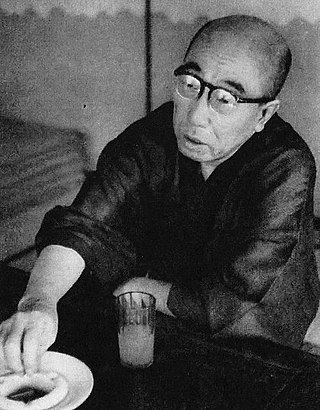
Tarō Hirai , better known by the pen name Edogawa Ranpo was a Japanese author and critic who played a major role in the development of Japanese mystery and thriller fiction. Many of his novels involve the detective hero Kogoro Akechi, who in later books was the leader of a group of boy detectives known as the "Boy Detectives Club" .
Attallah Suheimat, Jordanian politician (b. 1875) deaths
Sheikh Attallah Suheimat or Attlallah Pasha Suheimat was an Arab and Jordanian leader, politician, and a statesperson. Born in the historic city of Al Karak, south of Jordan. He was the son of Sheikh Sulieman effendi Suheimat who was a national leader and a Member of the first municipal council of the city of Karak during the reign of the Ottoman Empire in the 1890s. Sheikh Attallah Suheimat was the head of the Ghassanids tribes in Jordan, and a famous leader during different time periods in the region: Ottoman Syria, Transjordan, and later the Hashemite Kingdom of Jordan. He held several senior positions including the President of the Al-Haqqania Court in the Ottoman Empire and President of the Court of First Instance in The "National Government of Moab". He participated in the development of the National Charter in 1928, and in 1929 was a member of the first Legislative Council in the Emirate of Transjordan representing Al Karak and Ma'an. Sheikh Suheimat was the Director of the General Intelligence in the government of King Faisal I of Syria.
Lori Loughlin, American actress births

Lori Anne Loughlin is an American actress. From 1988 to 1995, she played Rebecca Donaldson Katsopolis on the ABC sitcom Full House, and reprised the role for its Netflix sequel Fuller House (2016–2018). Loughlin is also known for her roles of Jody Travis in The Edge of Night (1980–1983), Debbie Wilson in The CW series 90210 (2008–2012), Jennifer Shannon in the Garage Sale Mystery television film series (2013–2018), and Abigail Stanton in When Calls the Heart (2014–2019). She was a co-creator, producer, and star of the two seasons of The WB series Summerland (2004–2005).
Rachel Sweet, American singer, television writer, and actress births
Rachel Sweet is an American singer, television writer and actress.
Yannick Dalmas, French race car driver births

Yannick Dalmas is a former racing driver from France. He won the 24 Hours of Le Mans four times, each with different teams. Prior to this, he participated in 49 Formula One Grands Prix, debuting on 18 October 1987, but qualified for only 24 of them. His best result in F1 was a 5th place at the 1987 Australian Grand Prix, but he was not eligible for World Championship points at that race. His F1 career was blighted by his health issues, towards the end of 1988, Dalmas was diagnosed with Legionellosis which caused him to miss the final two races. He recovered before the start of 1989 but his illness had clearly affected him.
Luiz Fernando Carvalho, Brazilian director, producer, and screenwriter births
Luiz Fernando Carvalho is a Brazilian filmmaker and television director, known for works closely linked to literature that constitute a renovation in Brazilian audiovisual aesthetics. He has already brought to the screen works by Ariano Suassuna, Raduan Nassar, Machado de Assis, Eça de Queirós, Roland Barthes, Clarice Lispector, Milton Hatoum, José Lins do Rego and Graciliano Ramos, among others.
Jon J. Muth, American author and illustrator births
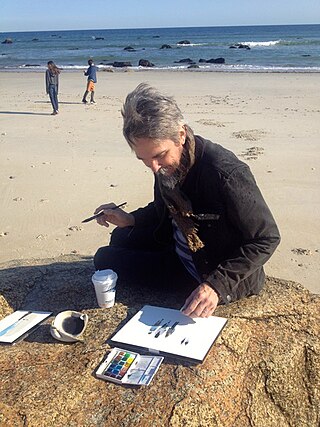
Jon J Muth is an American writer and illustrator of children's books as well as graphic novels and comic books.
Yōichi Takahashi, Japanese illustrator births

Yōichi Takahashi is a Japanese cartoonist and manga artist, best known for his work Captain Tsubasa. Takahashi has published art books, manga, novels, and guides, most of which are about Captain Tsubasa. He is also known for his soccer series, Hungry Heart: Wild Striker.
William T. Vollmann, American novelist, short story writer and journalist births
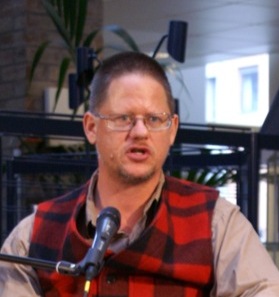
William Tanner Vollmann is an American novelist, journalist, war correspondent, short story writer, and essayist. He won the 2005 National Book Award for Fiction with the novel Europe Central.
Terry Fox, Canadian runner and activist (d. 1981) births

Terrance Stanley Fox was a Canadian athlete, humanitarian, and cancer research activist. In 1980, with one leg having been amputated due to cancer, he embarked on an east-to-west cross-Canada run to raise money and awareness for cancer research. Although the spread of his cancer eventually forced him to end his quest after 143 days and 5,373 kilometres (3,339 mi), and ultimately cost him his life, his efforts resulted in a lasting, worldwide legacy. The annual Terry Fox Run, first held in 1981, has grown to involve millions of participants in over 60 countries and is now the world's largest one-day fundraiser for cancer research; over C$850 million has been raised in his name as of September 2022.
Michael Hitchcock, American actor, producer, and screenwriter births

Michael Hitchcock is an American actor, comedian, screenwriter, and television producer.
Edith Abbott, American economist, social worker, and educator (b. 1876) deaths
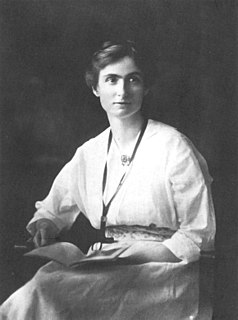
Edith Abbott was an American economist, statistician, social worker, educator, and author. Abbott was born in Grand Island, Nebraska. Abbott was a pioneer in the profession of social work with an educational background in economics. She was a leading activist in social reform with the ideals that humanitarianism needed to be embedded in education. Abbott was also in charge of implementing social work studies to the graduate level. Though she was met with resistance on her work with social reform at the University of Chicago, she ultimately was successful and was elected as the school's dean in 1924, making her the first female dean in the United States. Abbott was foremost an educator and saw her work as a combination of legal studies and humanitarian work which shows in her social security legislation. She is known as an economist who pursued implementing social work at the graduate level. Her younger sister was Grace Abbott.Social work will never become a profession—except through the professional schools
Isaac Heinemann, German-Israeli scholar and academic (b. 1876) deaths

Isaac Heinemann was an Israeli rabbinical scholar and a professor of classical literature, Hellenistic literature and philology.
John Feinstein, American journalist and author births

John Feinstein is an American sportswriter, author and sports commentator.
Robert Swan, English explorer births

Robert Charles Swan, OBE, FRGS is the first person to walk to both poles.
Hugo Chávez, Venezuelan colonel and politician, President of Venezuela (d. 2013) births
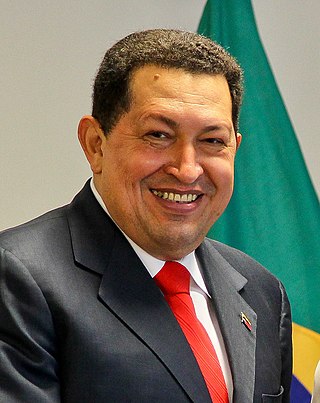
Hugo Rafael Chávez Frías was a Venezuelan politician who was president of Venezuela from 1999 until his death in 2013, except for a brief period in 2002. Chávez was also leader of the Fifth Republic Movement political party from its foundation in 1997 until 2007, when it merged with several other parties to form the United Socialist Party of Venezuela (PSUV), which he led until 2012.
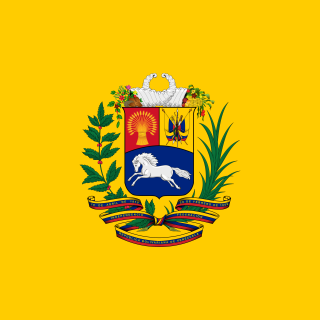
The president of Venezuela, officially known as the President of the Bolivarian Republic of Venezuela, is the head of state and head of government in Venezuela. The president leads the National Executive of the Venezuelan government and is the commander-in-chief of the National Bolivarian Armed Forces. Presidential terms were set at six years with the adoption of the 1999 Constitution of Venezuela, and presidential term limits were removed in 2009.
Gerd Faltings, German mathematician and academic births

Gerd Faltings is a German mathematician known for his work in arithmetic geometry.
Steve Morse, American singer-songwriter and guitarist births

Steve J. Morse is an American guitarist, best known as the founder of the Dixie Dregs and as the lead guitarist of Deep Purple from 1994 to 2022. Morse has also enjoyed a successful solo career and was briefly a member of the group Kansas in the mid-1980s. Most recently, Morse became a member of the supergroup Flying Colors.
Mikey Sheehy, Irish footballer births
Michael "Mikey" Sheehy is an Irish Gaelic football selector and former player. His league and championship career at senior level with the Kerry county team spanned fifteen seasons from 1973 to 1988.
Vajiralongkorn, King of Thailand births

Vajiralongkorn is the King of Thailand. He is the only son of King Bhumibol Adulyadej and Queen Sirikit. In 1972, at the age of 20, he was made crown prince by his father. After his father's death on 13 October 2016, he was expected to ascend to the throne of Thailand but asked for time to mourn before taking the throne. He accepted the throne on the night of 1 December 2016. His coronation took place from 4–6 May 2019. The Thai government retroactively declared his reign to have begun on 13 October 2016, upon his father's death. As the tenth monarch of the Chakri dynasty, he is also styled as Rama X. Aged 64 at that time, Vajiralongkorn became the oldest Thai monarch to ascend to the throne.
Santiago Calatrava, Spanish architect and engineer, designed the Athens Olympic Sports Complex births

Santiago Calatrava Valls is a Spanish architect, structural engineer, sculptor and painter, particularly known for his bridges supported by single leaning pylons, and his railway stations, stadiums, and museums, whose sculptural forms often resemble living organisms. His best-known works include the Olympic Sports Complex of Athens, the Milwaukee Art Museum, the Turning Torso tower in Malmö, Sweden, the World Trade Center Transportation Hub in New York City, the Auditorio de Tenerife in Santa Cruz de Tenerife, the Margaret Hunt Hill Bridge in Dallas, Texas, and his largest project, the City of Arts and Sciences and Opera House in his birthplace, Valencia. His architectural firm has offices in New York City, Doha, and Zürich.

The Olympic Athletic Center of Athens Spiros Louis or OACA ), is a sport facilities complex located at Marousi, northeast Athens, Greece. The complex consists of five major venues as well as other supplementary sport facilities.
Doug Collins, American basketball player and coach births

Paul Douglas Collins is an American basketball executive, former player, coach and television analyst in the National Basketball Association (NBA). He played in the NBA from 1973 to 1981 for the Philadelphia 76ers, earning four NBA All-Star selections. He then became an NBA coach in 1986, and had stints coaching the Chicago Bulls, Detroit Pistons, Washington Wizards and Philadelphia 76ers. Collins also served as an analyst for various NBA-related broadcast shows. He is a recipient of the Curt Gowdy Media Award.
Gregg Giuffria, American rock musician and businessman births
Gregg Giuffria is an American rock musician and businessman. He was the keyboardist for AOR bands Angel, House of Lords, and Giuffria.
Ray Kennedy, English footballer (d. 2021) births
Raymond Kennedy was an English footballer who won every domestic honour in the game with Arsenal and Liverpool in the 1970s and early 1980s. Kennedy played as a forward for Arsenal, and then played as a left-sided midfielder for Liverpool. He scored 148 goals in 581 league and cup appearances in a 15-year career in the English Football League and also won 17 caps for England between 1976 and 1980, scoring three international goals.
Shahyar Ghanbari, Iranian singer-songwriter births
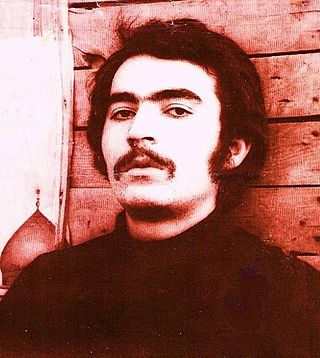
Shahyar Ghanbari is an Iranian poet, writer, lyricist, songwriter, and singer of Persian pop music. He is also a film director & radio-TV producer.
Tapley Seaton, Kittitian politician, 4th Governor-General of Saint Kitts and Nevis births

Sir Samuel Weymouth Tapley Seaton, is the fourth and current governor-general of Saint Kitts and Nevis. He was born on Saint Kitts, the son of William A. Seaton and his wife, Pearl A. Seaton, nee Godwin. He came to the position as Acting Governor-General after the ouster of his predecessor Sir Edmund Wickham Lawrence on 20 May 2015. On 1 September 2015, he was officially appointed Governor-General by Queen Elizabeth II on advice of Prime Minister Timothy Harris.

The governor-general of Saint Kitts and Nevis is the representative of the monarch of Saint Kitts and Nevis, currently King Charles III. The appointed Governor-General, currently Sir Tapley Seaton, lives in Government House, Basseterre, which serves as his official residence.
Vida Blue, American baseball player and sportscaster births

Vida Rochelle Blue Jr. is a former American professional baseball player. He was a left-handed pitcher in Major League Baseball between 1969 and 1986, most notably as an integral member of the Oakland Athletics dynasty that won three consecutive World Series championships between 1972 and 1974. He won the American League Cy Young Award and Most Valuable Player Award in 1971.
Randall Wallace, American screenwriter and producer births
Randall Wallace is an American screenwriter, film director, producer, and songwriter who came to prominence by writing the screenplay for the historical drama film Braveheart (1995). His work on the film earned him a nomination for the Academy Award for Best Original Screenplay and a Writers Guild of America Award in the same category. He has since directed films such as The Man in the Iron Mask (1998), We Were Soldiers (2002), Secretariat (2010) and Heaven Is for Real (2014).
Gerald Casale, American singer-songwriter, guitarist, and director births

Gerald Vincent "Jerry" Casale is an American musician. He came to prominence in the late 1970s as co-founder, co-lead vocalist, and bass player of the new wave band Devo, which released a top 20 hit in 1980 with the single "Whip It". Casale is the main lyricist and one of the main composers of Devo's music and directed most of Devo's music videos. He is one of only two members who have been with Devo throughout its entire history. Casale's brother Bob also performed with the band.
Eiichi Ohtaki, Japanese singer-songwriter and producer (d. 2013) births
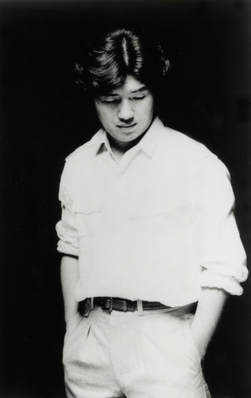
Eiichi Ohtaki was a Japanese musician, singer-songwriter and record producer. He first became known as a member of the rock band Happy End, but was better known for his solo work which began in 1972. In 2003, Ohtaki was ranked by HMV Japan at number 9 on their list of the 100 most important Japanese pop acts. Patrick Macias referred to Ohtaki as Phil Spector, Brian Wilson, George Martin and Joe Meek "synthesized into a single human being," and called his work "an encyclopedia of everything that was great about pop music in the 20th century."
Peter Cosgrove, Australian general and politician, 26th Governor General of Australia births

General Sir Peter John Cosgrove, is a retired senior Australian Army officer who served as the 26th governor-general of Australia, in office from 2014 to 2019.

The governor-general of Australia is the representative of the monarch, currently King Charles III, in Australia. The governor-general is appointed by the monarch on the recommendation of government ministers. The governor-general has formal presidency over the Federal Executive Council and is commander-in-chief of the Australian Defence Force. The functions of the governor-general include appointing ministers, judges, and ambassadors; giving royal assent to legislation passed by parliament; issuing writs for election; and bestowing Australian honours.
Sally Struthers, American actress births
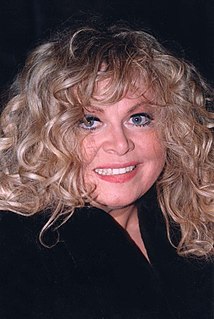
Sally Anne Struthers is an American actress and activist. She played Gloria Stivic, the daughter of Archie and Edith Bunker on All in the Family, for which she won two Emmy awards, and Babette on Gilmore Girls. She was also the voice of Charlene Sinclair on the ABC sitcom Dinosaurs and Rebecca Cunningham on the Disney animated series TaleSpin.
Jonathan Edwards, American singer-songwriter and guitarist births
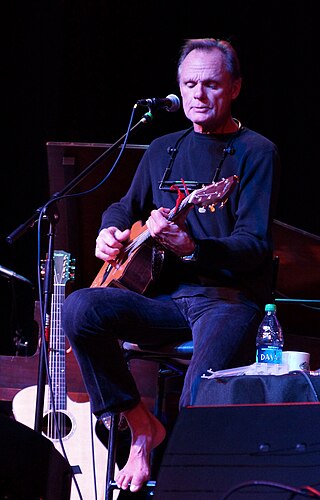
Jonathan Edwards is an American singer-songwriter and musician best known for his 1971 hit single "Sunshine".
Linda Kelsey, American actress births
Linda Jean Kelsey is an American actress. She is best known for her role as Billie Newman on the CBS drama television series Lou Grant (1977–1982), which earned her three Golden Globe Award nominations and five Primetime Emmy Award nominations.
Fahmida Riaz, Pakistani poet and activist (d. 2018) births

Fahmida Riaz was a Urdu writer, poet and activist of Pakistan. She authored many books, of which some are Godaavari, Khatt-e Marmuz, and Khana e Aab O Gil the first translation in rhyme of the Masnavi of Jalaluddin Rumi from Persian into Urdu. The author of more than 15 books of fiction and poetry, she remained at the center of controversies. When Badan Dareeda, her second collection of verse, appeared, she was accused of using erotic, sensual expressions and sometimes islamist undertone in her work. The themes prevalent in her verse were, until then, considered taboo for women writers. She also translated the works of Shah Abdul Latif Bhitai and Shaikh Ayaz from Sindhi to Urdu. Fleeing General Zia-ul Haq's religious tyranny, Riaz sought refuge in India and spent seven years there.
Saint Alphonsa, first woman of Indian origin to be canonized as a saint by the Catholic Church (b. 1910) deaths

Alphonsa of the Immaculate Conception or Saint Alphonsa, christened at birth as Anna Muttathupadathu, was a nun and an educator by vocation (profession). She was also known for being a victim soul, visionary and prophetess in the Kottayam pergunna of the erstwhile Travancore province of British India, in the present-day Kerala, India. She is the first woman of Indian origin to be canonised as a saint after decades of enquiry by the Sacred Congregation for the Causes of Saints, she is also the first saint of the Syro-Malabar Church, an Eastern Catholic community of Eastern Christianity.

Canonization is the declaration of a deceased person as an officially recognized saint, specifically, the official act of a Christian communion declaring a person worthy of public veneration and entering their name in the canon catalogue of saints, or authorized list of that communion's recognized saints.

The Catholic Church, also known as the Roman Catholic Church, is the largest Christian church, with 1.3 billion baptized Catholics worldwide as of 2019. As the world's oldest and largest continuously functioning international institution, it has played a prominent role in the history and development of Western civilization. The church consists of 24 sui iuris churches, including the Latin Church and 23 Eastern Catholic Churches, which comprise almost 3,500 dioceses and eparchies located around the world. The pope, who is the bishop of Rome, is the chief pastor of the church. The bishopric of Rome, known as the Holy See, is the central governing authority of the church. The administrative body of the Holy See, the Roman Curia, has its principal offices in Vatican City, a small enclave of the Italian city of Rome, of which the pope is head of state.
Jim Davis, American cartoonist, created Garfield births

James Robert Davis is an American cartoonist, television writer, television producer, screenwriter, and film producer. He is best known as the creator of the comic strips Garfield and U.S. Acres. Published since 1978, Garfield is one of the world's most widely syndicated comic strips. Davis's other comics work includes Tumbleweeds, Gnorm Gnat, and Mr. Potato Head.

Garfield is an American comic strip created by Jim Davis. Originally published locally as Jon in 1976, then in nationwide syndication from 1978 as Garfield, it chronicles the life of the title character Garfield the cat, his human owner Jon Arbuckle, and Odie the dog. As of 2013, it was syndicated in roughly 2,580 newspapers and journals, and held the Guinness World Record for being the world's most widely syndicated comic strip.
Mike Bloomfield, American guitarist and songwriter (d. 1981) births

Michael Bernard Bloomfield was an American guitarist and composer, born in Chicago, Illinois, who became one of the first popular music superstars of the 1960s to earn his reputation almost entirely on his instrumental prowess, as he rarely sang before 1969. Respected for his guitar playing, Bloomfield knew and played with many of Chicago's blues musicians before achieving his own fame and was instrumental in popularizing blues music in the mid-1960s. In 1965, he played on Bob Dylan's Highway 61 Revisited, including the single "Like a Rolling Stone", and performed with Dylan at that year's Newport Folk Festival.
Bill Bradley, American basketball player and politician births

William Warren Bradley is an American politician and former professional basketball player. He served three terms as a Democratic U.S. senator from New Jersey (1979–1997). He ran for the Democratic Party's nomination for president in the 2000 election, which he lost to Vice President Al Gore.
Richard Wright, English singer-songwriter and keyboard player (d. 2008) births

Richard William Wright was an English musician who was a co-founder of the progressive rock band Pink Floyd. He played keyboards and sang, appearing on almost every Pink Floyd album and performing on all their tours. He was inducted into the Rock and Roll Hall of Fame in 1996 as a member of Pink Floyd.
Tonia Marketaki, Greek director and screenwriter (d. 1994) births
Tonia Marketaki was a Greek film director and screenwriter. She was born in Pireas and spend many of her childhood years in the Zografou district of Athens. Her maternal origins are from Kardamyla, in the island of Chios.
Flinders Petrie, English archaeologist and academic (b. 1853) deaths

Sir William Matthew Flinders Petrie, commonly known as simply Flinders Petrie, was a British Egyptologist and a pioneer of systematic methodology in archaeology and the preservation of artefacts. He held the first chair of Egyptology in the United Kingdom, and excavated many of the most important archaeological sites in Egypt in conjunction with his wife, Hilda Urlin. Some consider his most famous discovery to be that of the Merneptah Stele, an opinion with which Petrie himself concurred. Undoubtedly at least as important is his 1905 discovery and correct identification of the character of the Proto-Sinaitic script, the ancestor of almost all alphabetic scripts.
Bill Crider, American author (d. 2018) births
Bill Crider was an American author of crime fiction among other work.
Riccardo Muti, Italian conductor and educator births

Riccardo Muti, is an Italian conductor. He currently holds two music directorships, at the Chicago Symphony Orchestra and at the Orchestra Giovanile Luigi Cherubini. Muti has previously held posts at the Maggio Musicale in Florence, the Philharmonia Orchestra in London, the Philadelphia Orchestra, the Teatro alla Scala in Milan, and the Salzburg Whitsun Festival.
Susan Roces, Filipino actress and producer (d. 2022) births

Jesusa Purificacion Levy Sonora-Poe, known professionally as Susan Roces, was a Filipino actress. She was the wife of Ronald Allan Kelley Poe, better known as Fernando Poe Jr. Roces was regarded as the "Queen of Philippine Movies" and starred in more than 130 films and television programs. She won five FAMAS Awards, including two Best Actress wins. Luna Awards honored her with a Lifetime Achievement Award for her long-standing career and contribution to Philippine cinema. In 2005, Roces was one of the first inductees on Eastwood City Walk of Fame. She played the character "Lola Flora" on the ABS-CBN television series FPJ's Ang Probinsyano since the pilot episode in 2015. Months prior to her death in 2022, Roces was honored by The Philippine Post Office with a commemorative stamp.
Luis Aragonés, Spanish footballer, coach, and manager (d. 2014) births

Luis Aragonés Suárez was a Spanish football player and manager.
Arsen Dedić, Croatian singer-songwriter and poet (d. 2015) births
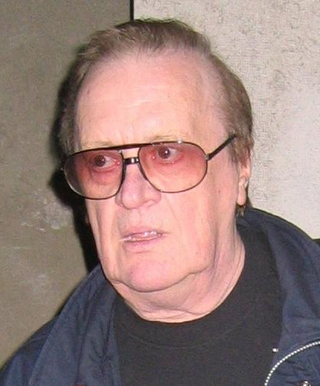
Arsenije "Arsen" Dedić was a Croatian singer-songwriter. He wrote and performed chansons, as well as film music. He was also an award-winning poet, and was one of the best-selling poets of former Yugoslavia and Croatia.
Alberto Fujimori, Peruvian engineer, academic, and politician, 90th President of Peru births

Alberto Kenya Fujimori Inomoto is a Peruvian statesman, professor and former engineer who was President of Peru from 28 July 1990 until 22 November 2000. Frequently described as a dictator, he remains a controversial figure in Peruvian politics; his government is credited with the creation of Fujimorism, defeating the Shining Path insurgency and restoring Peru's macroeconomic stability, though Fujimori ended his presidency by fleeing Peru for Japan amid a major scandal involving corruption and human rights abuses. Even amid his prosecution in 2008 for crimes against humanity relating to his presidency, two-thirds of Peruvians polled voiced approval for his leadership in that period.

The president of Peru, officially called the president of the Republic of Peru, is the head of state and head of government of Peru. The president is the head of the executive branch and is the Supreme Head of the Armed Forces and Police of Peru. The office of president corresponds to the highest magistracy in the country, making the president the highest-ranking public official in Peru. Due to broadly interpreted impeachment wording in the 1993 Constitution of Peru, the Congress of Peru can impeach the president without cause, effectively making the executive branch subject to the legislature.
Chuan Leekpai, Thai lawyer and politician, 20th Prime Minister of Thailand births

Chuan Leekpai is a Thai politician who is the current President of the National Assembly of Thailand as well as the incumbent Speaker of the Thai House of Representatives. Previously he served as the Thai prime minister from 20 September 1992 to 19 May 1995 and again from 9 November 1997 to 9 February 2001.

The prime minister of Thailand is the head of government of Thailand. The prime minister is also the chair of the Cabinet of Thailand. The post has existed since the Revolution of 1932, when the country became a constitutional monarchy. Prior to the coup d'état, the prime minister was nominated by a vote in the Thai House of Representatives by a simple majority, and is then appointed and sworn-in by the king of Thailand. The house's selection is usually based on the fact that either the prime minister is the leader of the largest political party in the lower house or the leader of the largest coalition of parties. In accordance with the 2017 Constitution, the Prime Minister can hold the office for no longer than eight years, consecutively or not. The post of Prime Minister is currently held by retired general Prayut Chan-o-cha, since the 2014 coup d'état.
Francis Veber, French director and screenwriter births

Francis Paul Veber is a French film director, screenwriter and producer, and playwright. He has written and directed both French and American films. Nine French-language films with which he has been involved, as either writer or director or both, have been remade as English-language Hollywood films: Le grand blond avec une chaussure noire, L'emmerdeur, La Cage aux Folles, Le Jouet, Les Compères, La chèvre, Les Fugitifs, Le dîner de cons and La Doublure. He also wrote the screenplay for My Father the Hero, the 1994 American remake of the French-language film Mon père, ce héros.
Russ Jackson, Canadian football player and coach births
Russell Stanley Jackson is a former professional Canadian football player. Jackson spent his entire 12-year professional football career with the Ottawa Rough Riders of the Canadian Football League (CFL). He is a member of the Order of Canada, the Canadian Football Hall of Fame, and Canada's Sports Hall of Fame, and has been described as the best Canadian-born quarterback to play in the CFL. In 2006, Jackson was voted one of the CFL's Top 50 players (#8) of the league's modern era by Canadian sports network TSN, the highest-ranked Canadian-born player on the list.
Garfield Sobers, Barbadian cricketer births
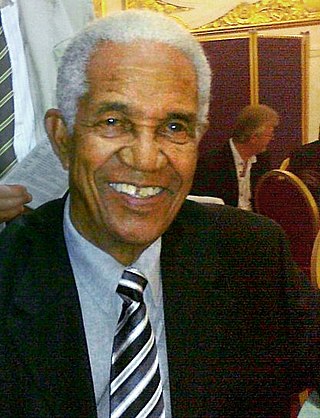
Sir Garfield St Aubrun Sobers,, also known as Sir Gary or Sir Garry Sobers, is a former cricketer who played for the West Indies between 1954 and 1974. A highly skilled bowler, an aggressive batsman and an excellent fielder, he is widely considered to be cricket's greatest ever all-rounder and one of the greatest cricketers of all time.
Neil McKendrick, English historian and academic births
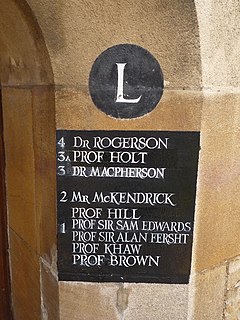
Neil McKendrick MA FRHistS was the 40th Master of Gonville and Caius College, Cambridge. He is now a life fellow of the college.
Meletius IV of Constantinople (b. 1871) deaths
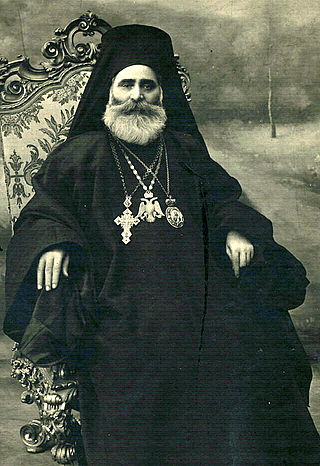
Meletius was primate of the Church of Greece from 1918 to 1920 as Meletius III, after which he was Ecumenical Patriarch of Constantinople as Meletius IV from 1921 to 1923 and Greek Patriarch of Alexandria as Meletius II from 1926 to 1935. He is the only man in the history of the Eastern Orthodox Church to serve successively as the senior bishop of three autocephalous churches.
Jacques d'Amboise, American dancer and choreographer (d. 2021) births

Jacques d'Amboise was an American ballet dancer, choreographer, actor, and educator. He joined the New York City Ballet in 1949 and was named principal dancer in 1953, and throughout his time with the company he danced 24 roles for George Balanchine. He also made film appearances, including Seven Brides for Seven Brothers and Carousel. He choreographed 17 ballets for the New York City Ballet and retired from performing in 1984.
Marie Dressler, Canadian-American actress and singer (b. 1868) deaths
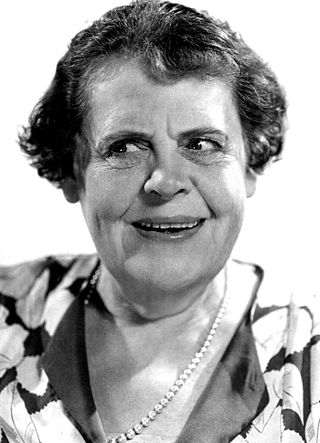
Marie Dressler was a Canadian stage and screen actress, comedian, and early silent film and Depression-era film star. In 1914, she was in the first full-length film comedy. She won the Academy Award for Best Actress in 1931.
Louis Tancred, South African cricketer and pilot (b. 1876) deaths

Louis Joseph Tancred was a South African cricketer who played in 14 Test matches from 1902 to 1913, including three as captain.
Charlie Hodge, Canadian ice hockey player and scout (d. 2016) births

Charles Edward Hodge was a Canadian ice hockey player who played as a goaltender for the Montreal Canadiens, Vancouver Canucks, and Oakland Seals of the National Hockey League between 1954 and 1971.
Nishinoumi Kajirō III, Japanese sumo wrestler, 30th yokozuna (b. 1890) deaths

Nishinoumi Kajirō III was a Japanese professional sumo wrestler. He was the sport's 30th yokozuna.
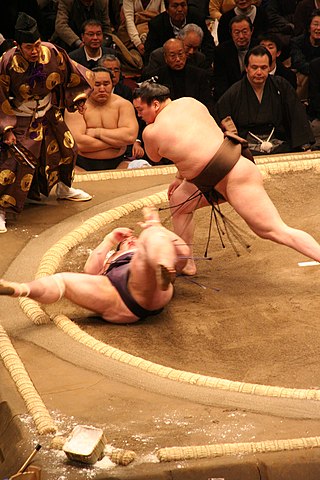
Makuuchi (幕内), or makunouchi (幕の内), is the top division of the six divisions of professional sumo. Its size is fixed at 42 wrestlers (rikishi), ordered into five ranks according to their ability as defined by their performance in previous tournaments.
Natalie Babbitt, American author and illustrator (d. 2016) births
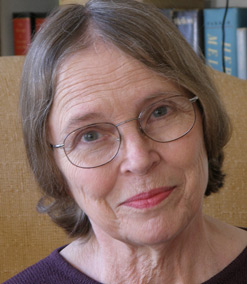
Natalie Zane Babbitt was an American writer and illustrator of children's books. Her 1975 novel Tuck Everlasting was adapted into two feature films and a Broadway musical. She received the Newbery Honor and Christopher Award, and was the U.S. nominee for the biennial international Hans Christian Andersen Award in 1982.
Carlos Alberto Brilhante Ustra, Brazilian colonel (d. 2015) births

Carlos Alberto Brilhante Ustra was a Brazilian army officer and politician who served as a colonel in the Brazilian Army.
Alan Brownjohn, English poet and author births
Alan Charles Brownjohn is an English poet and novelist. He has also worked as a teacher, lecturer, critic and broadcaster.
Johnny Martin, Australian cricketer (d. 1992) births

John Wesley Martin was an Australian cricketer who played in eight Test matches from 1960 to 1967.
Firoza Begum, Bangladeshi singer (d. 2014) births

Firoza Begum was a Bangladeshi Nazrul Geeti singer. She was awarded the Independence Day Award in 1979 by the Government of Bangladesh.
Junior Kimbrough, American singer and guitarist (d. 1998) births

David "Junior" Kimbrough was an American blues musician. His best-known works are "Keep Your Hands off Her" and "All Night Long".
Jean Roba, Belgian author and illustrator (d. 2006) births
Jean Roba was a Belgian comics author from the Marcinelle school. His best-known work is Boule et Bill.
Ramsey Muir Withers, Canadian general (d. 2014) births
General Ramsey Muir Withers, CMM, CD was a Canadian Army Officer and Chief of the Defence Staff, the highest ranking position in the Canadian Forces, from 1980 to 1983. He died of a heart attack in 2014.
John DeWitt, American hammer thrower (b. 1881) deaths
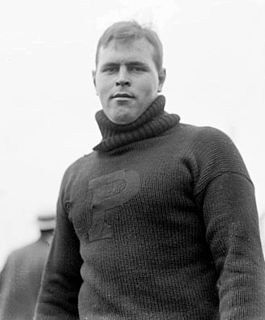
John Riegel DeWitt was an American athlete, including a legendary college football player. As a track and field athlete, DeWitt competed mainly in the hammer throw. He competed for the United States in the 1904 Summer Olympics held in St. Louis in the hammer throw where he won the silver medal.
Allvar Gullstrand, Swedish ophthalmologist and optician, Nobel Prize laureate (b. 1862) deaths

Allvar Gullstrand was a Swedish ophthalmologist and optician.

The Nobel Prize in Physiology or Medicine is awarded yearly by the Nobel Assembly at the Karolinska Institute for outstanding discoveries in physiology or medicine. The Nobel Prize is not a single prize, but five separate prizes that, according to Alfred Nobel's 1895 will, are awarded "to those who, during the preceding year, have conferred the greatest benefit to humankind". Nobel Prizes are awarded in the fields of Physics, Chemistry, Physiology or Medicine, Literature, and Peace.
Jacqueline Kennedy Onassis, American journalist and socialite, 37th First Lady of the United States (d. 1994) births

Jacqueline Lee Kennedy Onassis was an American socialite, writer, photographer, and book editor who served as first lady of the United States from 1961 to 1963, as the wife of President John F. Kennedy. A popular first lady, she endeared the American public with her devotion to her family, dedication to the historic preservation of the White House and her interest in American history and culture. During her lifetime, she was regarded as an international fashion icon.
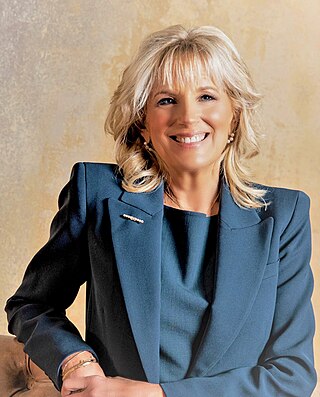
The first lady of the United States is the hostess of the White House. The position is traditionally filled by the wife of the president of the United States, but, on occasion, the title has been applied to women who were not presidents' wives, such as when the president was a bachelor or widower, or when the wife of the president was unable to fulfill the duties of the first lady. The first lady is not an elected position; it carries no official duties and receives no salary. Nonetheless, she attends many official ceremonies and functions of state either along with or in place of the president. Traditionally, the first lady does not hold outside employment while occupying the office, although Eleanor Roosevelt earned money writing and giving lectures, but gave most of it to charity, and Jill Biden has maintained her regular job as an educator during her time in the role. The first lady has her own staff, including the White House social secretary, the chief of staff, the press secretary, the chief floral designer, and the executive chef. The Office of the First Lady is also in charge of all social and ceremonial events of the White House, and is a branch of the Executive Office of the President.
Shirley Ann Grau, American novelist and short story writer (d. 2020) births

Shirley Ann Grau was an American writer. Born in New Orleans, she lived part of her childhood in Montgomery, Alabama. Her novels are set primarily in the Deep South and explore issues of race and gender. In 1965 she won the Pulitzer Prize for Literature for her novel The Keepers of the House, set in a fictional Alabama town.
John Ashbery, American poet (d. 2017) births

John Lawrence Ashbery was an American poet and art critic.
Charlie Biddle, American-Canadian bassist (d. 2003) births
Charles Reed Biddle, was an American-Canadian jazz bassist. He lived most of his life in Montreal, organizing and performing in jazz music events.
Baruch Samuel Blumberg, American physician and academic, Nobel Prize laureate (d. 2011) births

Baruch Samuel Blumberg, known as Barry Blumberg, was an American physician, geneticist, and co-recipient of the 1976 Nobel Prize in Physiology or Medicine, for his work on the hepatitis B virus while an investigator at the NIH. He was president of the American Philosophical Society from 2005 until his death.

The Nobel Prize in Physiology or Medicine is awarded yearly by the Nobel Assembly at the Karolinska Institute for outstanding discoveries in physiology or medicine. The Nobel Prize is not a single prize, but five separate prizes that, according to Alfred Nobel's 1895 will, are awarded "to those who, during the preceding year, have conferred the greatest benefit to humankind". Nobel Prizes are awarded in the fields of Physics, Chemistry, Physiology or Medicine, Literature, and Peace.
Luigi Musso, Italian race car driver (d. 1958) births

Luigi Musso was an Italian racing driver. In 1955 he joined the Ferrari team, entering into a fierce rivalry with Mike Hawthorn and Peter Collins, which boosted the performance of the team, but also encouraged greater risk-taking. According to Musso's fiancée, he was deep in debt by the time of the lucrative 1958 French Grand Prix, where he was fatally injured, somersaulting into a ditch while chasing Hawthorn.
C. T. Vivian, American minister, author, and activist (d. 2020) births

Cordy Tindell Vivian was an American minister, author, and close friend and lieutenant of Martin Luther King Jr. during the civil rights movement. Vivian resided in Atlanta, Georgia, and founded the C. T. Vivian Leadership Institute, Inc. He was a member of the Alpha Phi Alpha fraternity.
Ray Ellis, American conductor and producer (d. 2008) births
Ray Ellis was an American record producer, arranger, conductor, and saxophonist. He was responsible for the orchestration in Billie Holiday's Lady in Satin (1958).
Jacques Piccard, Belgian-Swiss oceanographer and engineer (d. 2008) births

Jacques Piccard was a Swiss oceanographer and engineer, known for having developed underwater submarines for studying ocean currents. In the Challenger Deep, he and Lt. Don Walsh of the United States Navy were the first people to explore the deepest known part of the world's ocean, and the deepest known location on the surface of Earth's crust, the Mariana Trench, located in the western North Pacific Ocean.
Andrew V. McLaglen, English-American director and producer (d. 2014) births
Andrew Victor McLaglen was a British-born American film and television director, known for Westerns and adventure films, often starring John Wayne or James Stewart.
David Brown, American journalist and producer (d. 2010) births

David Brown was an American film and theatre producer and writer who was best known for producing the 1975 film Jaws based on the best-selling novel by Peter Benchley.
Charles Hard Townes, American physicist and academic, Nobel Prize laureate (d. 2015) births

Charles Hard Townes was an American physicist. Townes worked on the theory and application of the maser, for which he obtained the fundamental patent, and other work in quantum electronics associated with both maser and laser devices. He shared the 1964 Nobel Prize in Physics with Nikolay Basov and Alexander Prokhorov. Townes was an adviser to the United States Government, meeting every US president from Harry S. Truman (1945) to Bill Clinton (1999).

The Nobel Prize in Physics is a yearly award given by the Royal Swedish Academy of Sciences for those who have made the most outstanding contributions for humankind in the field of physics. It is one of the five Nobel Prizes established by the will of Alfred Nobel in 1895 and awarded since 1901, the others being the Nobel Prize in Chemistry, Nobel Prize in Literature, Nobel Peace Prize, and Nobel Prize in Physiology or Medicine. Physics is traditionally the first award presented in the Nobel Prize ceremony.
Dick Sprang, American illustrator (d. 2000) births

Richard W. Sprang was an American comic book artist and penciller, best known for his work on the superhero Batman during the period fans and historians call Golden Age of Comic Books. Sprang was responsible for the 1950 redesign of the Batmobile and the original design of the Riddler, who has appeared in film, television and other media adaptations. Sprang's Batman was notable for his square chin, expressive face and barrel chest.
Frankie Yankovic, American polka musician (d. 1998) births

Frank John Yankovic was an American accordion player and polka musician. Known as "America's Polka King", Yankovic was considered the premier artist to play in the Slovenian style during his long career. He was not related to fellow accordionist and song parodist "Weird Al" Yankovic, although the two collaborated.
Carmen Dragon, American conductor and composer (d. 1984) births

Carmen Dragon was an American conductor, composer, and arranger who in addition to live performances and recording, worked in radio, film, and television.
Aenne Burda, German publisher (d. 2005) births

Aenne Burda, born Anna Magdalene Lemminger, was a German publisher of the Burda Group, a media group based in Offenburg and Munich, Germany. She was one of the symbols of the German economic miracle.
Malcolm Lowry, English novelist and poet (d. 1957) births

Clarence Malcolm Lowry was an English poet and novelist who is best known for his 1947 novel Under the Volcano, which was voted No. 11 in the Modern Library 100 Best Novels list.
Earl Tupper, American inventor and businessman, founded Tupperware Brands (d. 1983) births
Earl Silas Tupper was an American businessman and inventor, best known as the inventor of Tupperware, an airtight plastic container for storing food, and for founding the related home products company that bears his name, Tupperware Plastics Company.
Tupperware Brands Corporation, formerly Tupperware Corporation, is an American multinational multi-level marketing company. Its main focus is kitchen and household products, and it is particularly known for its line of plastic containers for food storage and preparation. By extension, plastic food containers in general, regardless of brand, are sometimes referred to as Tupperware.
Albert Namatjira, Australian painter (d. 1959) births

Albert Namatjira was an Arrernte painter from the MacDonnell Ranges in Central Australia, widely considered one of the greatest and most influential Australian artists. As a pioneer of contemporary Indigenous Australian art, he was arguably one of the most famous Indigenous Australians of his generation. He was the first Aboriginal artist to receive popularity from a wide Australian audience.
Sir Karl Popper, Austrian-English philosopher and academic (d. 1994) births

Sir Karl Raimund Popper was an Austrian-British philosopher, academic and social commentator. One of the 20th century's most influential philosophers of science, Popper is known for his rejection of the classical inductivist views on the scientific method in favour of empirical falsification. According to Popper, a theory in the empirical sciences can never be proven, but it can be falsified, meaning that it can be scrutinised with decisive experiments. Popper was opposed to the classical justificationist account of knowledge, which he replaced with critical rationalism, namely "the first non-justificational philosophy of criticism in the history of philosophy".
Freddie Fitzsimmons, American baseball player, coach, and manager (d. 1979) births
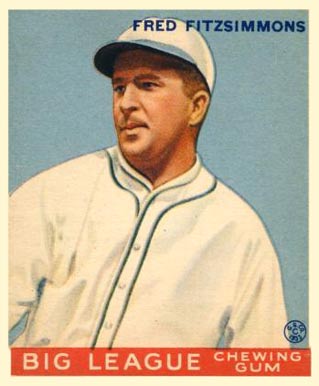
Frederick Landis Fitzsimmons was an American professional baseball right-handed pitcher, manager, and coach, who played in Major League Baseball (MLB) from 1925 to 1943 with the New York Giants and Brooklyn Dodgers. Nicknamed Fat Freddie, and known for his mastery of the knuckle curve, Fitzsimmons' 217 wins were the third most by a National League (NL) right-hander in the period from 1920 to 1955, trailing only Burleigh Grimes and Paul Derringer. In 1940 he set an NL record, which stood until 1959, with a single-season winning percentage of .889 (16–2). He was an agile fielder in spite of his heavy build, holding the major league record for career double plays (79) from 1938 to 1964, and tying another record by leading the league in putouts four times; he ranked eighth in NL history in putouts (237) and ninth in fielding percentage (.977) when his career ended.
Rudy Vallée, American actor, singer, and saxophonist (d. 1986) births

Hubert Prior Vallée, known professionally as Rudy Vallée, was an American singer, musician, actor, and radio host. He was one of the first modern pop stars of the teen idol type.
Lawrence Gray, American actor (d. 1970) births

Lawrence Gray was an American actor of the 1920s and 1930s.
Barbara La Marr, American actress and screenwriter (d. 1926) births
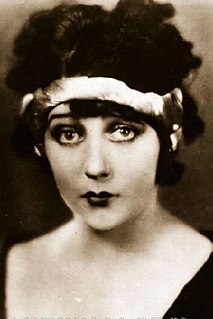
Barbara La Marr was an American film actress and screenwriter who appeared in twenty-seven films during her career between 1920 and 1926. La Marr was also noted by the media for her beauty, dubbed as the "Girl Who Is Too Beautiful," as well as her tumultuous personal life.
Edward Beecher, American minister and theologian (b. 1803) deaths
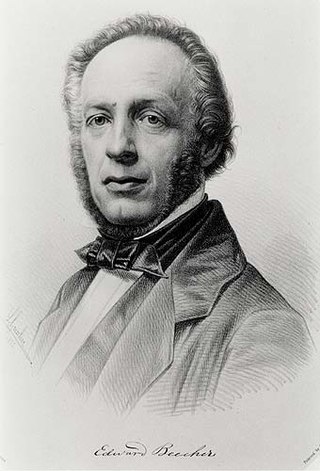
Edward Beecher D.D. was an American theologian, the son of Lyman Beecher and the brother of Harriet Beecher Stowe and Henry Ward Beecher.
Rued Langgaard, Danish organist and composer (d. 1952) births
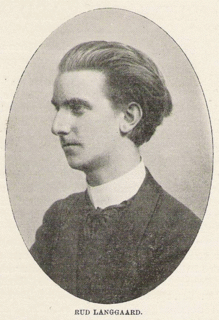
Rued Langgaard was a late-Romantic Danish composer and organist. His then-unconventional music was at odds with that of his Danish contemporaries but was recognized 16 years after his death.
Marcel Duchamp, French-American painter and sculptor (d. 1968) births

Henri-Robert-Marcel Duchamp was a French painter, sculptor, chess player, and writer whose work is associated with Cubism, Dada, and conceptual art. Duchamp is commonly regarded, along with Pablo Picasso and Henri Matisse, as one of the three artists who helped to define the revolutionary developments in the plastic arts in the opening decades of the 20th century, responsible for significant developments in painting and sculpture. Duchamp has had an immense impact on twentieth-century and twenty first-century art, and he had a seminal influence on the development of conceptual art. By the time of World War I he had rejected the work of many of his fellow artists as "retinal" art, intended only to please the eye. Instead, Duchamp wanted to use art to serve the mind.
Willard Price, Canadian-American journalist and author (d. 1983) births
Willard DeMille Price was a Canadian-born American traveller, journalist and author.
Moses Montefiore, British philanthropist, sheriff and banker (b. 1784) deaths

Sir Moses Haim Montefiore, 1st Baronet, was a British financier and banker, activist, philanthropist and Sheriff of London. Born to an Italian Sephardic Jewish family based in London, after he achieved success, he donated large sums of money to promote industry, business, economic development, education and health among the Jewish community in the Levant. He founded Mishkenot Sha'ananim in 1860, the first settlement outside the Old City of Jerusalem.
Lucy Burns, American activist, co-founded the National Woman's Party (d. 1966) births
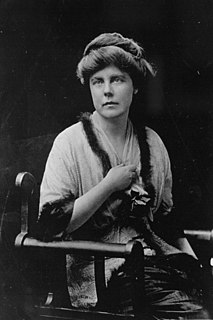
Lucy Burns was an American suffragist and women's rights advocate. She was a passionate activist in the United States and the United Kingdom, who joined the militant suffragettes. Burns was a close friend of Alice Paul, and together they ultimately formed the National Woman's Party.

The National Woman's Party (NWP) was an American women's political organization formed in 1916 to fight for women's suffrage. After achieving this goal with the 1920 adoption of the Nineteenth Amendment to the United States Constitution, the NWP advocated for other issues including the Equal Rights Amendment. The most prominent leader of the National Woman's Party was Alice Paul, and its most notable event was the 1917–1919 Silent Sentinels vigil outside the gates of the White House.
Stefan Filipkiewicz, Polish painter (d. 1944) births

Stefan Filipkiewicz pronounced [ˈstɛfan filipˈkʲɛvit͡ʂ] was a Polish painter and designer, notable for his landscapes inspired by the Young Poland movement. He was a leading representative of the Polish art nouveau style of painting.
George Law Curry, American publisher and politician (b. 1820) deaths

George Law Curry was a predominant American political figure and newspaper publisher in the region that eventually became the state of Oregon. A native of Pennsylvania, he published a newspaper in St. Louis, Missouri, before traveling the Oregon Trail to the unorganized Oregon Country. A Democrat, Curry served in the new Oregon Territory's government as a representative to the legislature and as Territorial Secretary before appointment as the last Governor of the Oregon Territory. Curry County in Southern Oregon is named in his honor.
Ernst Cassirer, Polish-American philosopher and academic (d. 1945) births

Ernst Alfred Cassirer was a German philosopher. Trained within the Neo-Kantian Marburg School, he initially followed his mentor Hermann Cohen in attempting to supply an idealistic philosophy of science.
Albert Sarraut, French journalist and politician, 106th Prime Minister of France (d. 1962) births

Albert-Pierre Sarraut was a French Radical politician, twice Prime Minister during the Third Republic.

The prime minister of France, officially the prime minister of the French Republic, is the head of government of the French Republic and the leader of the Council of Ministers.
Jan Evangelista Purkyně, Czech anatomist and physiologist (b. 1787) deaths

Jan Evangelista Purkyně was a Czech anatomist and physiologist. In 1839, he coined the term protoplasm for the fluid substance of a cell. He was one of the best known scientists of his time. Such was his fame that when people from outside Europe wrote letters to him, all that they needed to put as the address was "Purkyně, Europe".
Charles Dillon Perrine, American-Argentinian astronomer (d. 1951) births

Charles Dillon Perrine was an American astronomer at the Lick Observatory in California (1893-1909) who moved to Cordoba, Argentina to accept the position of Director of the Argentine National Observatory (1909-1936). The Cordoba Observatory under Perrine's direction made the first attempts to prove Einstein's theory of relativity by astronomical observation of the deflection of starlight near the Sun during the solar eclipse of October 10, 1912 in Cristina (Brazil), and the solar eclipse of August 21, 1914 at Feodosia, Crimea, Russian Empire. Rain in 1912 and clouds in 1914 prevented results.
Beatrix Potter, English children's book writer and illustrator (d. 1943) births

Helen Beatrix Potter was an English writer, illustrator, natural scientist, and conservationist. She is best known for her children's books featuring animals, such as The Tale of Peter Rabbit, which was her first published work in 1902. Her books, including 23 Tales, have sold more than 250 million copies. Potter was also a pioneer of merchandising—in 1903, Peter Rabbit was the first fictional character to be made into a patented stuffed toy, making him the oldest licensed character.
Albertson Van Zo Post, American fencer (d. 1938) births

Albertson Van Zo Post was an American fencer and writer. He earned two gold medals in the 1904 Summer Olympics as well as a silver and two bronze medals, and also competed in the 1912 Summer Olympics.
Huseyn Khan Nakhchivanski, Russian general (d. 1919) births

Huseyn Khan Nakhchivanski, or Nakhichevansky, francised spelling: Hussein Nahitchevansky, was a Russian Cavalry General of Azerbaijani origin. He was the only Muslim to serve as General-Adjutant of the H. I. M. Retinue.
Elias M. Ammons, American businessman and politician, 19th Governor of Colorado (d. 1925) births

Elias Milton Ammons served as the 19th Governor of Colorado from 1913 to 1915. Born in 1860 in Macon County, North Carolina, he is perhaps best remembered for ordering National Guard troops into Ludlow, Colorado during the Colorado Coalfield War, which resulted in the Ludlow Massacre. He was also instrumental in starting the National Western Stock Show, which is still active. His son Teller Ammons was also governor of Colorado.

The governor of Colorado is the head of government of the U.S. state of Colorado. The governor is the head of the executive branch of Colorado's state government and is charged with enforcing state laws. The governor has the power to either approve or veto bills passed by the Colorado General Assembly, to convene the legislature, and to grant pardons, except in cases of treason or impeachment. The governor is also the commander-in-chief of the state's military forces.
Grand Duchess Anastasia Mikhailovna of Russia (d. 1922) births

Grand Duchess Anastasia Mikhailovna of Russia was by birth member of the House of Romanov and a Grand Duchess of Russia and by marriage Grand Duchess of Mecklenburg-Schwerin.
Ballington Booth, English-American activist, co-founded Volunteers of America (d. 1940) births

Ballington Booth was a British-born American Christian minister who co-founded Volunteers of America, a Christian charitable organization, and became its first General (1896-1940). He was a former officer in The Salvation Army.
Volunteers of America (VOA) is a nonprofit organization founded in 1896 that provides affordable housing and other assistance services primarily to low-income people throughout the United States. Headquartered in Alexandria, Virginia, the organization includes 32 affiliates and serves approximately 1.5 million people each year in 46 states, the District of Columbia, and Puerto Rico.
Charles Albert of Sardinia (b. 1798) deaths
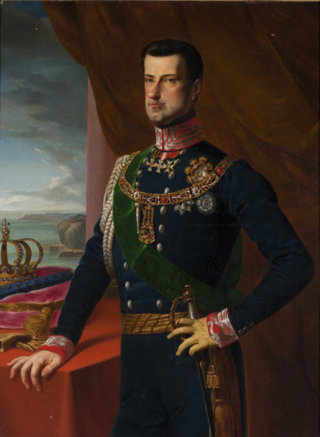
Charles Albert was the King of Sardinia from 27 April 1831 until 23 March 1849. His name is bound up with the first Italian constitution, the Albertine Statute, and with the First Italian War of Independence (1848–1849).
Gerard Manley Hopkins, English poet (d. 1889) births

Gerard Manley Hopkins was an English poet and Jesuit priest, whose posthumous fame placed him among leading Victorian poets. His prosody – notably his concept of sprung rhythm – established him as an innovator, as did his praise of God through vivid use of imagery and nature. Only after his death did Robert Bridges publish a few of Hopkins's mature poems in anthologies, hoping to prepare for wider acceptance of his style. By 1930 Hopkins's work was seen as one of the most original literary advances of his century. It intrigued such leading 20th-century poets as T. S. Eliot, Dylan Thomas, W. H. Auden, Stephen Spender and Cecil Day-Lewis.
Joseph Bonaparte, French diplomat and brother of Napoleon (b. 1768) deaths

Joseph-Napoléon Bonaparte was a French statesman, lawyer, diplomat and older brother of Napoleon Bonaparte. During the Napoleonic Wars, the latter made him King of Naples (1806–1808), and then King of Spain (1808–1813). After the fall of Napoleon, Joseph styled himself Comte de Survilliers and emigrated to the United States, where he settled near Bordentown, New Jersey, on an estate overlooking the Delaware River not far from Philadelphia.

Napoleon Bonaparte, later known by his regnal name Napoleon I, was a French military commander and political leader who rose to prominence during the French Revolution and led successful campaigns during the Revolutionary Wars. He was the de facto leader of the French Republic as First Consul from 1799 to 1804, then Emperor of the French from 1804 until 1814 and again in 1815. Napoleon's political and cultural legacy endures to this day, as a highly celebrated and controversial leader. He initiated many liberal reforms that have persisted in society, and is considered one of the greatest military commanders in history, but between three and six million civilians and soldiers perished in what became known as the Napoleonic Wars.
Clemens Brentano, German author and poet (b. 1778) deaths
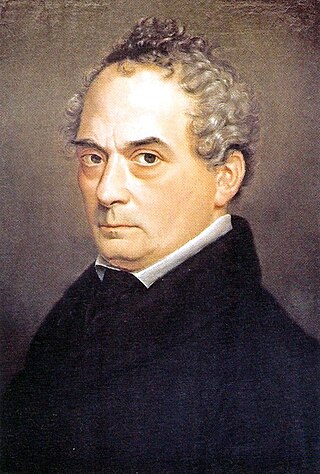
Clemens Wenzeslaus Brentano was a German poet and novelist, and a major figure of German Romanticism. He was the uncle, via his brother Christian, of Franz and Lujo Brentano.
Nathan Mayer Rothschild, German-English banker and financier (b. 1777) deaths
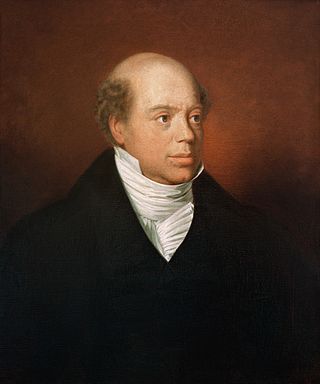
Nathan Mayer Rothschild was an English-German banker, businessman and financier. Born in Frankfurt am Main in Germany, he was the third of the five sons of Gutle (Schnapper) and Mayer Amschel Rothschild, and was of the second generation of the Rothschild banking dynasty.
Édouard Mortier, duc de Trévise, French general and politician, 15th Prime Minister of France (b. 1768) deaths
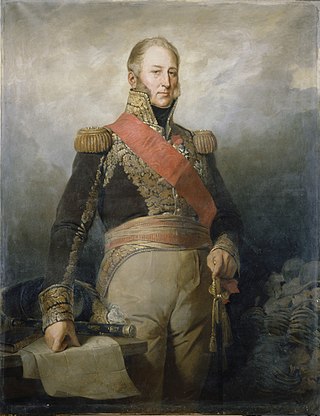
Adolphe Édouard Casimir Joseph Mortier, 1st Duke of Trévise was a French military commander and Marshal of the Empire under Napoleon I, who served during both the French Revolutionary Wars and the Napoleonic Wars. He was one of 18 people killed in 1835 during Giuseppe Marco Fieschi's assassination attempt on King Louis Philippe I.

The prime minister of France, officially the prime minister of the French Republic, is the head of government of the French Republic and the leader of the Council of Ministers.
Gaspard Monge, French mathematician and engineer (b. 1746) deaths

Gaspard Monge, Comte de Péluse was a French mathematician, commonly presented as the inventor of descriptive geometry, technical drawing, and the father of differential geometry. During the French Revolution he served as the Minister of the Marine, and was involved in the reform of the French educational system, helping to found the École Polytechnique.
Stefan Dunjov, Bulgarian colonel (d. 1889) births

Stefan Dunjov was a Banat Bulgarian military figure and revolutionary known for participating in both the Hungarian Revolution of 1848 and the Italian unification (Risorgimento), as well as for being the first ethnic Bulgarian Colonel.
Richard Beckett, English cricketer and captain (b.1772) deaths
Richard Beckett was an English amateur cricketer and a captain in the Coldstream Guards during the Napoleonic Wars.
Selim III, Ottoman sultan (b. 1761) deaths

Selim III was the Sultan of the Ottoman Empire from 1789 to 1807. Regarded as an enlightened ruler, the Janissaries eventually deposed and imprisoned him, and placed his cousin Mustafa on the throne as Mustafa IV. Selim was subsequently killed by a group of assassins.
Ludwig Feuerbach, German anthropologist and philosopher (d. 1872) births

Ludwig Andreas von Feuerbach was a German anthropologist and philosopher, best known for his book The Essence of Christianity, which provided a critique of Christianity that strongly influenced generations of later thinkers, including Charles Darwin, Karl Marx, Sigmund Freud, Friedrich Engels, Richard Wagner, and Friedrich Nietzsche.
Ignaz Bösendorfer, Austrian businessman, founded the Bösendorfer Company (d. 1859) births

Ignaz Bösendorfer was an Austrian musician and piano manufacturer, who in 1828 founded the Bösendorfer company in Vienna-Josefstadt.

Bösendorfer is an Austrian piano manufacturer and, since 2008, a wholly owned subsidiary of Yamaha Corporation. Bösendorfer is unusual in that it produces 97- and 92-key models in addition to instruments with standard 88-key keyboards.
Maximilien Robespierre, French politician, (b. 1758) deaths

Maximilien François Marie Isidore de Robespierre was a French lawyer and statesman who became one of the best-known, influential and controversial figures of the French Revolution. As a member of the Estates-General, the Constituent Assembly and the Jacobin Club, he campaigned for universal manhood suffrage, the right to vote for people of color, Jews, actors, domestic staff and the abolition of both clerical celibacy and French involvement in the Atlantic slave trade. In 1791, Robespierre was elected as "public accuser" and became an outspoken advocate for male citizens without a political voice, for their unrestricted admission to the National Guard, to public offices, and to the commissioned ranks of the army, for the right to petition and the right to bear arms in self defence. Robespierre played an important part in the agitation which brought about the fall of the French monarchy on 10 August 1792 and the summoning of a National Convention. His goal was to create a one and indivisible France, equality before the law, to abolish prerogatives and to defend the principles of direct democracy. He earned the nickname "the incorruptible" for his adherence to strict moral values.
Louis Antoine de Saint-Just, French soldier and politician (b. 1767) deaths

Louis Antoine Léon de Saint-Just, was a French revolutionary, political philosopher, member and president of the French National Convention, a Jacobin club leader, and a major figure of the French Revolution. He was a close friend of Maximilien Robespierre and served as his most trusted ally during the period of Jacobin rule (1793–94) in the French First Republic. Saint-Just worked as a legislator and a military commissar, but he achieved a lasting reputation as the face of the Reign of Terror where he was named the Archangel of the Terror. He publicly delivered the condemnatory reports that emanated from Robespierre and the Committee of Public Safety and defended the use of violence against opponents of the government. He supervised the arrests of some of the most famous figures of the Revolution, many of whom ended up at the guillotine.
Friedrich Wilhelm von Bismarck, German army officer and writer (d. 1860) births

Friedrich Wilhelm Graf von Bismarck was a German lieutenant general, diplomat and military writer. He wrote several major military-political works and military histories, which were very pro-Napoleon.
George Dodington, 1st Baron Melcombe, English politician, Lord Lieutenant of Somerset (b. 1691) deaths

George Bubb Dodington, 1st Baron Melcombe was an English Whig politician who sat in the House of Commons from 1715 to 1761.
This is an incomplete list of people who have served as Lord Lieutenant of Somerset. Since 1714, all Lord Lieutenants have also been Custos Rotulorum of Somerset.
Fabre d'Églantine, French actor, playwright, and politician (d. 1794) births

Philippe François Nazaire Fabre d'Églantine, commonly known as Fabre d'Églantine, was a French actor, dramatist, poet, and politician of the French Revolution.
Johann Sebastian Bach, German organist and composer (b. 1685) deaths

Johann Sebastian Bach was a German composer and musician of the late Baroque period. He is known for his orchestral music such as the Brandenburg Concertos; instrumental compositions such as the Cello Suites; keyboard works such as the Goldberg Variations and The Well-Tempered Clavier; organ works such as the Schubler Chorales and the Toccata and Fugue in D minor; and vocal music such as the St Matthew Passion and the Mass in B minor. Since the 19th-century Bach revival he has been generally regarded as one of the greatest composers in the history of Western music.
Thomas Heyward, Jr., American judge and politician (d. 1809) births

Thomas Heyward Jr. was an American Founding Father, lawyer, jurist, and politician. Heyward was active politically during the Revolutionary Era. As a member of the Continental Congress representing South Carolina, he signed the Declaration of Independence and Articles of Confederation. Heyward's imprisonment in Florida by the British for nearly a year and the loss of a considerable number of slaves led to his being widely proclaimed a martyr of the revolution.
Antonio Vivaldi, Italian violinist and composer (b. 1678) deaths
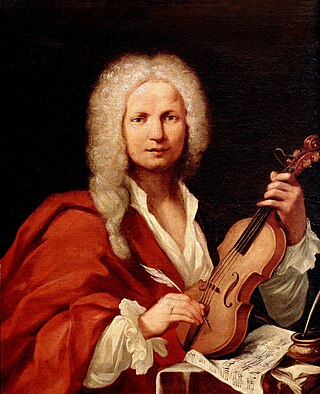
Antonio Lucio Vivaldi was an Italian composer, virtuoso violinist and impresario of Baroque music. Regarded as one of the greatest Baroque composers, Vivaldi's influence during his lifetime was widespread across Europe, giving origin to many imitators and admirers. He pioneered many developments in orchestration, violin technique and programatic music. He consolidated the emerging concerto form into a widely accepted and followed idiom, which was paramount in the development of Johann Sebastian Bach's instrumental music.
Étienne Baluze, French scholar and academic (b. 1630) deaths
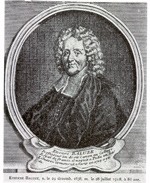
Étienne Baluze was a French scholar and historiographer, also known as Stephanus Baluzius.
Henry Bennet, 1st Earl of Arlington, English politician and diplomat, Secretary of State for the Southern Department (b. 1618) deaths

Henry Bennet, 1st Earl of Arlington, KG, PC was an English statesman.

The Secretary of State for the Southern Department was a position in the cabinet of the government of the Kingdom of Great Britain up to 1782, when the Southern Department became the Home Office.
Bulstrode Whitelocke, English lawyer and politician (b. 1605) deaths

Sir Bulstrode Whitelocke was an English lawyer, writer, parliamentarian and Lord Keeper of the Great Seal of England.
Abraham Cowley, English poet and author (b. 1618) deaths

Abraham Cowley was an English poet and essayist born in the City of London late in 1618. He was one of the leading English poets of the 17th century, with 14 printings of his Works published between 1668 and 1721.
Charles Ancillon, French jurist and diplomat (d. 1715) births
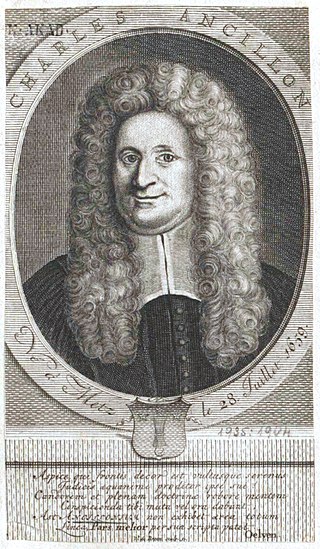
Charles Ancillon was a French jurist and diplomat.
Cyrano de Bergerac, French poet and playwright (b. 1619) deaths

Savinien de Cyrano de Bergerac was a French novelist, playwright, epistolarian, and duelist.
Marguerite Louise d'Orléans, French princess (d. 1721) births

Marguerite Louise d'Orléans was a Princess of France who became Grand Duchess of Tuscany, as the wife of Grand Duke Cosimo III de' Medici.
Guillén de Castro y Bellvis, Spanish playwright (b. 1569) deaths
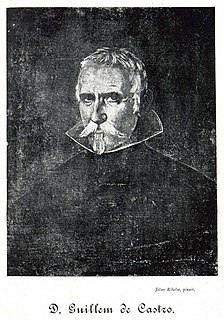
Guillén de Castro y Mateo was a Spanish dramatist of the Spanish Golden Age. He was distinguished member of the "Nocturnos", a Spanish version of the "Academies" in Italy.
Judith Leyster, Dutch painter (d. 1660) births

Judith Jans Leyster was a Dutch Golden Age painter. She painted genre works, portraits and still lifes. Although her work was highly regarded by her contemporaries, Leyster and her work became almost forgotten after her death. Her entire oeuvre was attributed to Frans Hals or to her husband, Jan Miense Molenaer, until 1893. It wasn't until the late 19th century that she was recognized for her artistic abilities.
Francis Russell, 2nd Earl of Bedford (b. 1527) deaths

Francis Russell, 2nd Earl of Bedford, KG of Chenies in Buckinghamshire and of Bedford House in Exeter, Devon, was an English nobleman, soldier, and politician. He was a godfather to the Devon-born sailor Sir Francis Drake. He served as Lord Lieutenant of Devon (1584-5).
Thomas Cromwell, English lawyer and politician, Chancellor of the Exchequer (b. 1495) deaths

Thomas Cromwell, briefly Earl of Essex, was an English lawyer and statesman who served as chief minister to King Henry VIII from 1534 to 1540, when he was beheaded on orders of the king, who later blamed false charges for the execution.

The chancellor of the Exchequer, often abbreviated to chancellor, is a senior minister of the Crown within the Government of the United Kingdom, and head of His Majesty's Treasury. As one of the four Great Offices of State, the Chancellor is a high-ranking member of the British Cabinet and is third in the ministerial ranking, behind the prime minister and the deputy prime minister.
Rodrigo de Bastidas, Spanish explorer, founded the city of Santa Marta (b. 1460) deaths

Rodrigo de Bastidas was a Spanish conquistador and explorer who mapped the northern coast of South America, discovered Panama, and founded the city of Santa Marta.

Santa Marta, officially Distrito Turístico, Cultural e Histórico de Santa Marta, is a city on the coast of the Caribbean Sea in northern Colombia. It is the capital of Magdalena Department and the fourth-largest urban city of the Caribbean Region of Colombia, after Barranquilla, Cartagena, and Soledad. Founded on July 29, 1525, by the Spanish conqueror Rodrigo de Bastidas, it was the first Spanish settlement in Colombia, its oldest surviving city, and second oldest in South America. This city is situated on a bay by the same name and as such, it is a prime tourist destination in the Caribbean region.
William, Duke of Jülich-Cleves-Berg, German nobleman (d. 1592) births

William of Jülich-Cleves-Berge was a Duke of Jülich-Cleves-Berg (1539–1592). William was born in and died in Düsseldorf. He was the only son of John III, Duke of Jülich-Cleves-Berg, and Maria, Duchess of Jülich-Berg. William took over rule of his father's estates upon his death in 1539. Despite his mother having lived until 1543, William also became the Duke of Berg and Jülich and the Count of Ravensberg.
Robert Blackadder, bishop of Glasgow deaths
Robert Blackadder was a medieval Scottish cleric, diplomat and politician, who was abbot of Melrose, bishop-elect of Aberdeen and bishop of Glasgow; when the last was elevated to archiepiscopal status in 1492, he became the first ever archbishop of Glasgow. Archbishop Robert Blackadder died on 28 July 1508, while en route to Jerusalem on pilgrimage.
Edward Woodville, Lord Scales (at the Battle of St. Aubin-du-Cormier) deaths
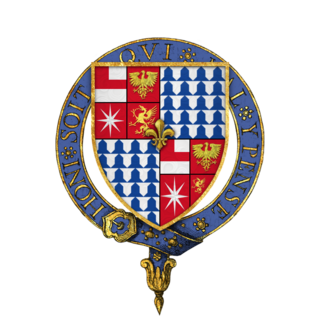
Sir Edward Woodville was a member of the Woodville family during the Wars of the Roses. He survived the reign of Richard III in which several of his relatives were executed in a power struggle after the death of his brother-in-law Edward IV. Exiled with Henry Tudor, he participated in Henry's capture of the throne. He was then appointed Lord of the Isle of Wight, the last person to be given that title.
Jacopo Sannazaro, Italian poet, humanist and epigrammist (d.1530) births
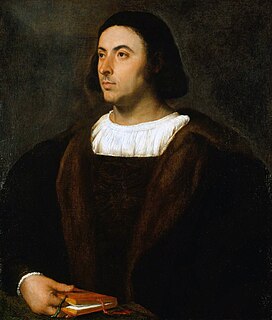
Jacopo Sannazaro was an Italian poet, humanist and epigrammist from Naples.
John II, king of Cyprus and Armenia (b. 1418) deaths
John II or III of Cyprus was the King of Cyprus and Armenia and also titular King of Jerusalem from 1432 to 1458. He was previously a titular Prince of Antioch.
Margaret of Durazzo, Queen of Naples and Hungary (d. 1412) births
Margaret of Durazzo was Queen of Naples and Hungary and Princess of Achaea as the spouse of Charles III of Naples. She was regent of Naples from 1386 until 1393 during the minority of her son Ladislaus of Naples.
Sancia of Majorca, queen regent of Naples (b. c. 1285) deaths

Sancia of Majorca, also known as Sancha, was Queen of Naples from 1309 until 1343 as the wife of Robert the Wise. She served as regent of Naples during the minority of her stepgrandaughter, Joanna I of Naples, from 1343 until 1344.
Guy VIII of Viennois, Dauphin of Vienne (b. 1309) deaths

Guigues VIII de la Tour-du-Pin was the Dauphin of Vienne from 1318 to his death. He was the eldest son of the Dauphin John II and Beatrice of Hungary.
Keran, Queen of Armenia ( b. before 1262) deaths

Keran of Lampron was a by-birth member of the House of Lampron and by marriage Queen consort of Armenia.
Walter de Burgh, 1st Earl of Ulster (b. 1220) deaths

Walter de Burgh, 1st Earl of Ulster, 2nd Lord of Connaught also spelt Burke or Bourke, was an Irish peer from the House of Burgh.
Leopold VI, Duke of Austria (b. 1176) deaths

Leopold VI, known as Leopold the Glorious, was Duke of Styria from 1194 and Duke of Austria from 1198 to his death in 1230. He was a member of the House of Babenberg.
William Clito, English son of Sybilla of Conversano (b. 1102) deaths
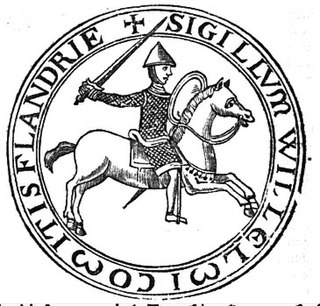
William Clito was a member of the House of Normandy who ruled the County of Flanders from 1127 until his death and unsuccessfully claimed the Duchy of Normandy. As the son of Robert Curthose, the eldest son of William the Conqueror, William Clito was seen as a candidate to succeed his uncle King Henry I of England. Henry viewed him as a rival, however, and William allied himself with King Louis VI of France. Louis installed him as the new count of Flanders upon the assassination of Charles the Good, but the Flemings soon revolted and William died in the struggle against another claimant to Flanders, Thierry of Alsace.
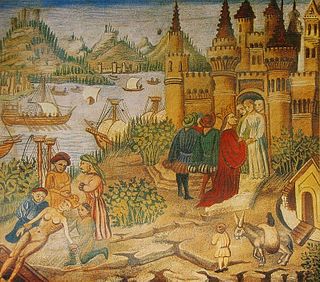
Sibylla of Conversano was a wealthy Norman heiress, Duchess of Normandy by marriage to Robert Curthose. She was regent of Normandy during the absence of her spouse.
Victor II, pope of the Catholic Church (b. 1018) deaths
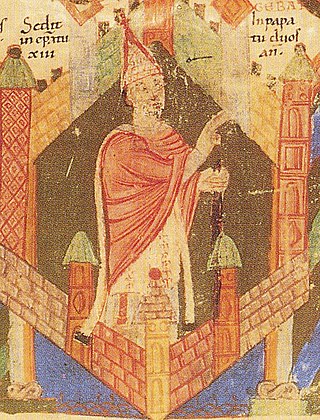
Pope Victor II, born Gebhard of Dollnstein-Hirschberg, was the head of the Catholic Church and ruler of the Papal States from 13 April 1055 until his death in 1057. Victor II was one of a series of German-born popes who led the Gregorian Reform.
Shi Jingtang, emperor of Later Jin (b. 892) deaths

Shi Jingtang, also known by his temple name Gaozu (高祖), was the founding emperor of imperial China's short-lived Later Jin during the Five Dynasties and Ten Kingdoms period, reigning from 936 until his death.

Jin, known as the Later Jìn or the Shi Jin (石晉) in historiography, was an imperial dynasty of China and the third of the Five Dynasties during the Five Dynasties and Ten Kingdoms period. It was founded by Shi Jingtang with aid from the Liao dynasty, which assumed suzerainty over the Later Jin. After Later Jin's second ruler, Shi Chonggui, fell out with the Liao dynasty, the Liao invaded in 946 and in 947, annihilated the Later Jin and annexed its former territories.
Thankmar, half-brother of Otto I (during Siege of Eresburg) (b. c. 908) deaths

Thankmar was the eldest son of Henry I of Germany by his first wife, Hatheburg of Merseburg. His mother had been previously married and widowed, after which she entered a convent. Because she left the convent to marry Henry, her second marriage was considered invalid and the couple split. Thankmar's legitimacy was, therefore, in question.

Otto I, traditionally known as Otto the Great, was East Frankish king from 936 and Holy Roman emperor from 962 until his death in 973. He was the oldest son of Henry the Fowler and Matilda of Ringelheim.
The Eresburg is the largest, well-known (Old) Saxon refuge castle (Volksburg) and was located in the area of the present German village of Obermarsberg in the borough of Marsberg in the county of Hochsauerlandkreis. It was a hill castle built on the plateau of a low table hill, known as the Eresberg, at a height of 130–150 metres above the Diemel, a tributary of the Weser, in the extreme south of the Saxon Gau of Engern on the border with the Duchy of Franconia.
Athanasius I Gammolo, Syriac Orthodox Patriarch of Antioch. deaths
Athanasius I Gammolo was the Patriarch of Antioch and head of the Syriac Orthodox Church from 594/595 or 603 until his death in 631. He is commemorated as a saint by the Syriac Orthodox Church in the Martyrology of Rabban Sliba, and his feast day is 3 January.
Theodosius II, Roman emperor (b. 401) deaths
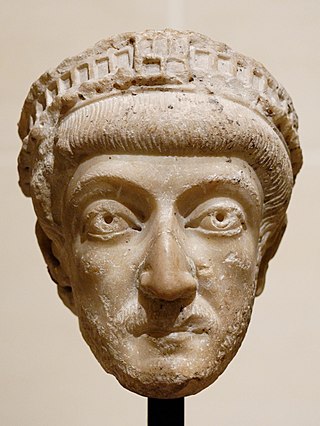
Theodosius II was Roman emperor for most of his life, proclaimed augustus as an infant in 402 and ruling as the eastern Empire's sole emperor after the death of his father Arcadius in 408. His reign was marked by the promulgation of the Theodosian law code and the construction of the Theodosian Walls of Constantinople. He also presided over the outbreak of two great Christological controversies, Nestorianism and Eutychianism.
Christian feast day: Alphonsa Muttathupadathu (Syro-Malabar Catholic Church)

Alphonsa of the Immaculate Conception or Saint Alphonsa, christened at birth as Anna Muttathupadathu, was a nun and an educator by vocation (profession). She was also known for being a victim soul, visionary and prophetess in the Kottayam pergunna of the erstwhile Travancore province of British India, in the present-day Kerala, India. She is the first woman of Indian origin to be canonised as a saint after decades of enquiry by the Sacred Congregation for the Causes of Saints, she is also the first saint of the Syro-Malabar Church, an Eastern Catholic community of Eastern Christianity.

The Syro-Malabar Catholic Church is an Eastern Catholic church based in Kerala, India. The Syro-Malabar Church is an autonomous particular church in full communion with the pope and the worldwide Catholic Church, including the Latin Church and the 22 other Eastern Catholic churches, with self-governance under the Code of Canons of the Eastern Churches (CCEO). The Church is headed by the Major Archbishop of the Syro-Malabar, currently George Alencherry. The Syro-Malabar Synod of Bishops canonically convoked and presided over by the Major Archbishop constitutes the supreme authority of the Church. The Major Archiepiscopal Curia of the Church is based in Kakkanad, Kochi. Syro-Malabar is a prefix reflecting the church's use of the East Syriac Rite liturgy and origins in Malabar. The name has been in usage in official Vatican documents since the nineteenth century.
Christian feast day: Botvid

Saint Botvid was a Christian missionary in Sweden during the 11th and early 12th centuries.
Christian feast day: Johann Sebastian Bach, George Frederick Handel, Henry Purcell (Episcopal Church commemoration)

Johann Sebastian Bach was a German composer and musician of the late Baroque period. He is known for his orchestral music such as the Brandenburg Concertos; instrumental compositions such as the Cello Suites; keyboard works such as the Goldberg Variations and The Well-Tempered Clavier; organ works such as the Schubler Chorales and the Toccata and Fugue in D minor; and vocal music such as the St Matthew Passion and the Mass in B minor. Since the 19th-century Bach revival he has been generally regarded as one of the greatest composers in the history of Western music.

George Frideric Handel was a German-British Baroque composer well known for his operas, oratorios, anthems, concerti grossi, and organ concertos. Handel received his training in Halle and worked as a composer in Hamburg and Italy before settling in London in 1712, where he spent the bulk of his career and became a naturalised British subject in 1727. He was strongly influenced both by the middle-German polyphonic choral tradition and by composers of the Italian Baroque. In turn, Handel's music forms one of the peaks of the "high baroque" style, bringing Italian opera to its highest development, creating the genres of English oratorio and organ concerto, and introducing a new style into English church music. He is consistently recognized as one of the greatest composers of his age.

Henry Purcell was an English composer.
The veneration of saints in the Episcopal Church is a continuation of an ancient tradition from the early Church which honors important and influential people of the Christian faith. The usage of the term saint is similar to Roman Catholic and Orthodox traditions. Episcopalians believe in the communion of saints in prayer and as such the Episcopal liturgical calendar accommodates feasts for saints.
Christian feast day: Johann Sebastian Bach, Heinrich Schütz, George Frederick Handel (Lutheran commemoration)

Johann Sebastian Bach was a German composer and musician of the late Baroque period. He is known for his orchestral music such as the Brandenburg Concertos; instrumental compositions such as the Cello Suites; keyboard works such as the Goldberg Variations and The Well-Tempered Clavier; organ works such as the Schubler Chorales and the Toccata and Fugue in D minor; and vocal music such as the St Matthew Passion and the Mass in B minor. Since the 19th-century Bach revival he has been generally regarded as one of the greatest composers in the history of Western music.

Heinrich Schütz was a German early Baroque composer and organist, generally regarded as the most important German composer before Johann Sebastian Bach, as well as one of the most important composers of the 17th century. He is credited with bringing the Italian style to Germany and continuing its evolution from the Renaissance into the Early Baroque. Most of his surviving music was written for the Lutheran church, primarily for the Electoral Chapel in Dresden. He wrote what is traditionally considered the first German opera, Dafne, performed at Torgau in 1627, the music of which has since been lost, along with nearly all of his ceremonial and theatrical scores. Schütz was a prolific composer, with more than 500 surviving works.

George Frideric Handel was a German-British Baroque composer well known for his operas, oratorios, anthems, concerti grossi, and organ concertos. Handel received his training in Halle and worked as a composer in Hamburg and Italy before settling in London in 1712, where he spent the bulk of his career and became a naturalised British subject in 1727. He was strongly influenced both by the middle-German polyphonic choral tradition and by composers of the Italian Baroque. In turn, Handel's music forms one of the peaks of the "high baroque" style, bringing Italian opera to its highest development, creating the genres of English oratorio and organ concerto, and introducing a new style into English church music. He is consistently recognized as one of the greatest composers of his age.

The Lutheran liturgical calendar is a listing which details the primary annual festivals and events that are celebrated liturgically by various Lutheran churches. The calendars of the Evangelical Lutheran Church in America (ELCA) and the Evangelical Lutheran Church in Canada (ELCIC) are from the 1978 Lutheran Book of Worship and the calendar of the Lutheran Church–Missouri Synod (LCMS) and the Lutheran Church–Canada (LCC) use the Lutheran Book of Worship and the 1982 Lutheran Worship. Elements unique to the ELCA have been updated from the Lutheran Book of Worship to reflect changes resulting from the publication of Evangelical Lutheran Worship in 2006. The elements of the calendar unique to the LCMS have also been updated from Lutheran Worship and the Lutheran Book of Worship to reflect the 2006 publication of the Lutheran Service Book.
Christian feast day: Nazarius and Celsus
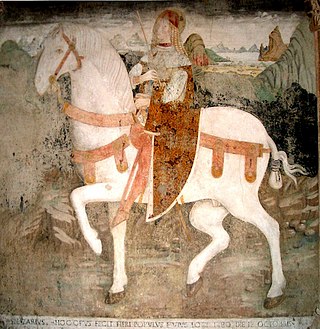
Nazarius and Celsus were two martyrs of whom little is known beyond the discovery of their bodies by Ambrose of Milan.
Christian feast day: Pedro Poveda Castroverde

Pedro Poveda was a Spanish priest, humanitarian, educator and is a martyr saint. He was the founder of the Teresian Association. His humanitarian-educational activity lasted for over 30 years, until his execution by persecutors of the Christian faith in 1936. Poveda was beatified in 1993 and canonized in 2003; his feast day is 28 July.
Christian feast day: Pope Innocent I
Pope Innocent I was the bishop of Rome from 401 to his death on 12 March 417. He may have been the son of his predecessor, Anastasius I. From the beginning of his papacy, he was seen as the general arbitrator of ecclesiastical disputes in both the East and the West. He confirmed the prerogatives of the Archbishop of Thessalonica, and issued a decretal on disciplinary matters referred to him by the Bishop of Rouen. He defended the exiled John Chrysostom and consulted with the bishops of Africa concerning the Pelagian controversy, confirming the decisions of the African synods. The Catholic priest-scholar Johann Peter Kirsch, 1500 years later, described Innocent as a very energetic and highly gifted individual "...who fulfilled admirably the duties of his office".
Christian feast day: Pope Victor I
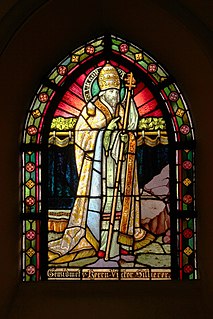
Pope Victor I was the bishop of Rome in the late second century. The dates of his tenure are uncertain, but one source states he became pope in 189 and gives the year of his death as 199. He was born in the Roman Province of Africa—probably in Leptis Magna. He was later considered a saint. His feast day was celebrated on 28 July as "St Victor I, Pope and Martyr".
Christian feast day: Samson of Dol

Samson of Dol was a Cornish saint, who is also counted among the seven founder saints of Brittany with Pol Aurelian, Tugdual or Tudwal, Brieuc, Malo, Patern (Paternus) and Corentin. Born in southern Wales, he died in Dol-de-Bretagne, a small town in north Brittany.
Christian feast day: July 28 (Eastern Orthodox liturgics)

July 27 - Eastern Orthodox Church calendar - July 29
Day of Commemoration of the Great Upheaval (Canada)

The Expulsion of the Acadians, also known as the Great Upheaval, the Great Expulsion, the Great Deportation, and the Deportation of the Acadians, was the forced removal, by the British, of the Acadian people from parts of a Canadian-American region historically known as Acadia, between 1755–1764. The area included the present-day Canadian Maritime provinces of Nova Scotia, New Brunswick, and Prince Edward Island, and the present-day U.S. state of Maine. The Expulsion, which caused the deaths of thousands of people, occurred during the French and Indian War and was part of the British military campaign against New France.

Canada is a country in North America. Its ten provinces and three territories extend from the Atlantic Ocean to the Pacific Ocean and northward into the Arctic Ocean, covering over 9.98 million square kilometres, making it the world's second-largest country by total area. Its southern and western border with the United States, stretching 8,891 kilometres (5,525 mi), is the world's longest binational land border. Canada's capital is Ottawa, and its three largest metropolitan areas are Toronto, Montreal, and Vancouver.
Fiestas Patrias, celebrates the independence of Peru from Spain by General José de San Martín in 1821.
The Fiestas Patrias peruanas, or Peruvian National Holidays, are celebrations of Peru's independence from the Spanish Empire. They officially consist of two days:July 28, in commemoration of Peru's Independence won by José de San Martín. July 29, in honor of the Armed Forces and the National Police of Peru.

Peru, officially the Republic of Peru, is a country in western South America. It is bordered in the north by Ecuador and Colombia, in the east by Brazil, in the southeast by Bolivia, in the south by Chile, and in the south and west by the Pacific Ocean. Peru is a megadiverse country with habitats ranging from the arid plains of the Pacific coastal region in the west to the peaks of the Andes mountains extending from the north to the southeast of the country to the tropical Amazon basin rainforest in the east with the Amazon River. Peru has a population of 32 million, and its capital and largest city is Lima. At 1.28 million km2, Peru is the 19th largest country in the world, and the third largest in South America.

José Francisco de San Martín y Matorras, known simply as José de San Martín or the Liberator of Argentina, Chile and Peru, was an Argentine general and the primary leader of the southern and central parts of South America's successful struggle for independence from the Spanish Empire who served as the Protector of Peru. Born in Yapeyú, Corrientes, in modern-day Argentina, he left the Viceroyalty of the Río de la Plata at the early age of seven to study in Málaga, Spain.
Liberation Day (San Marino)

San Marino, officially the Republic of San Marino, also known as the Most Serene Republic of San Marino, is the fifth-smallest country in the world and a European microstate in Southern Europe enclaved by Italy. Located on the northeastern side of the Apennine Mountains, San Marino covers a land area of just over 61 km2 (24 sq mi), and has a population of 33,562.
Ólavsøka Eve (Faroe Islands)

Ólavsøka is the biggest summer festival in the Faroe Islands, and by most Faroese considered as the national holiday of the Faroes along with Flag Day on 25 April. Ólavsøka is celebrated over two days, from the 28th to the 29th of July, the second of which is the day when the Faroese Parliament (Løgting) opens its session.

The Faroe Islands, or simply the Faroes, are a North Atlantic archipelago island country and self-governing nation under the external sovereignty of the Kingdom of Denmark.
Statehood Day (Ukraine)

Statehood Day or the Day of Ukrainian Statehood is a national holiday in Ukraine, celebrated annually on 28 July in commemoration of Christianization of Kievan Rus'.

Ukraine is a country in Eastern Europe. It is the second-largest European country after Russia, which it borders to the east and northeast. Ukraine covers approximately 600,000 square kilometres (230,000 sq mi). Prior to the ongoing Russo-Ukrainian War, it was the eighth-most populous country in Europe, with a population of around 41 million people. It is also bordered by Belarus to the north; by Poland, Slovakia, and Hungary to the west; and by Romania and Moldova to the southwest; with a coastline along the Black Sea and the Sea of Azov to the south and southeast. Kyiv is the nation's capital and largest city. Ukraine's official and national language is Ukrainian; most people are also fluent in Russian.
World Hepatitis Day

World Hepatitis Day, observed on July 28 every year, aims to raise global awareness of hepatitis — a group of infectious diseases known as hepatitis A, B, C, D, and E — and encourage prevention, diagnosis and treatment. Hepatitis affects hundreds of millions of people worldwide, causing acute and chronic disease and killing close to 1.34 million people every year. Hepatitis can cause inflammation of the liver both acutely and chronically, and can kill a person. In some countries hepatitis B is the most common cause of cirrhosis and may also cause liver cancer.